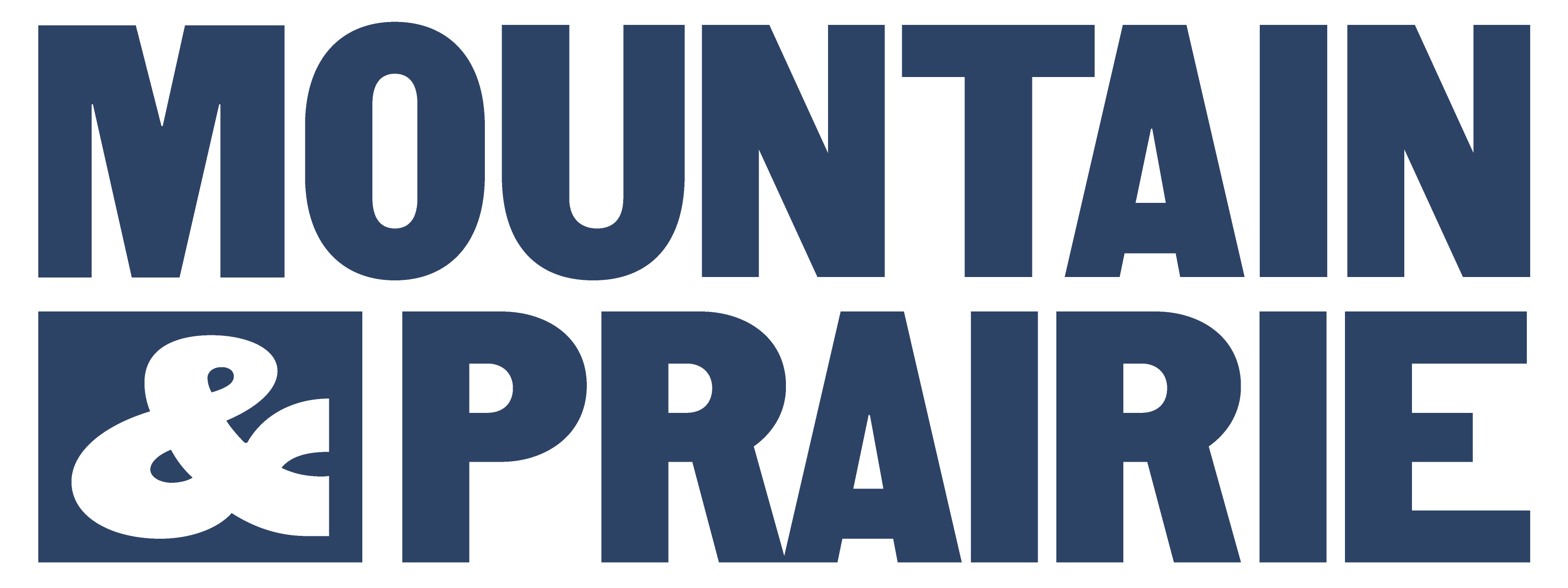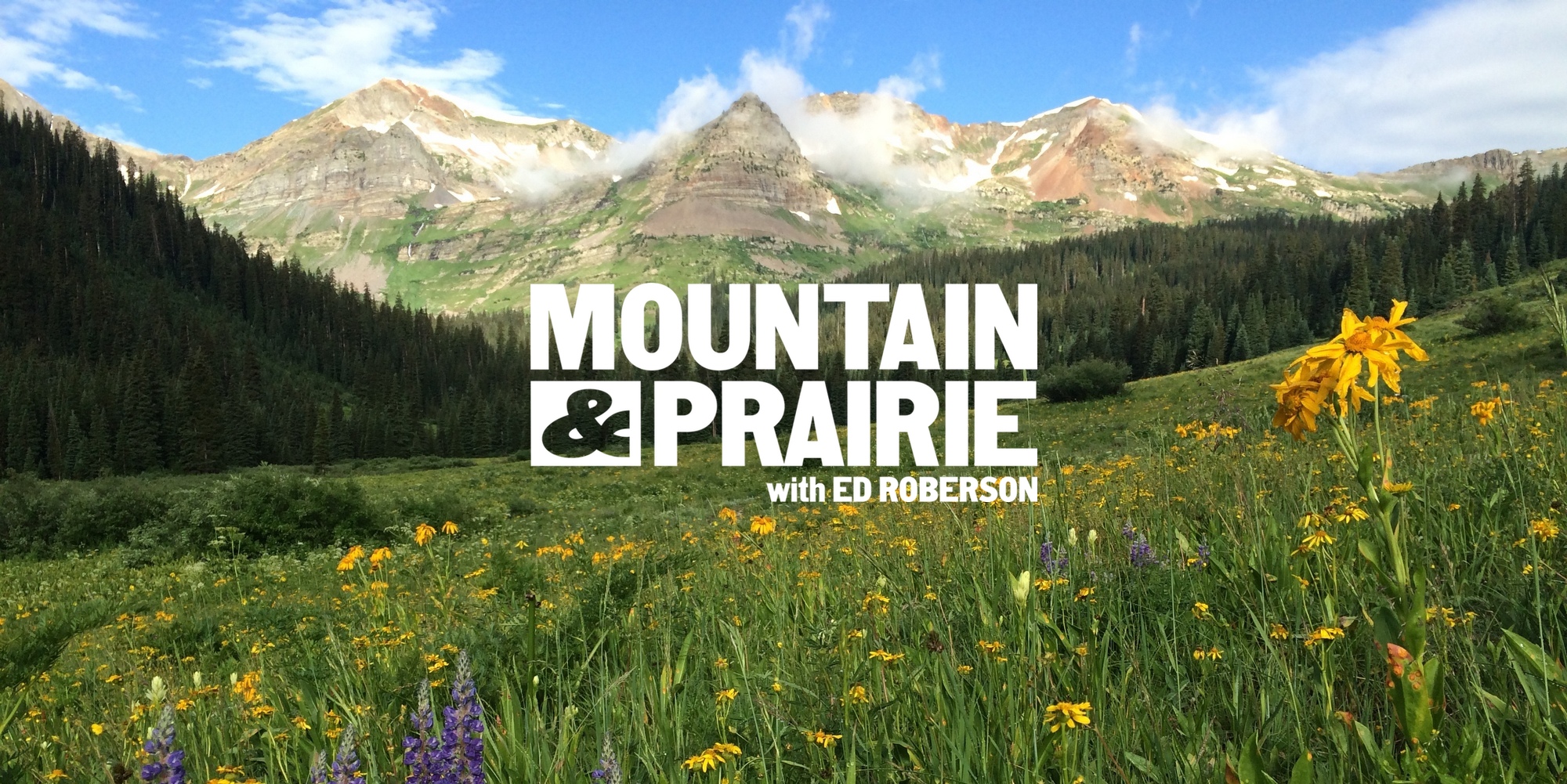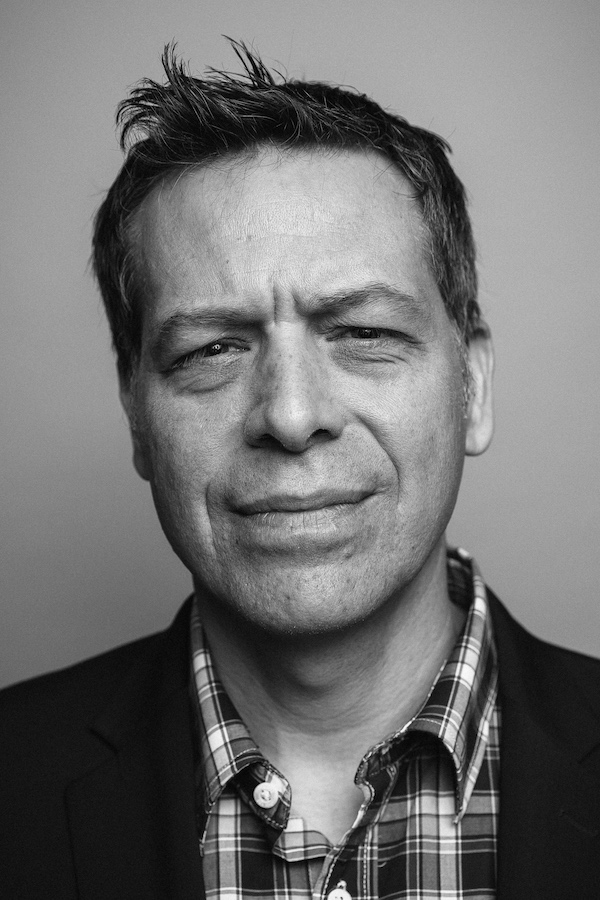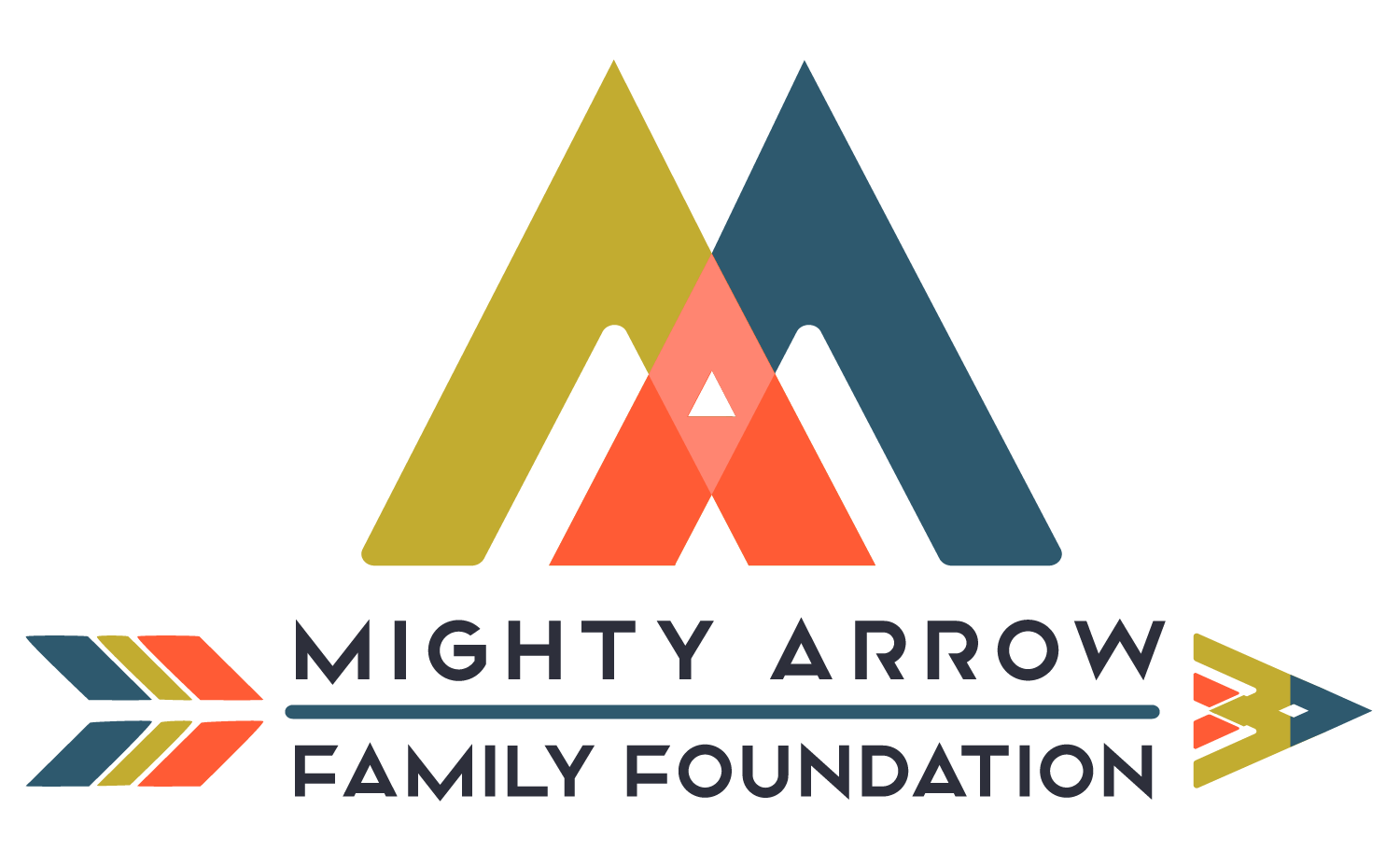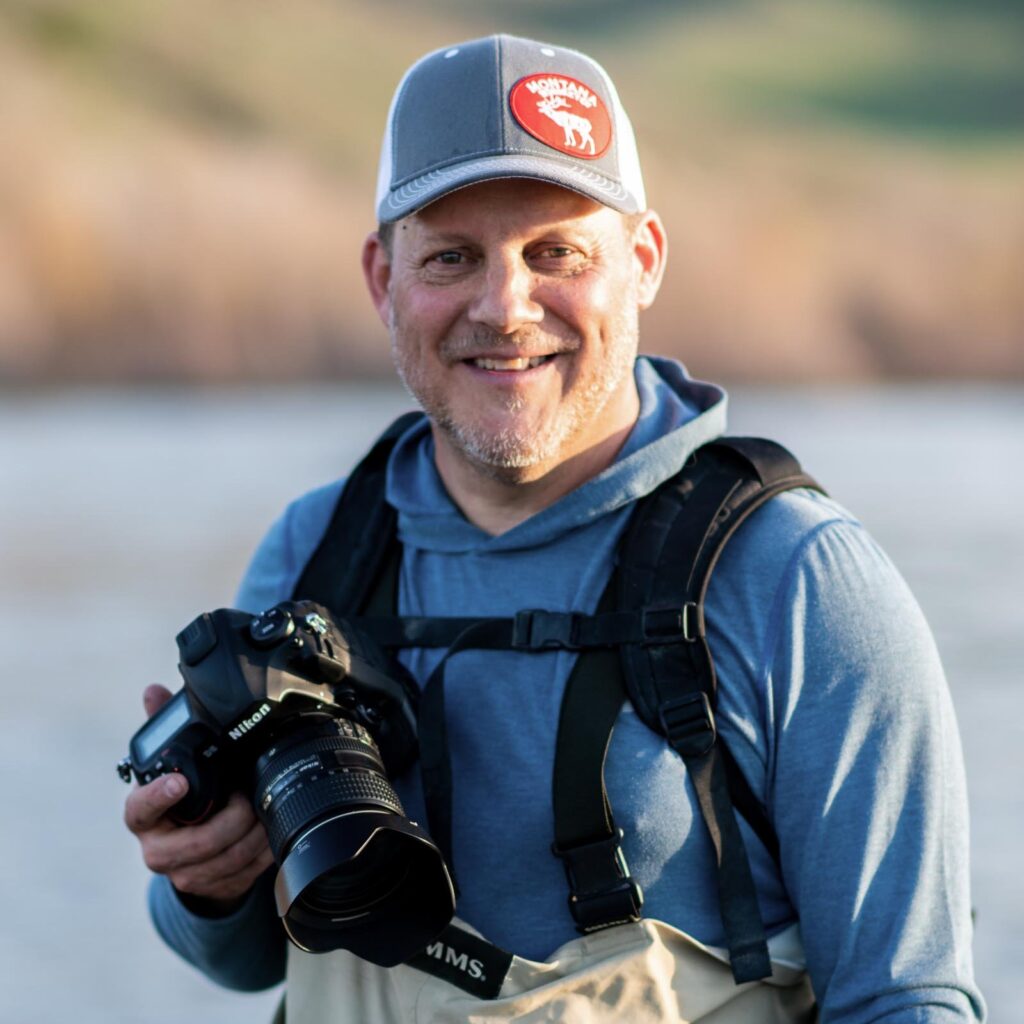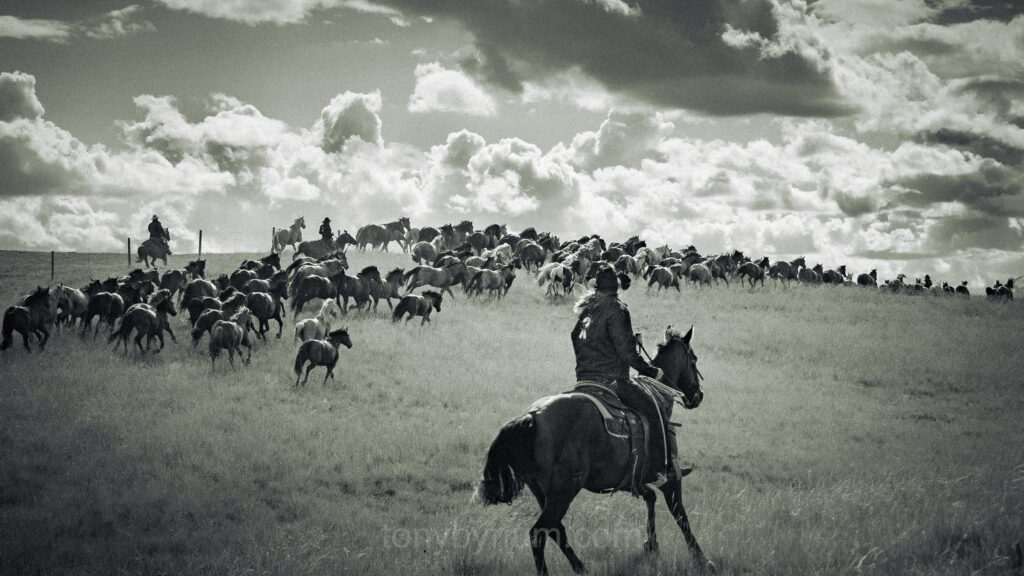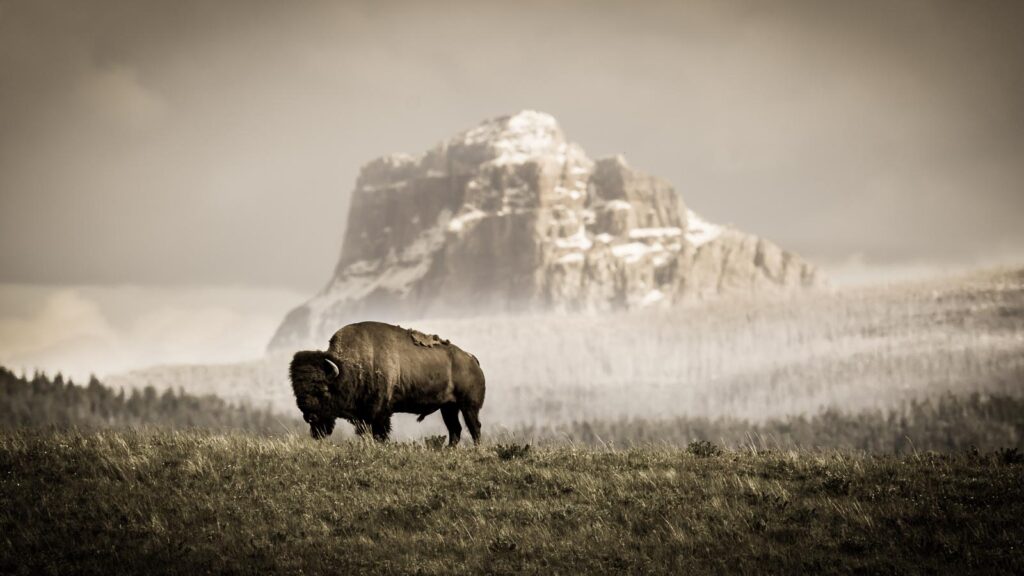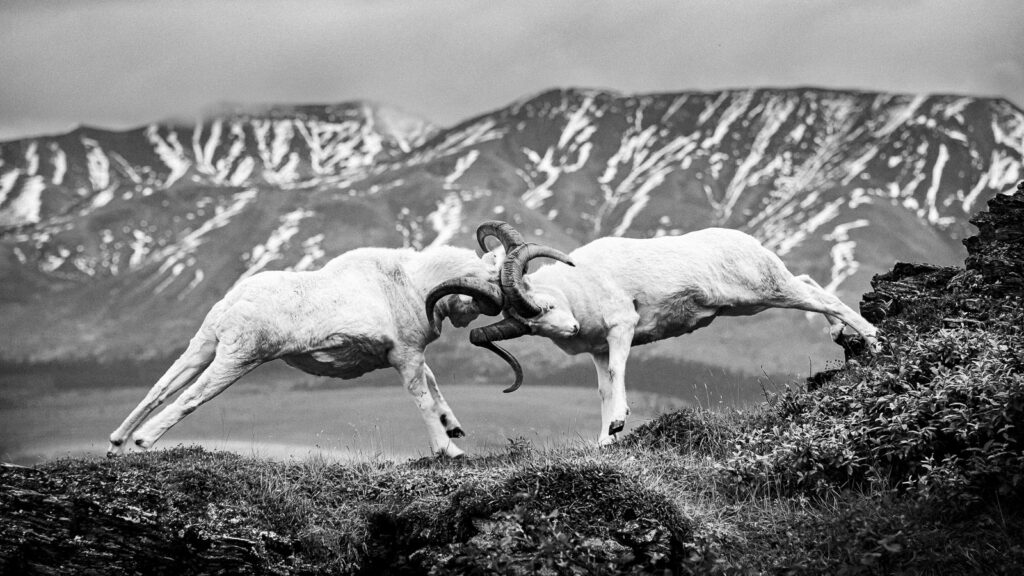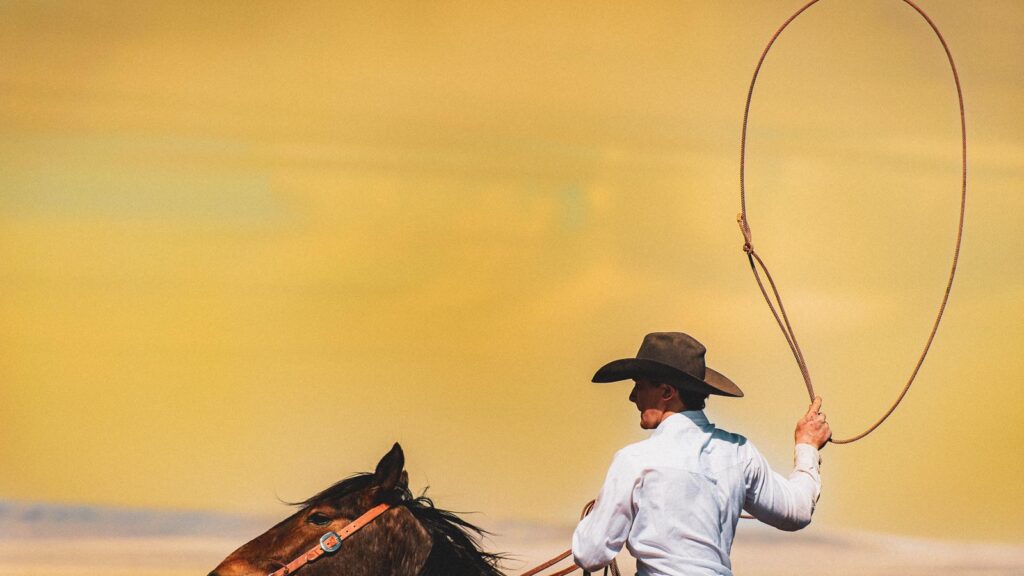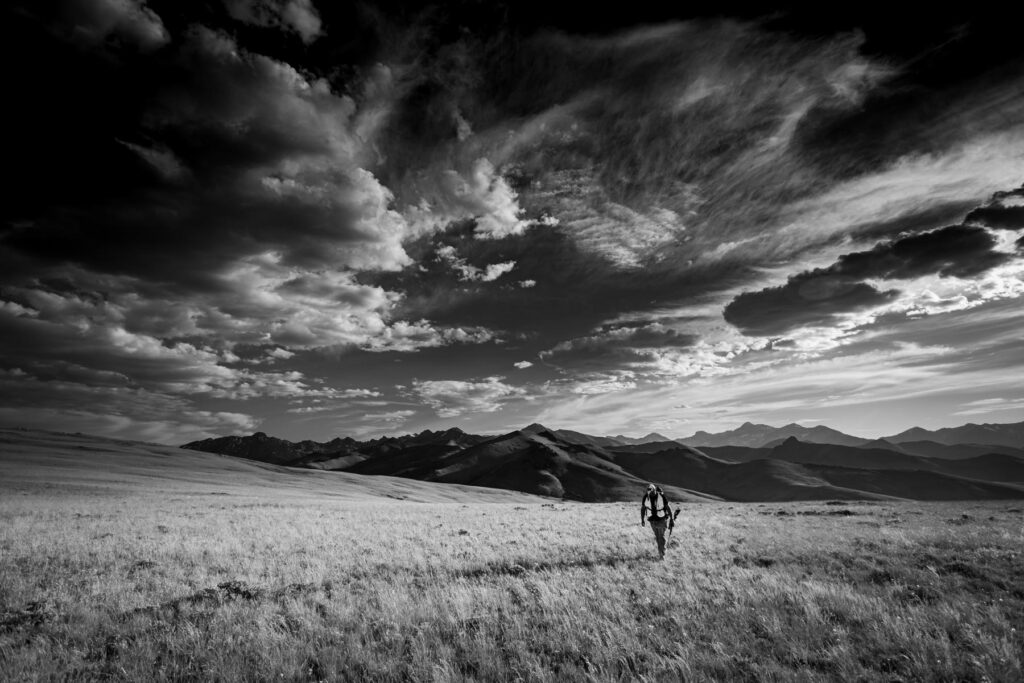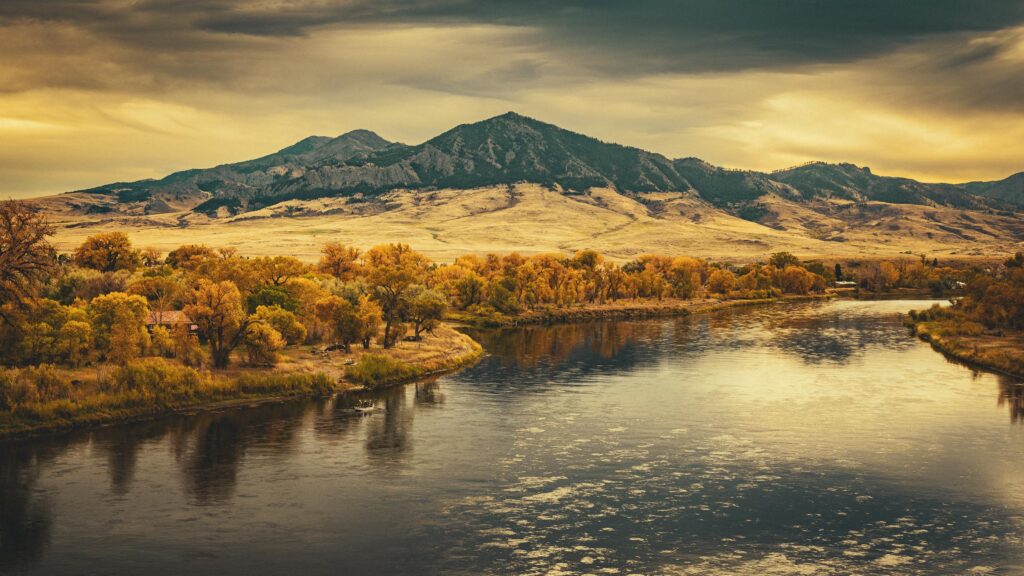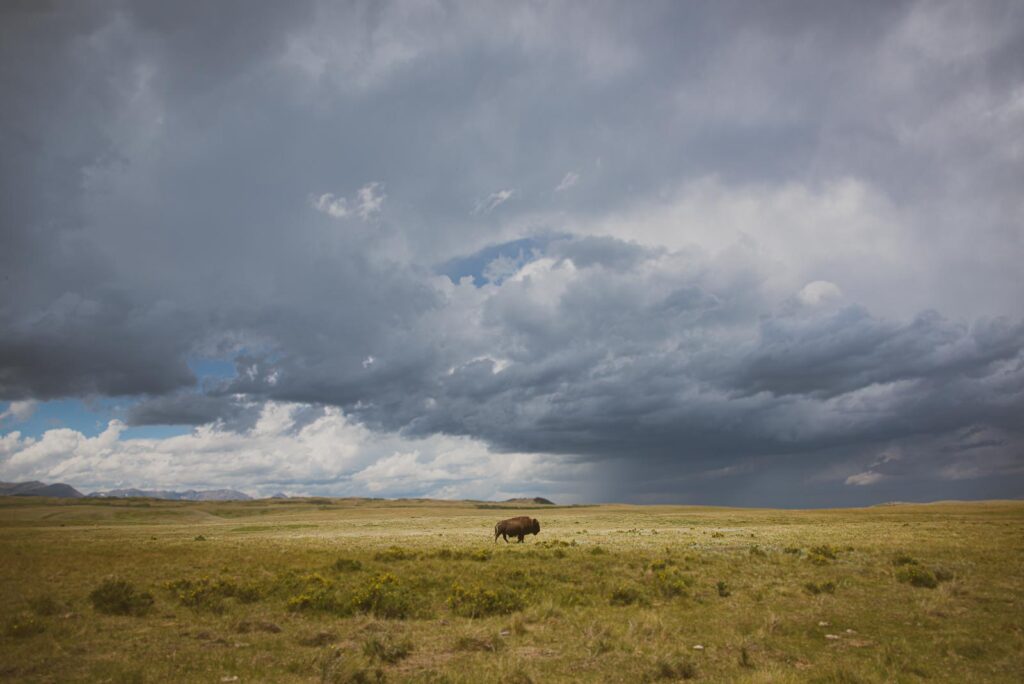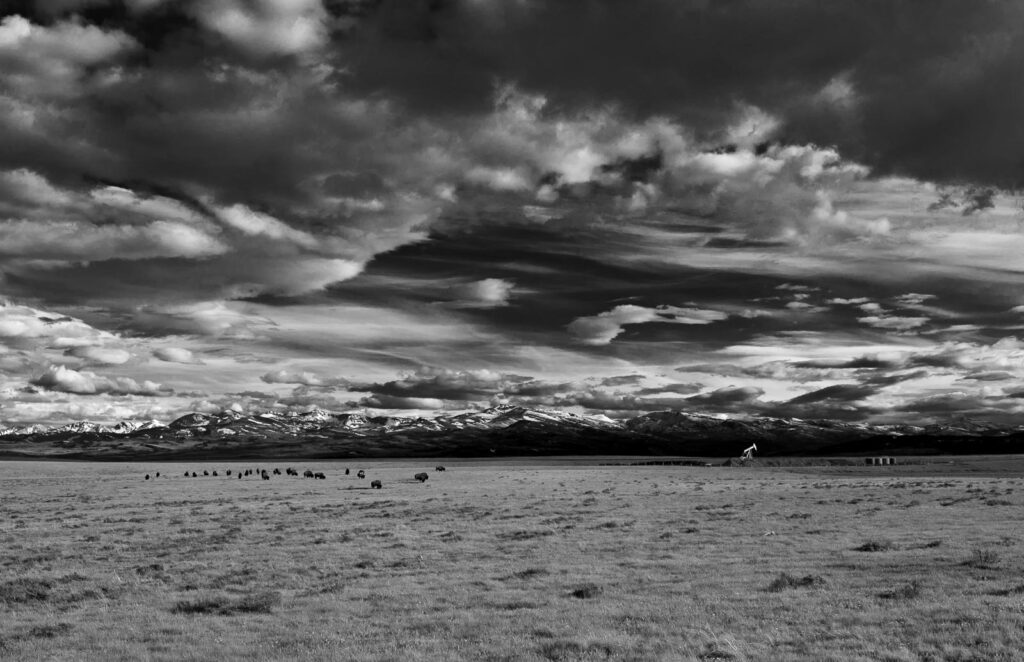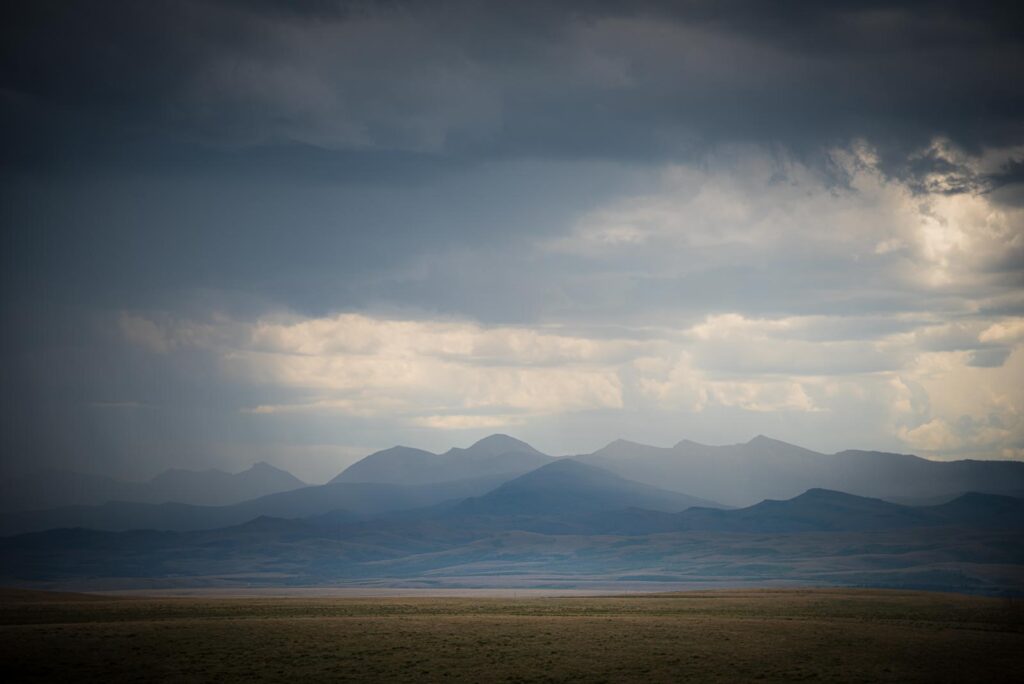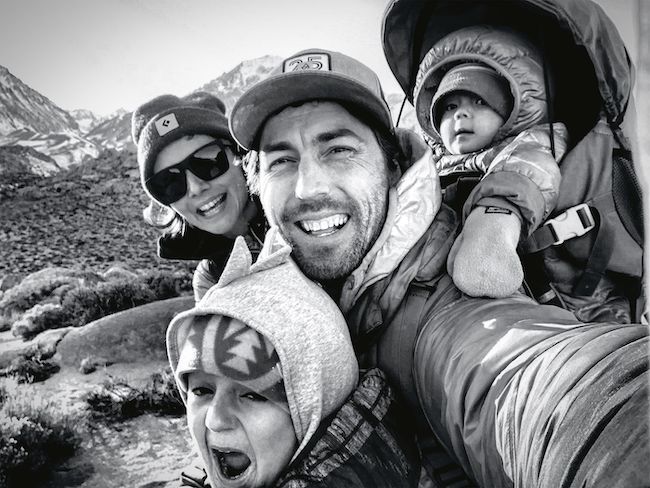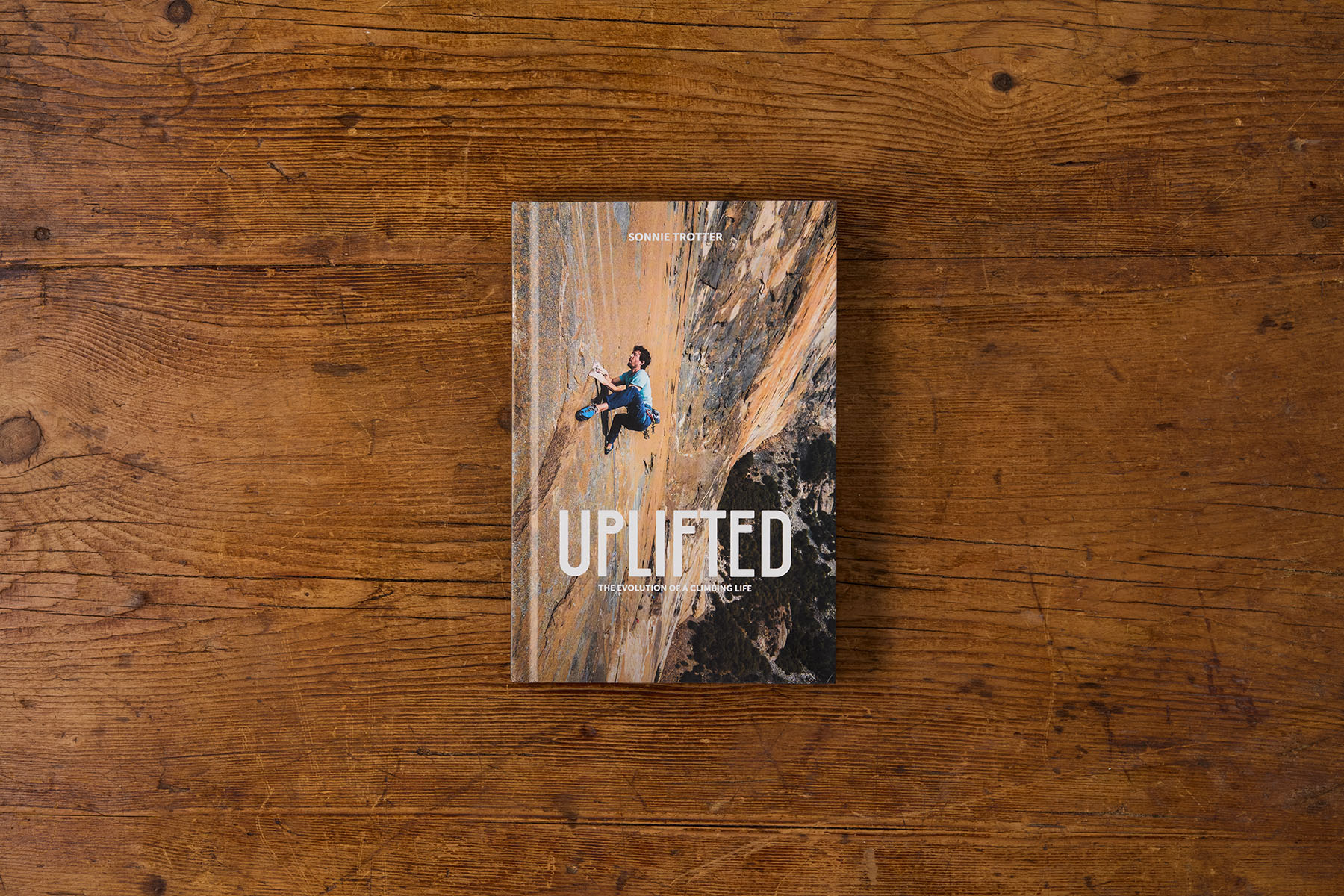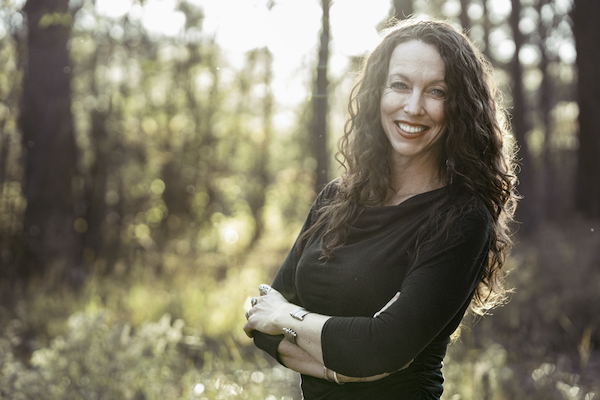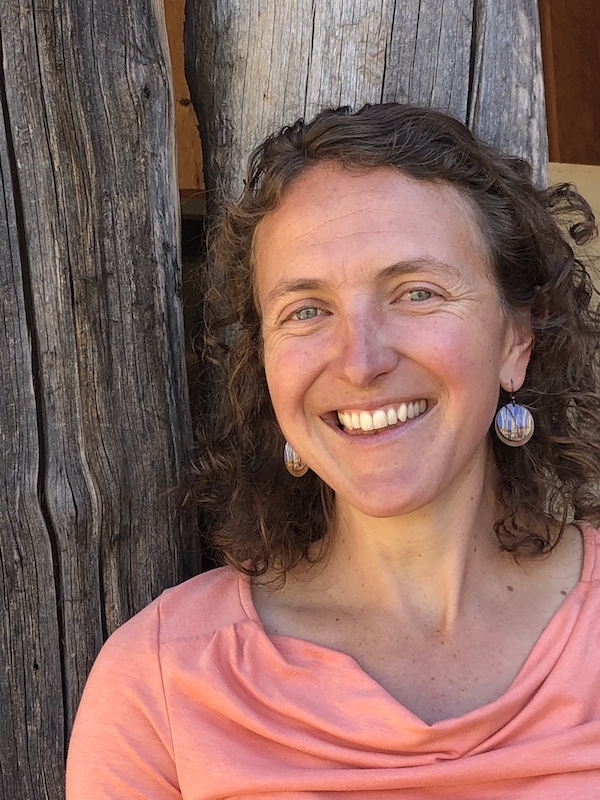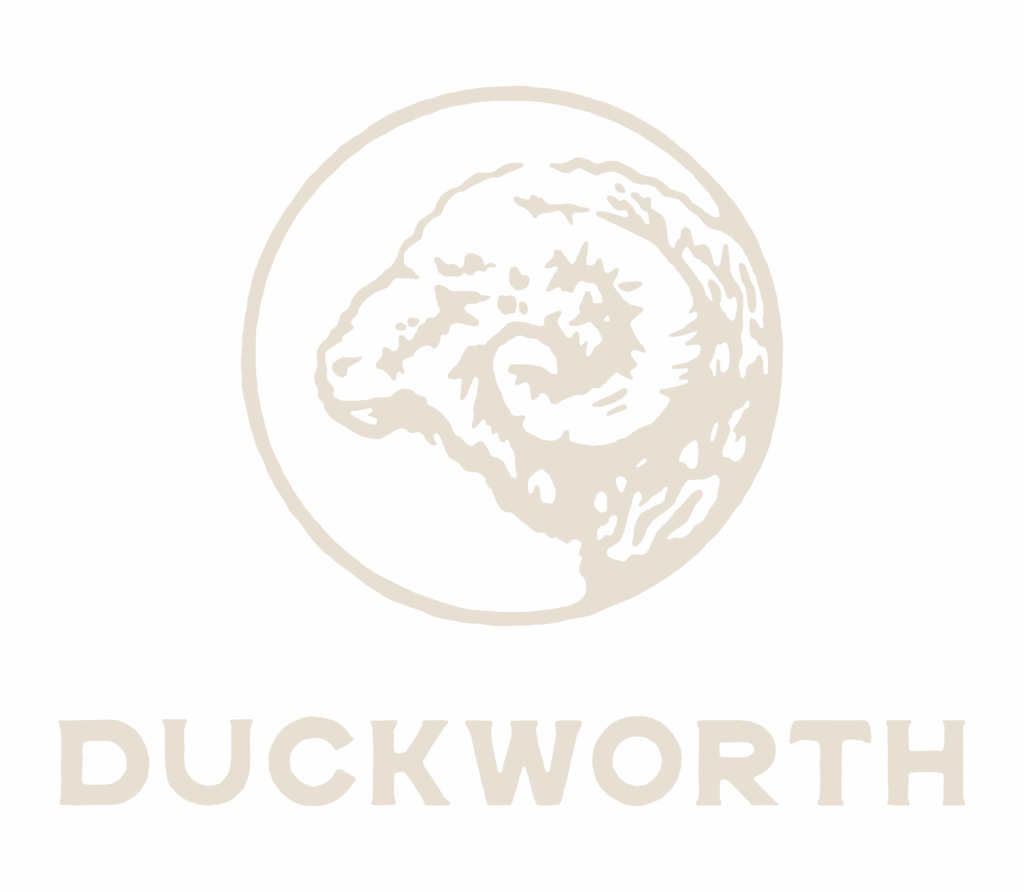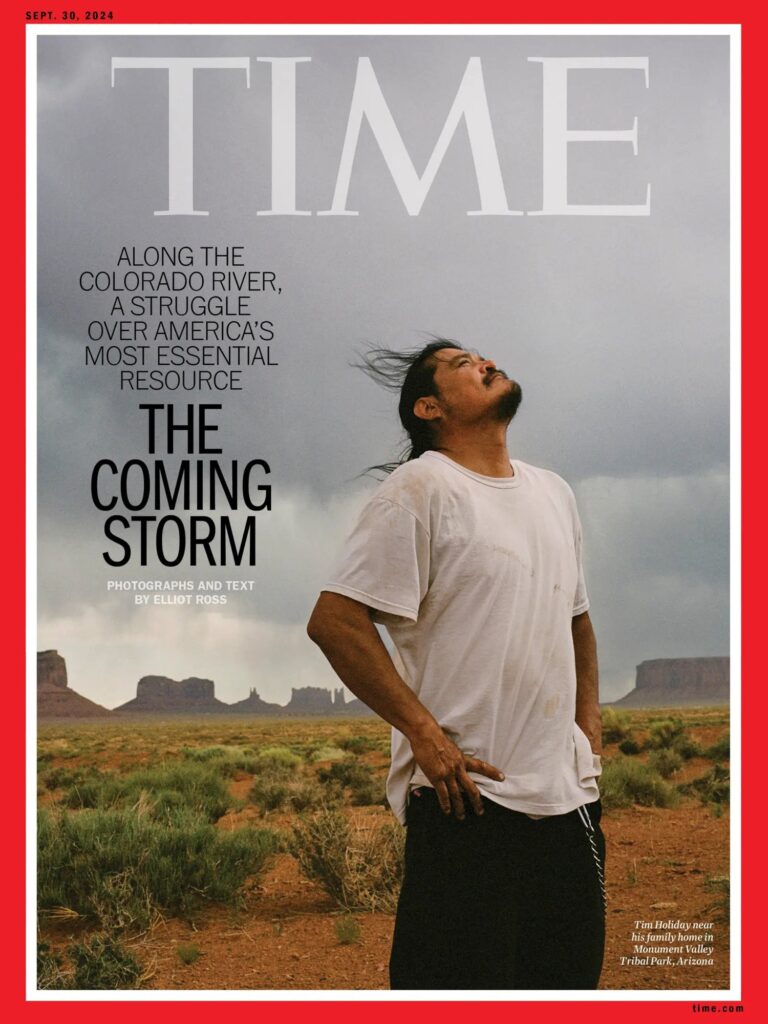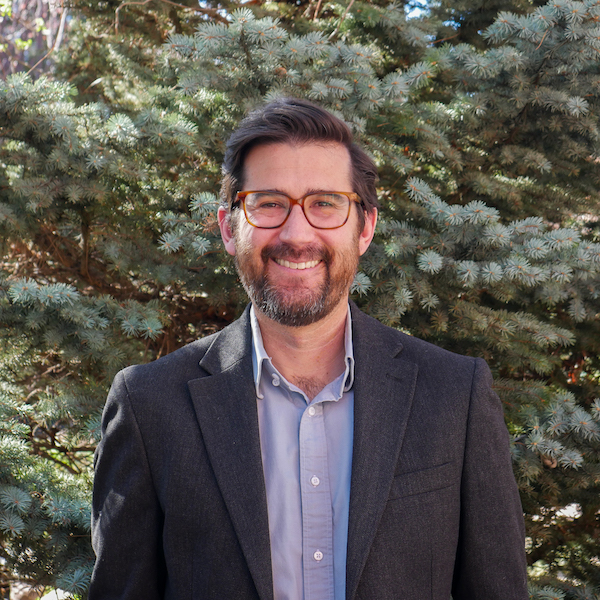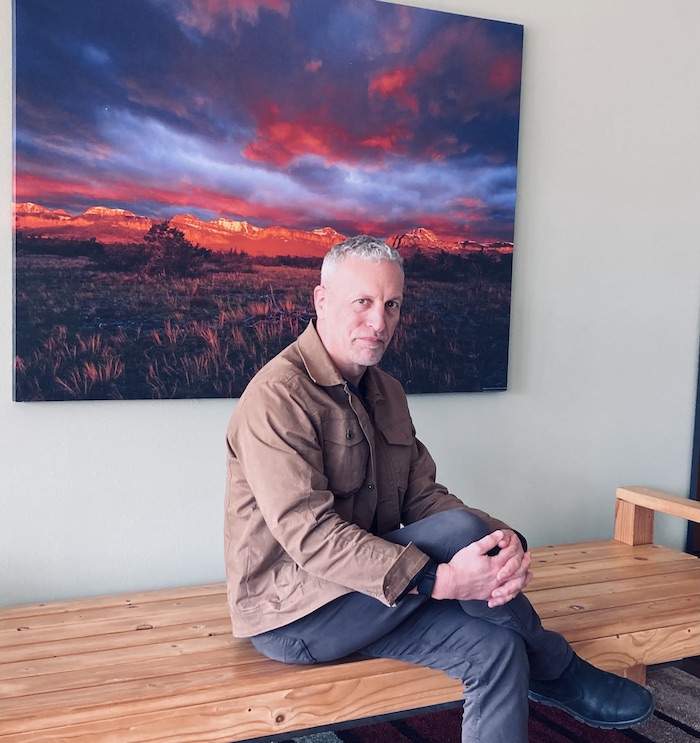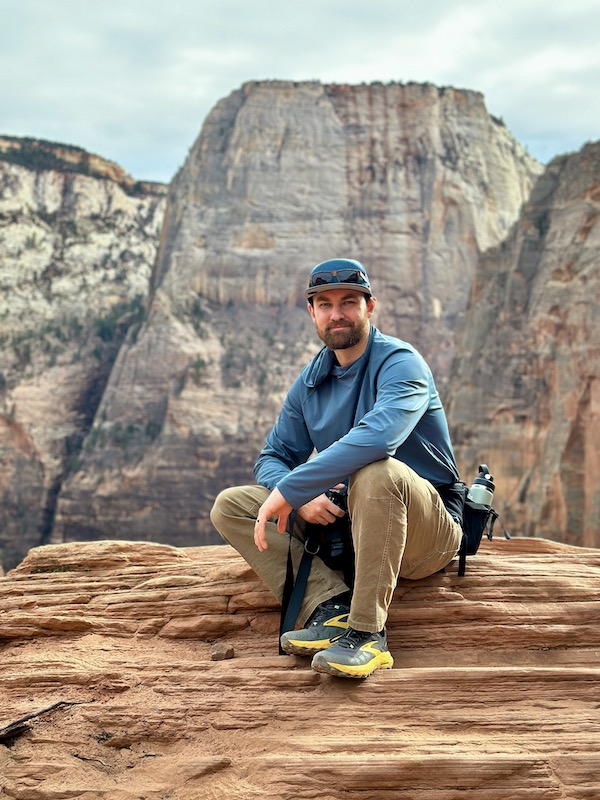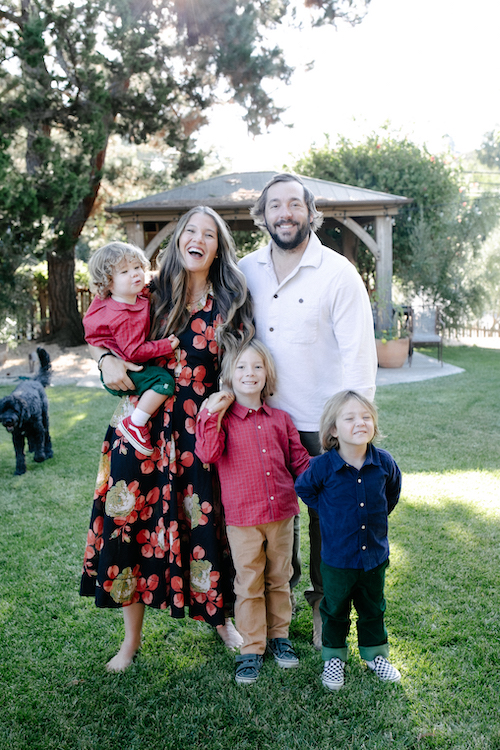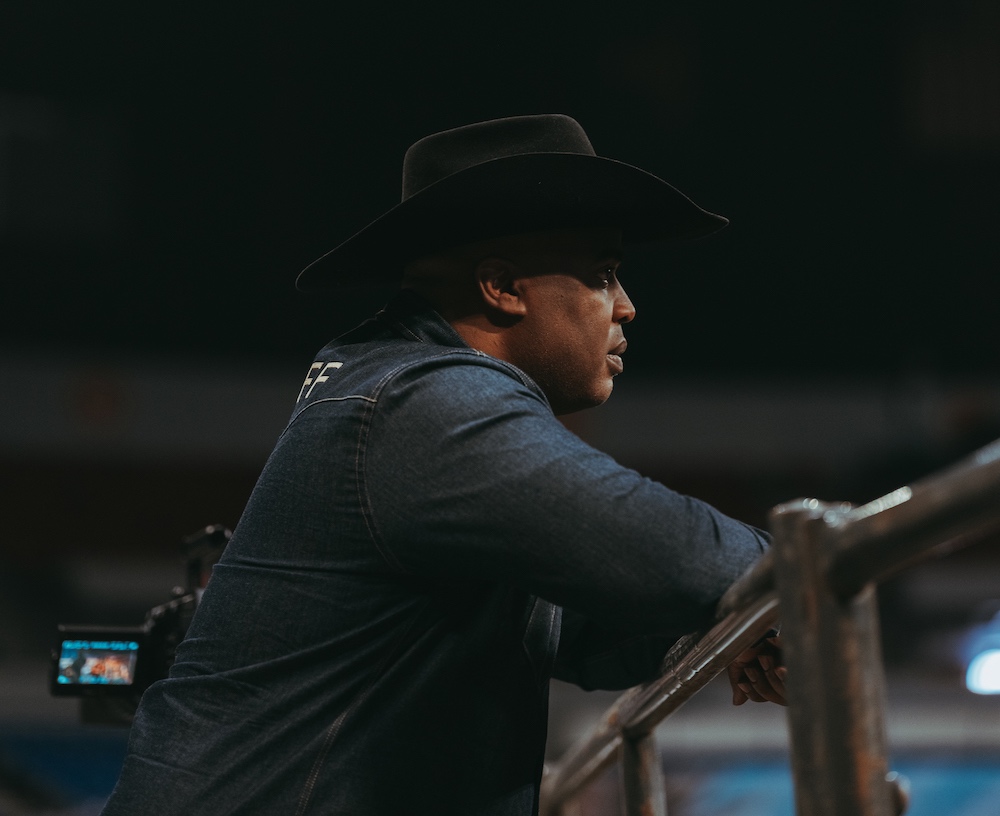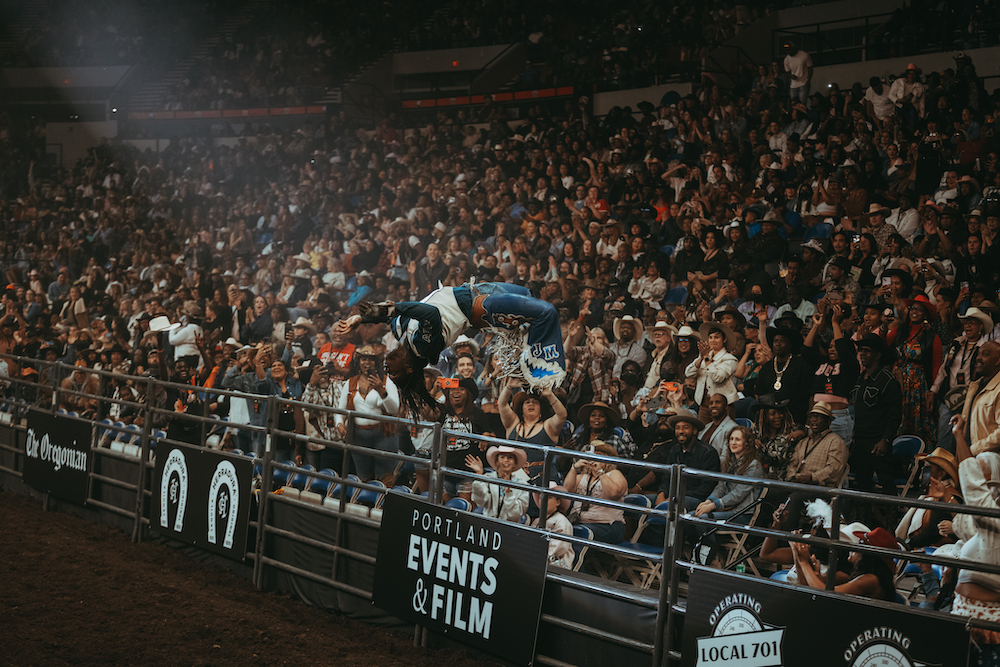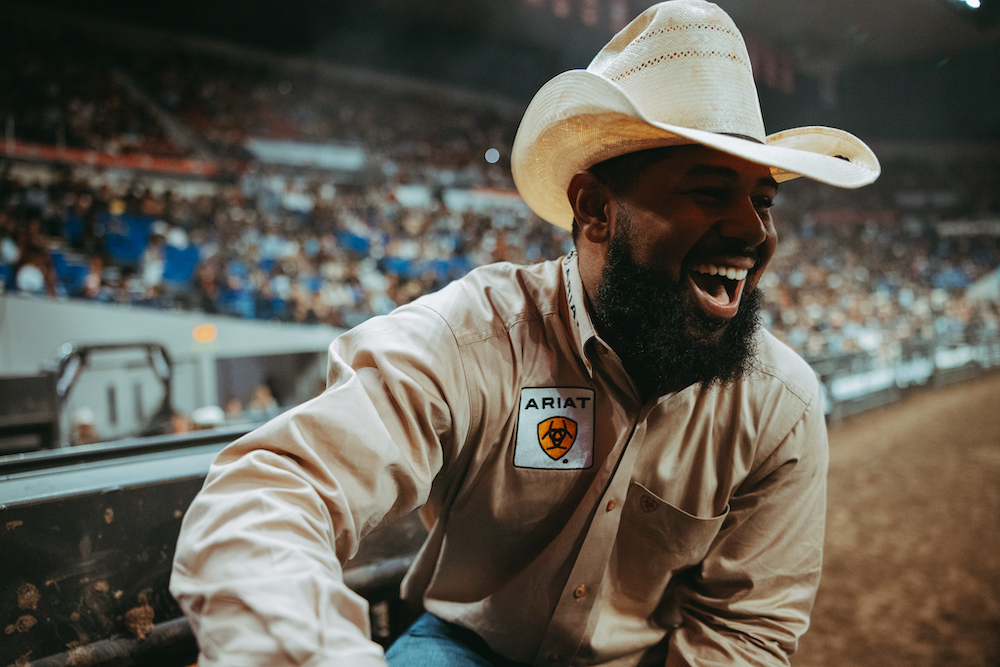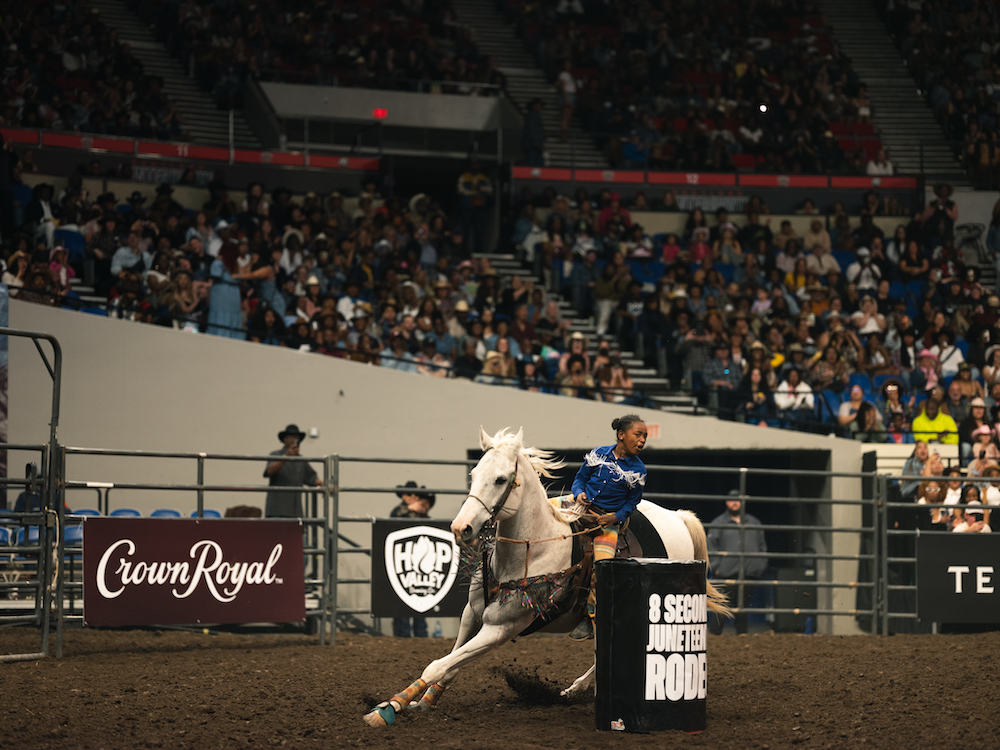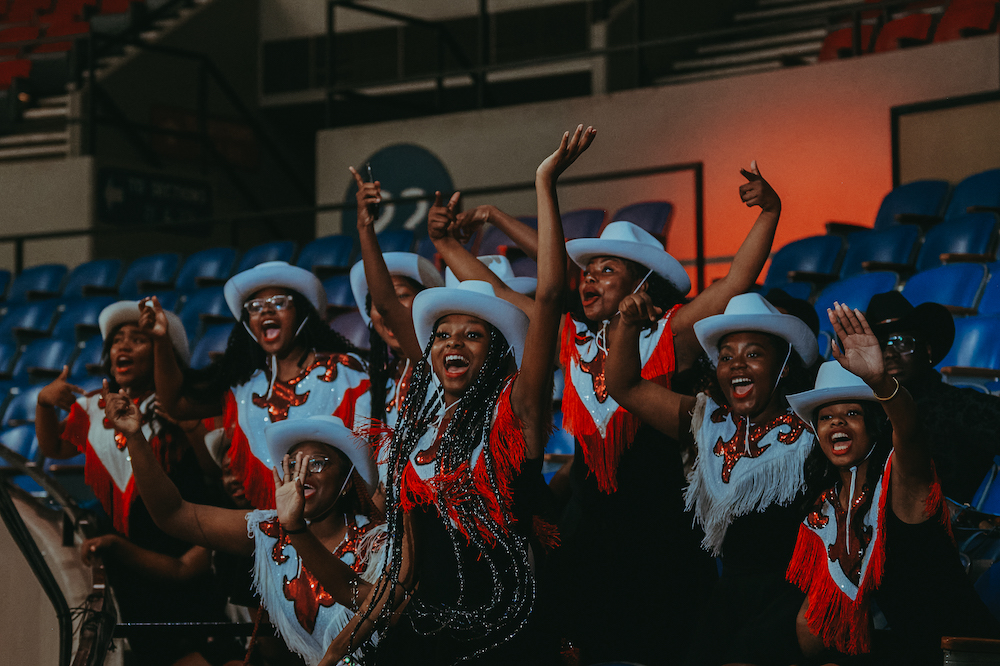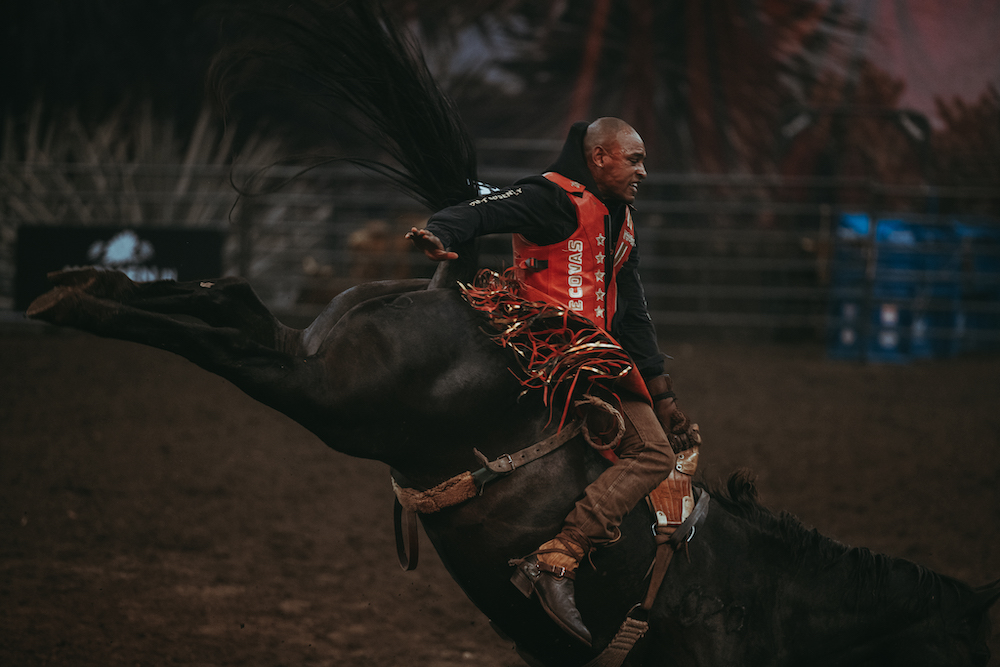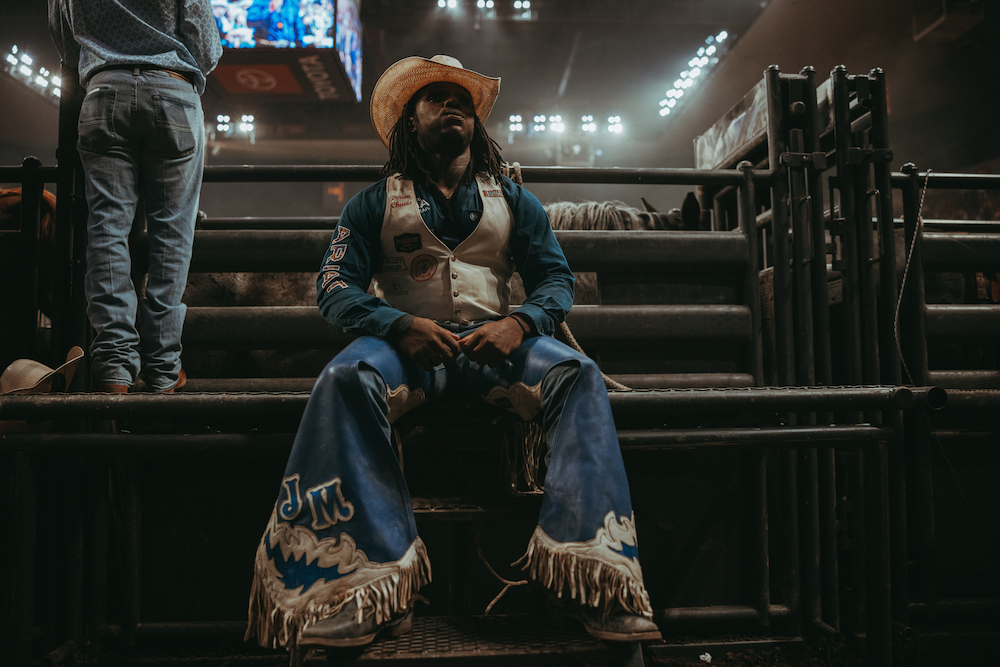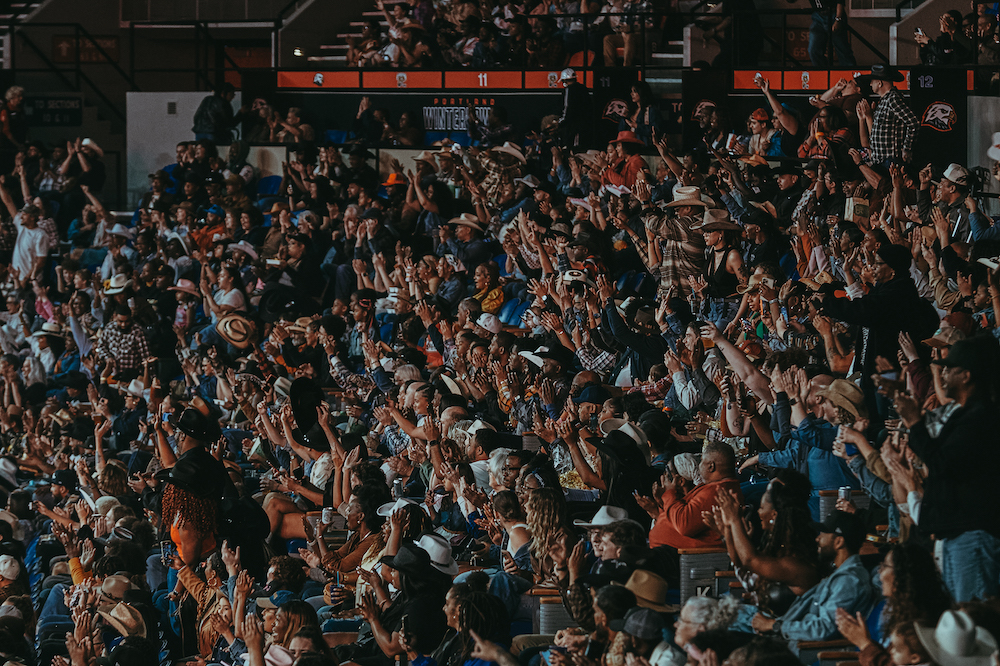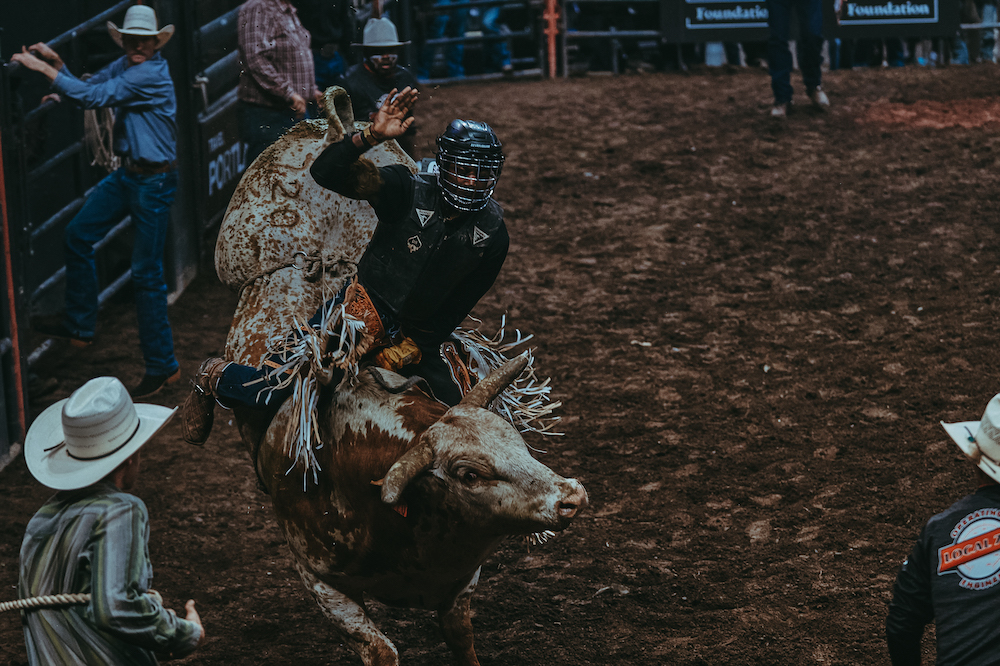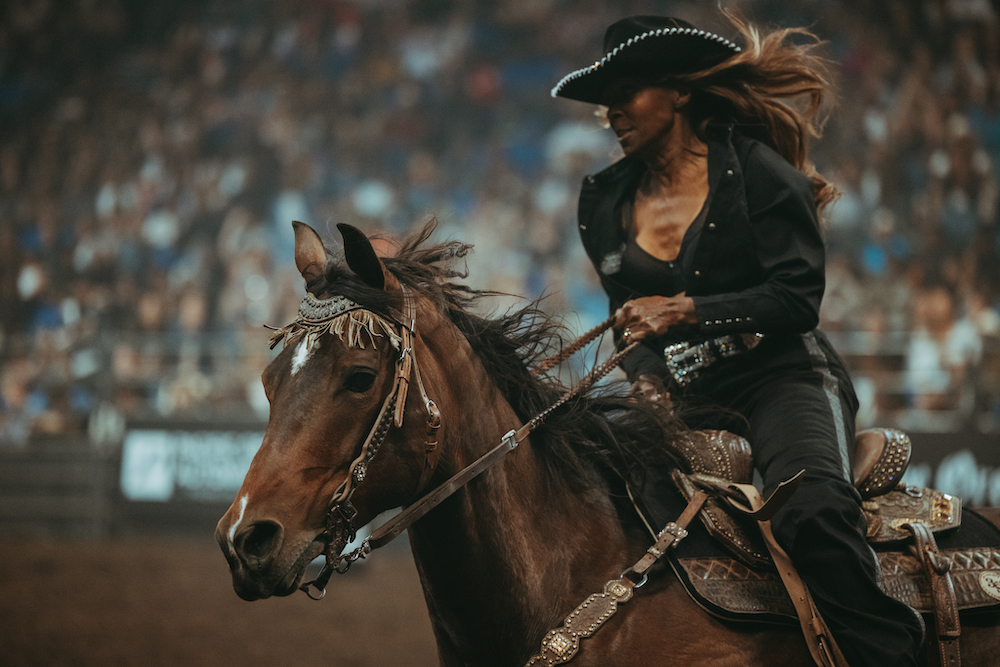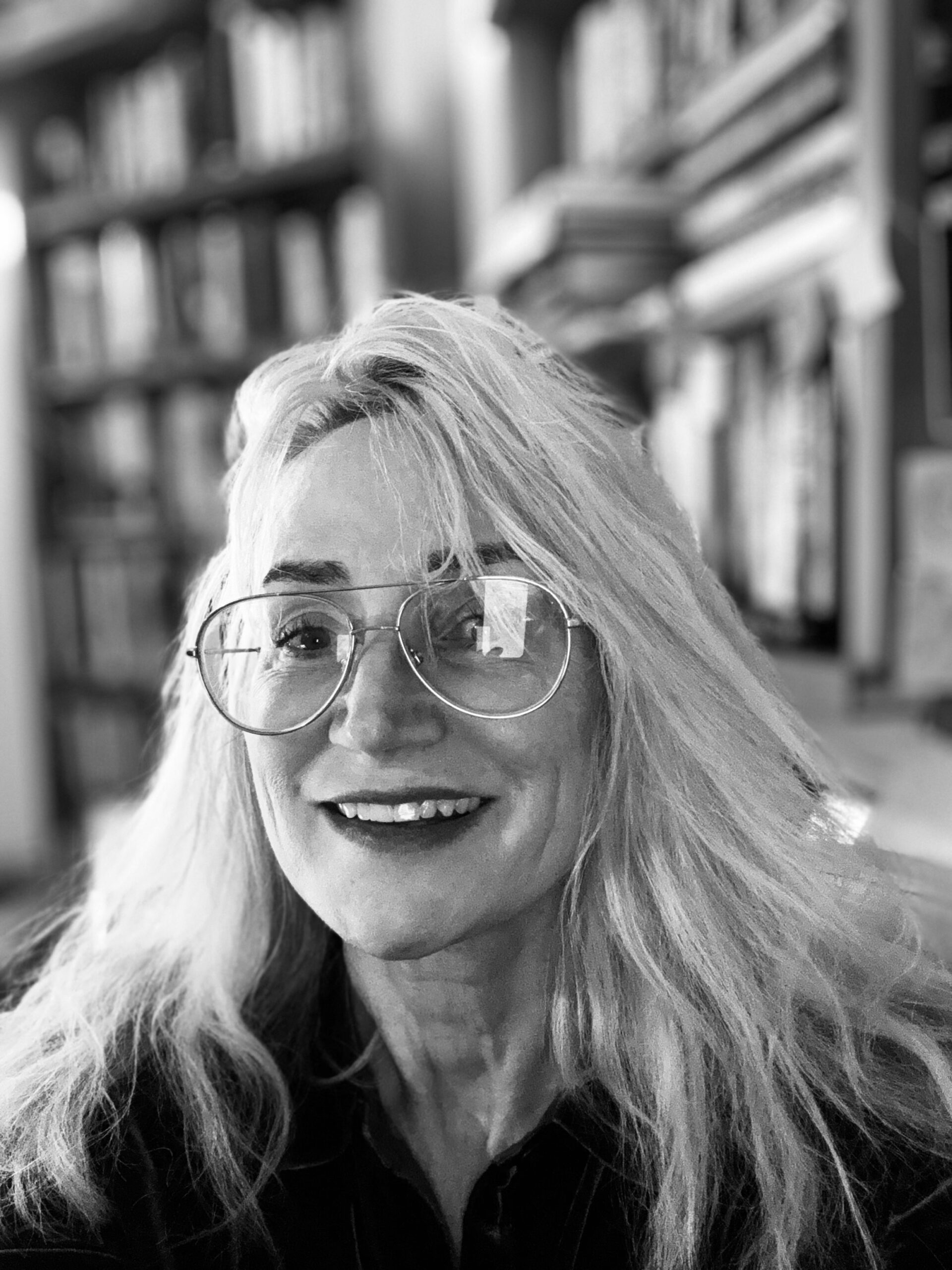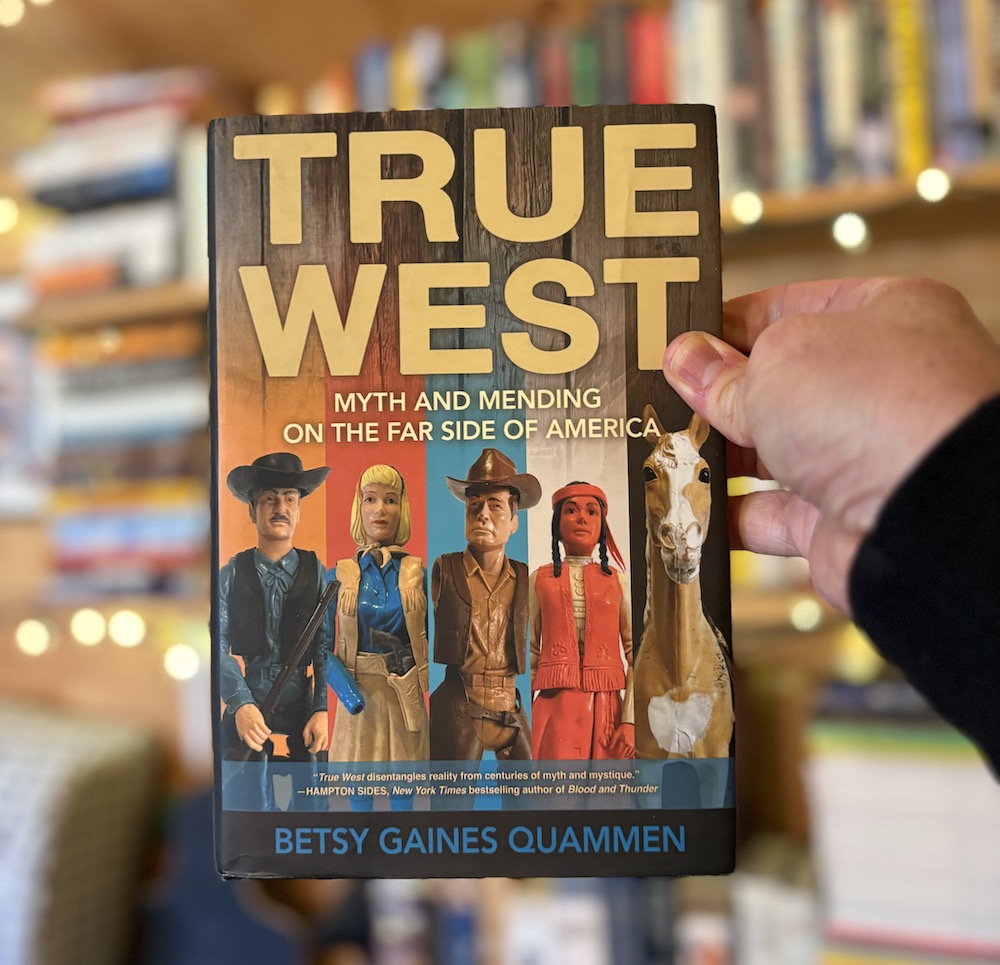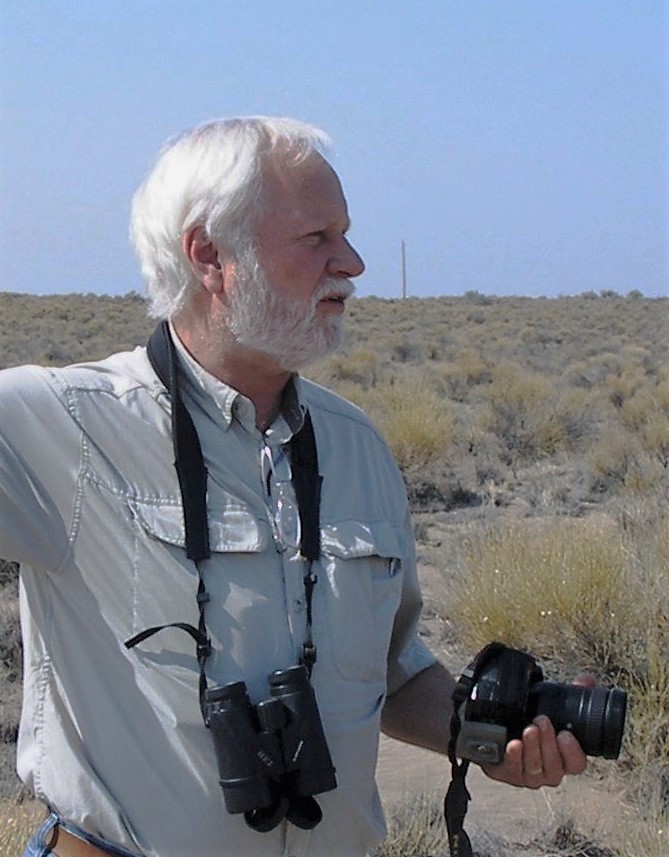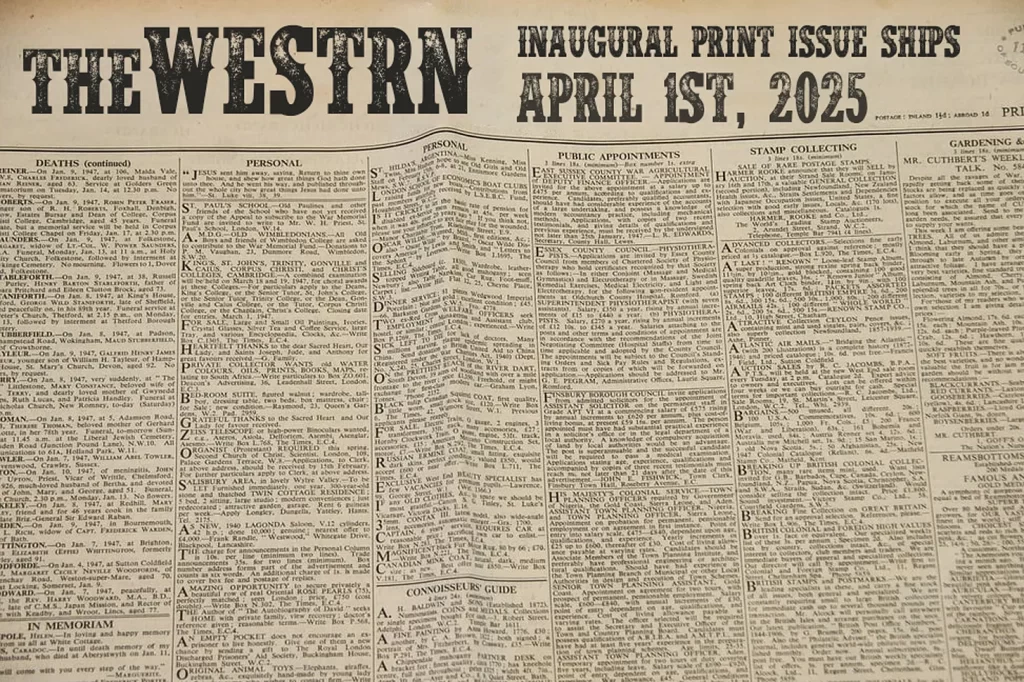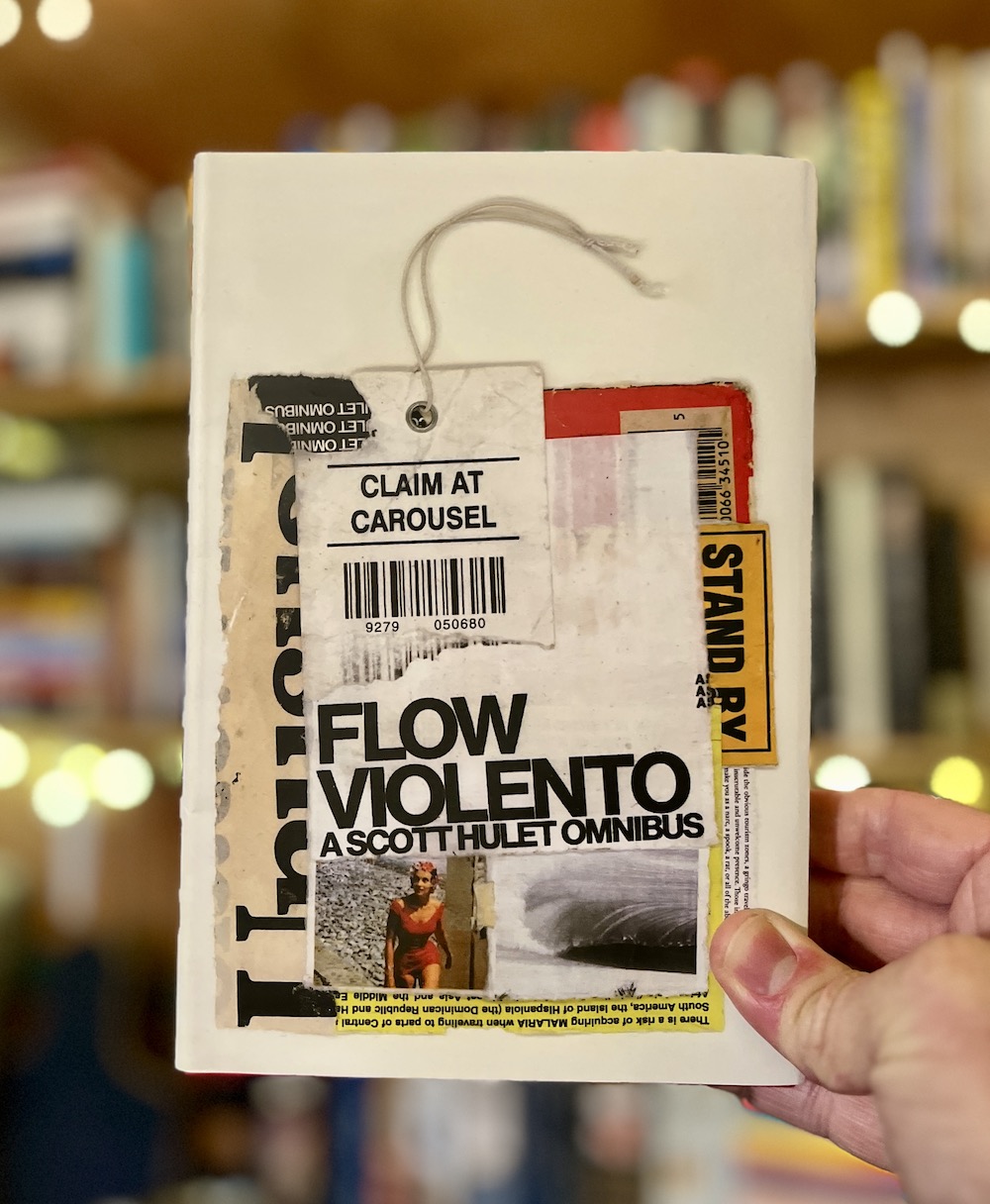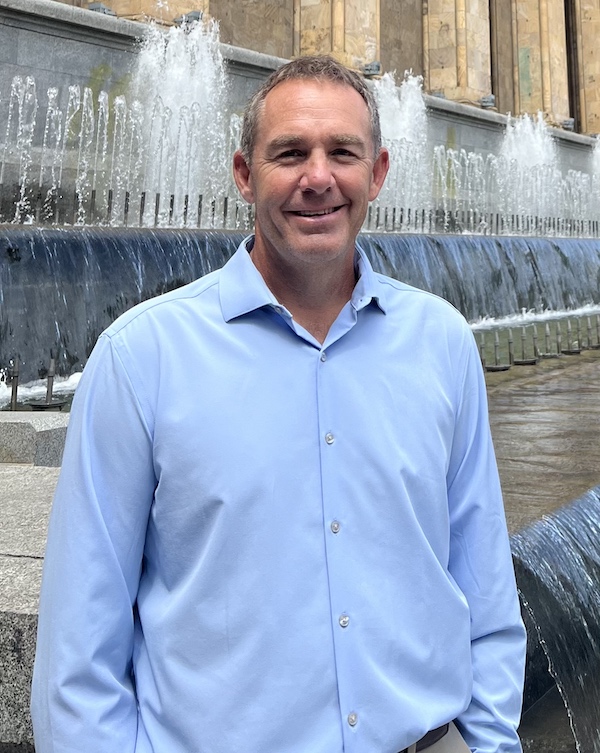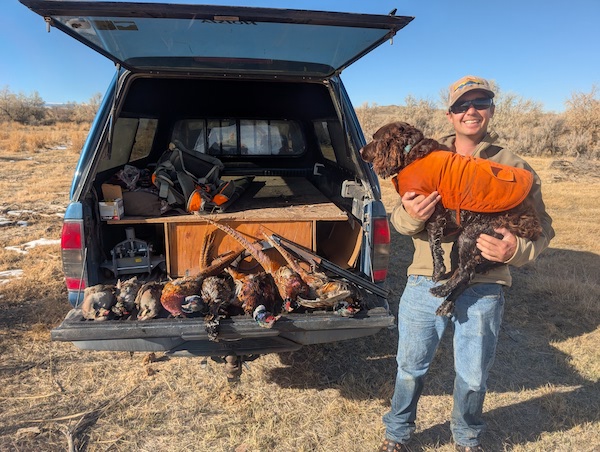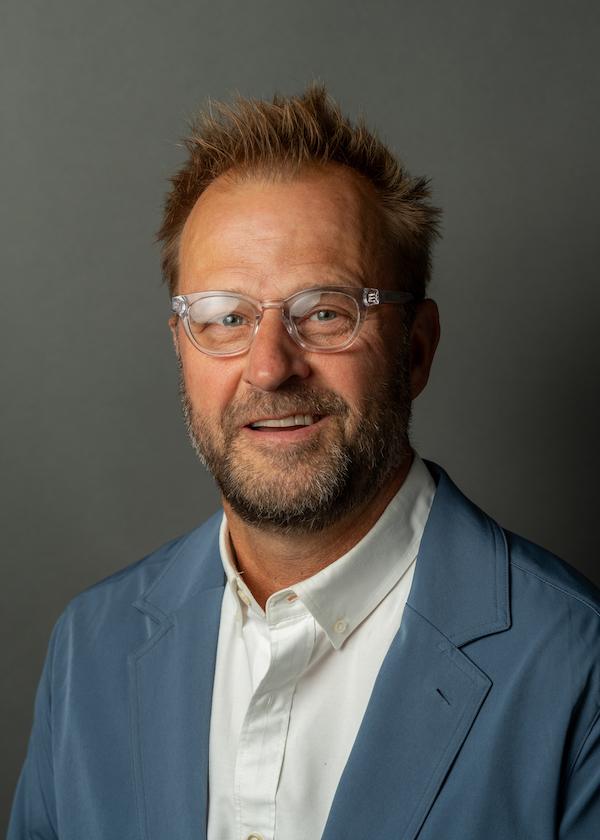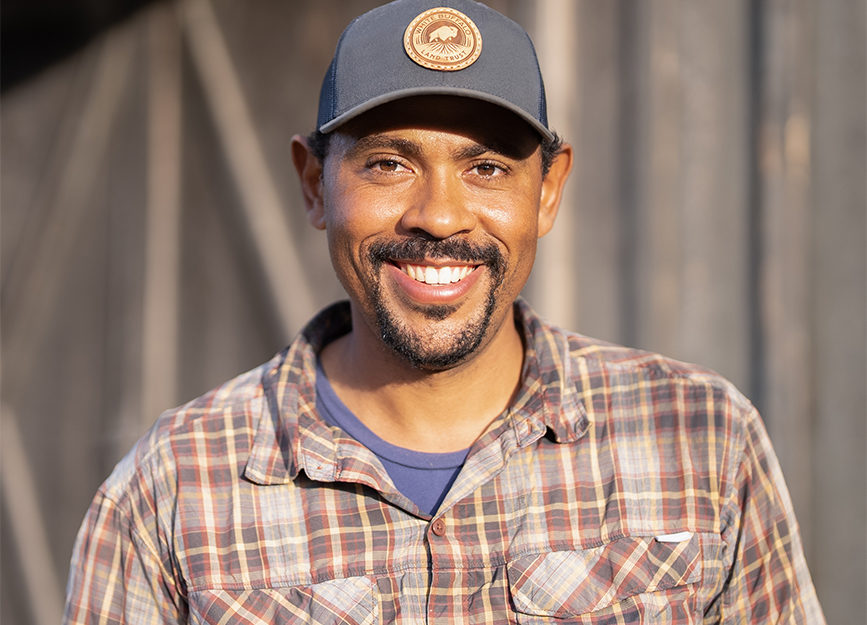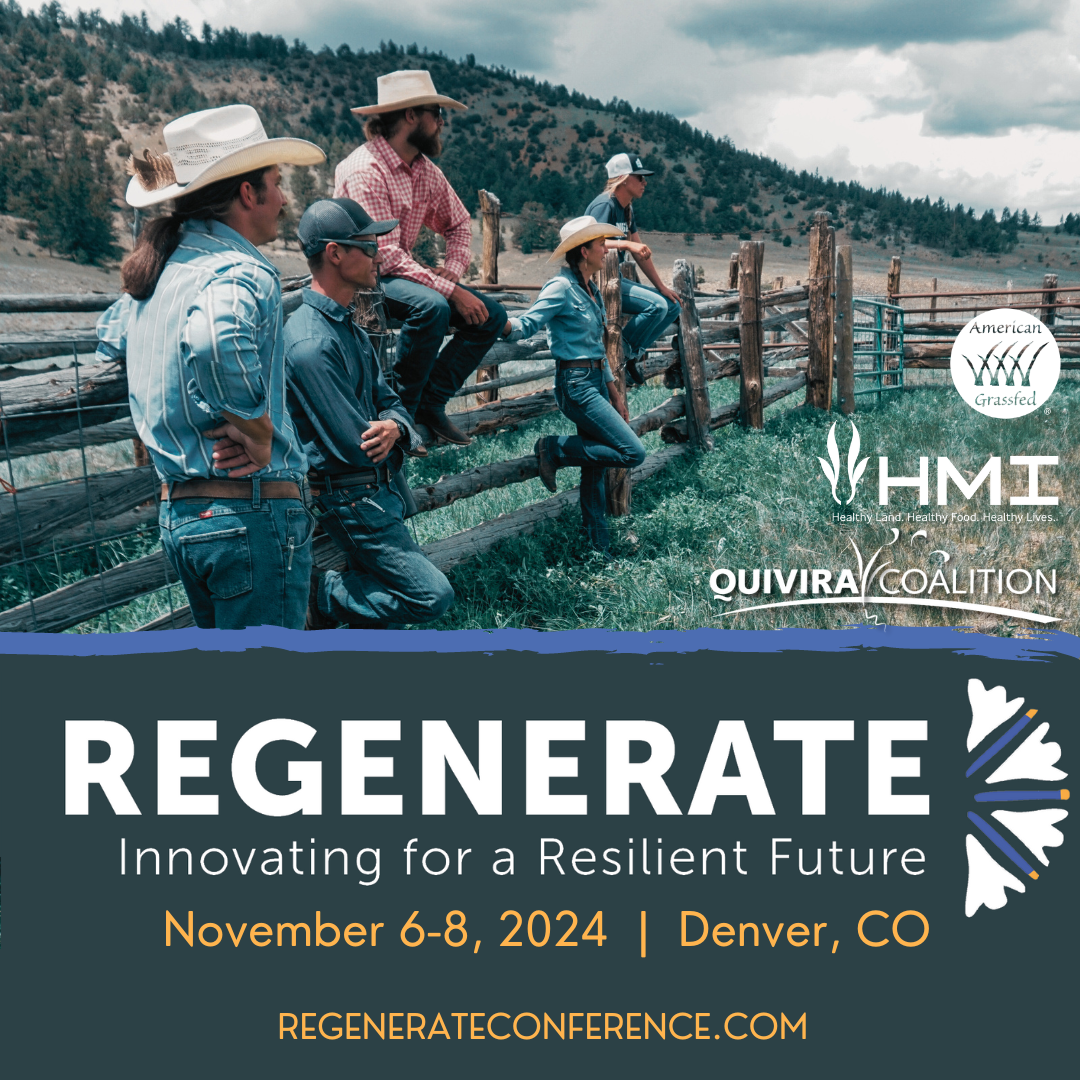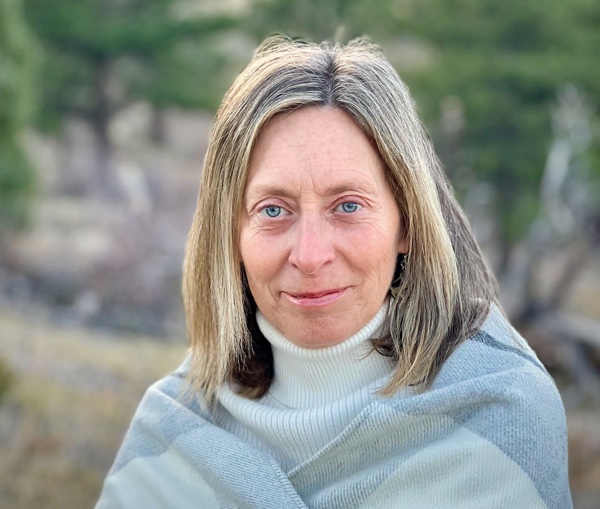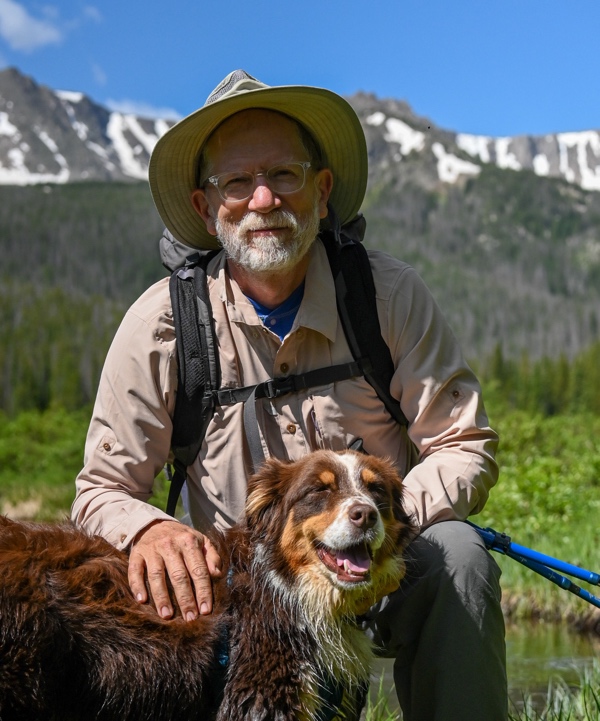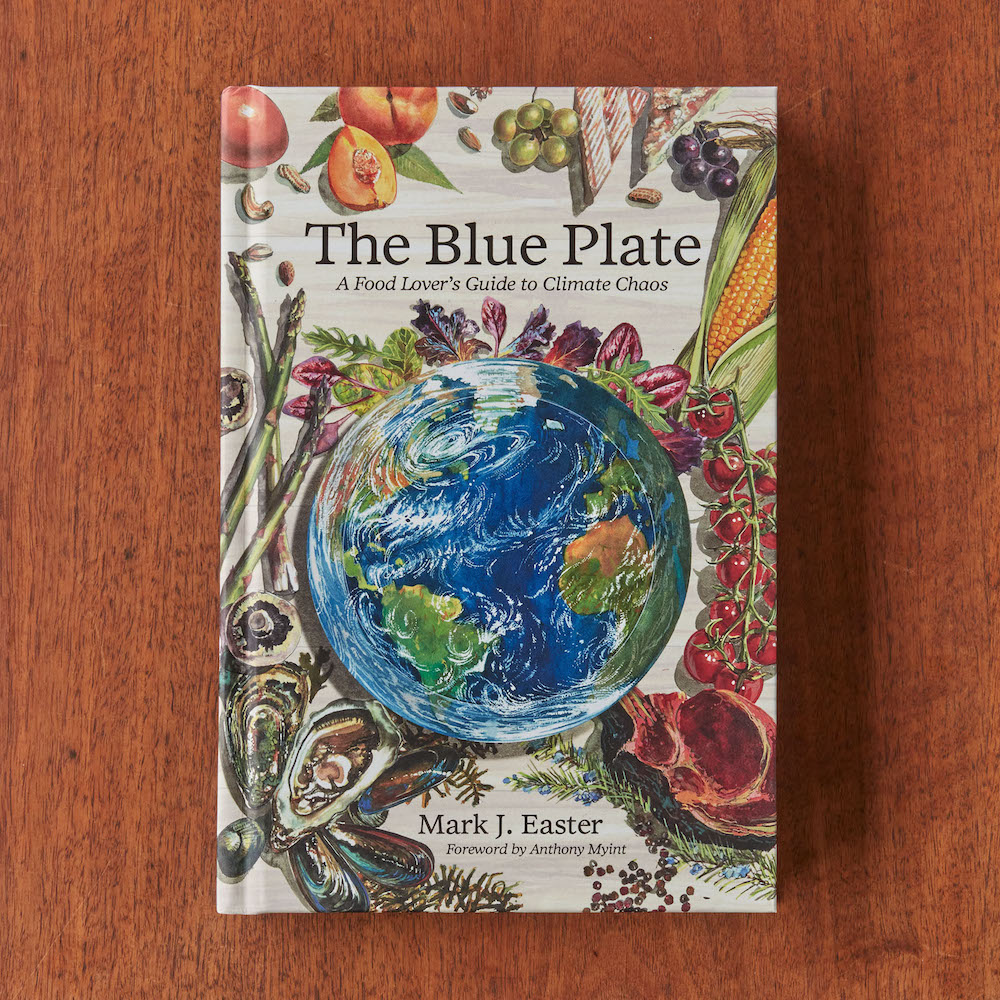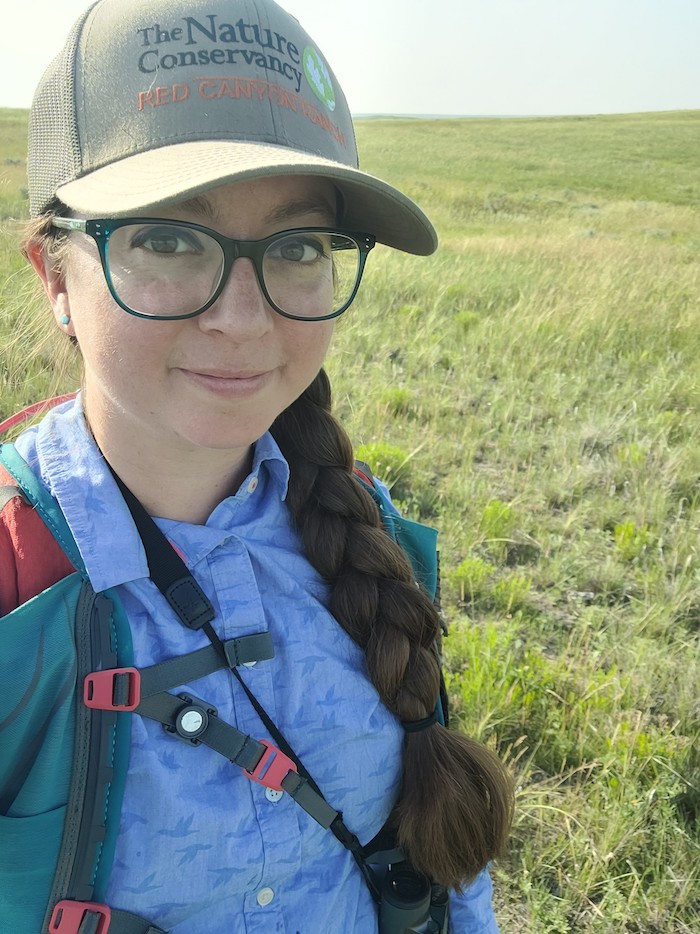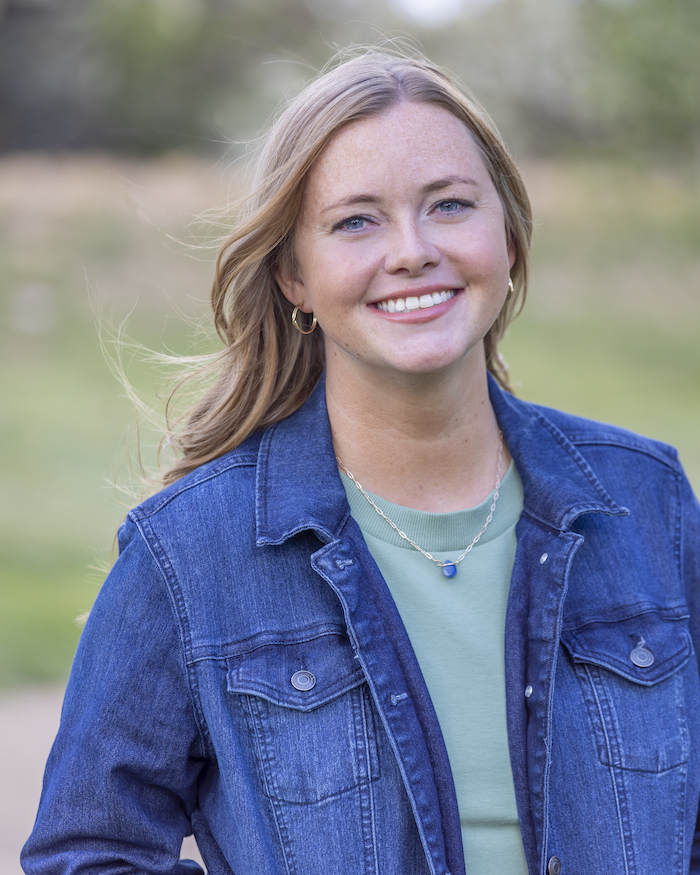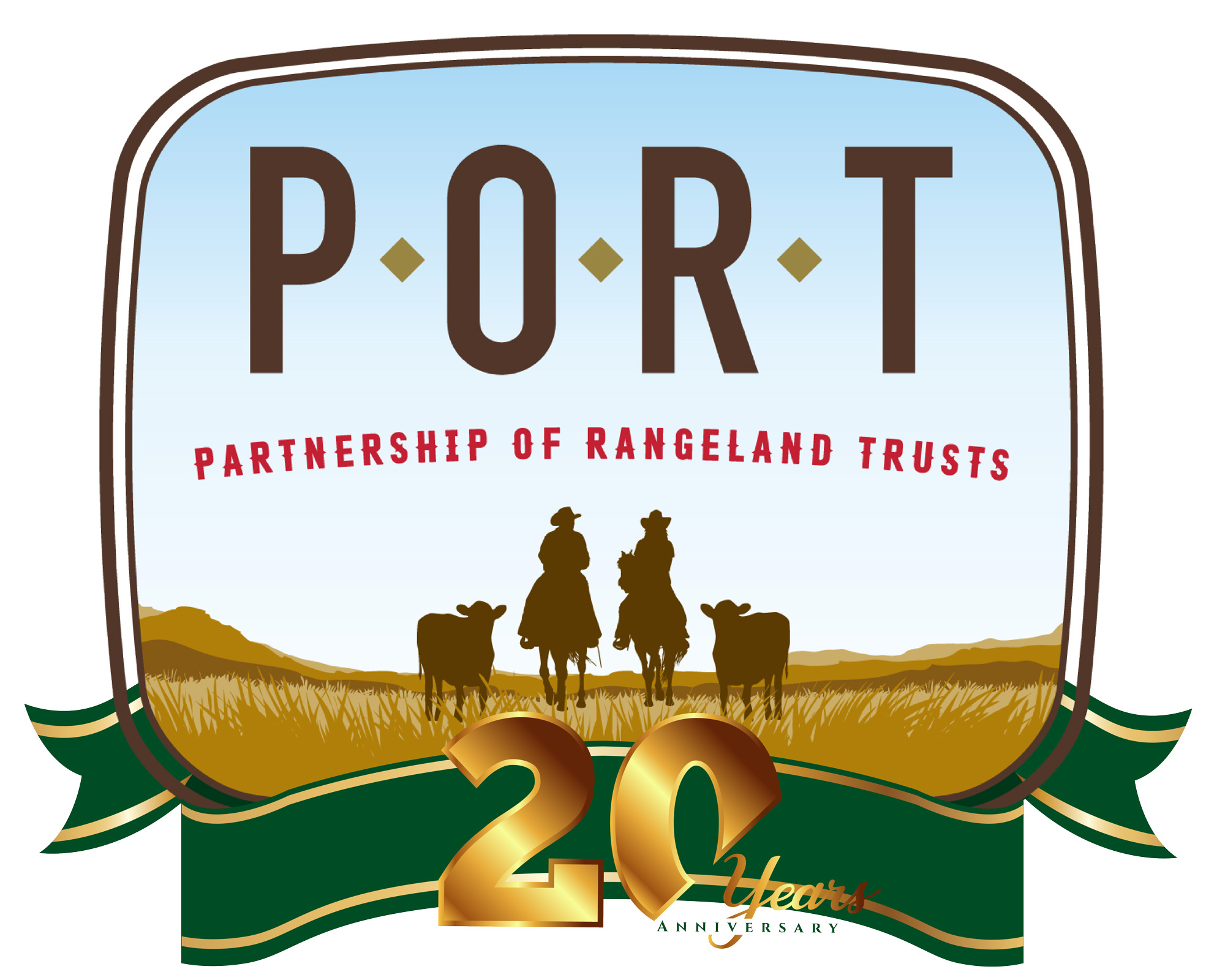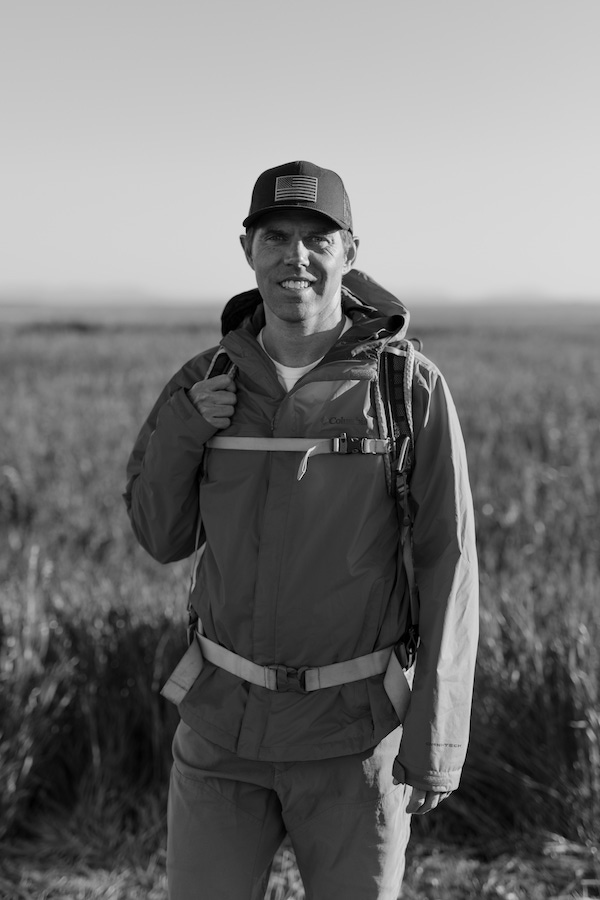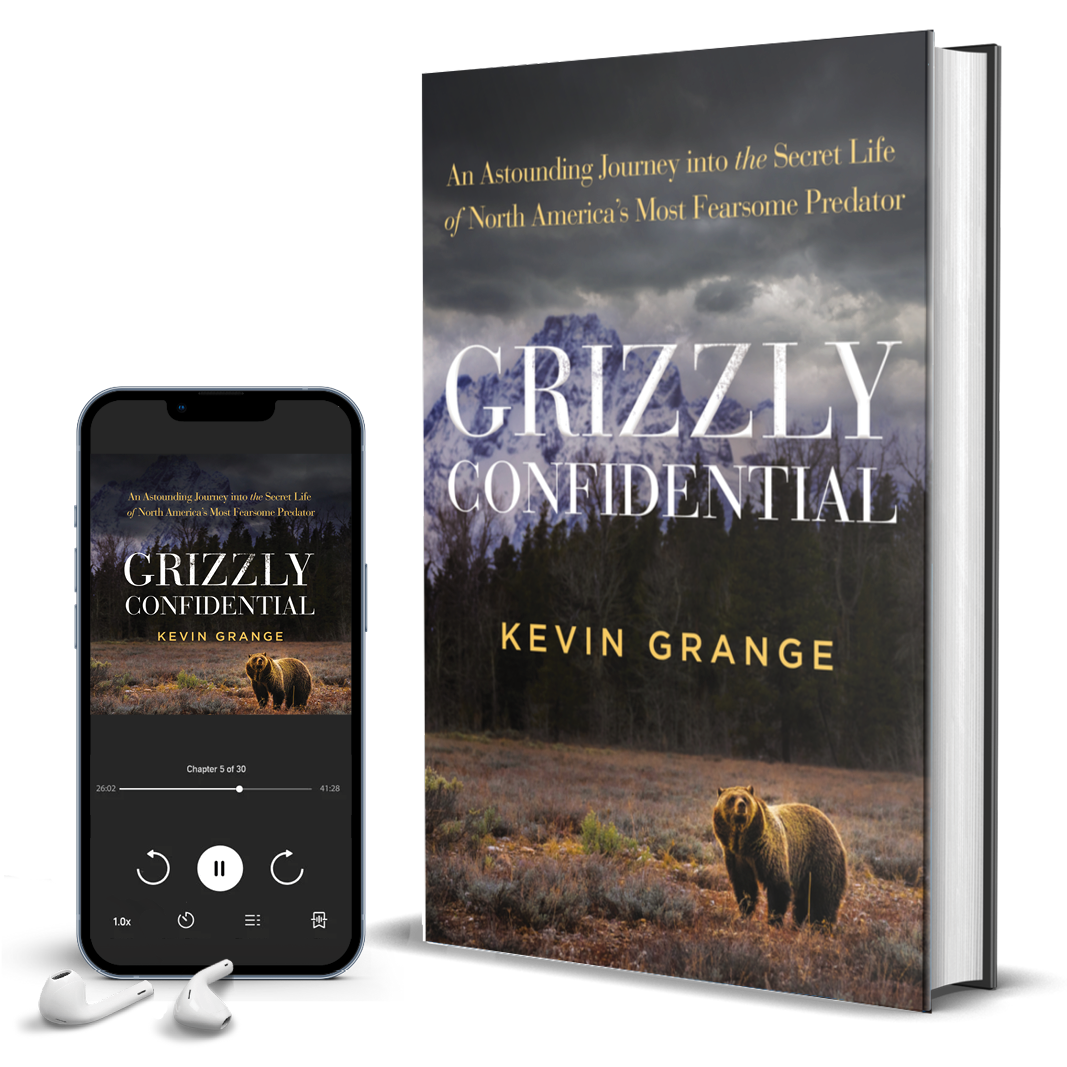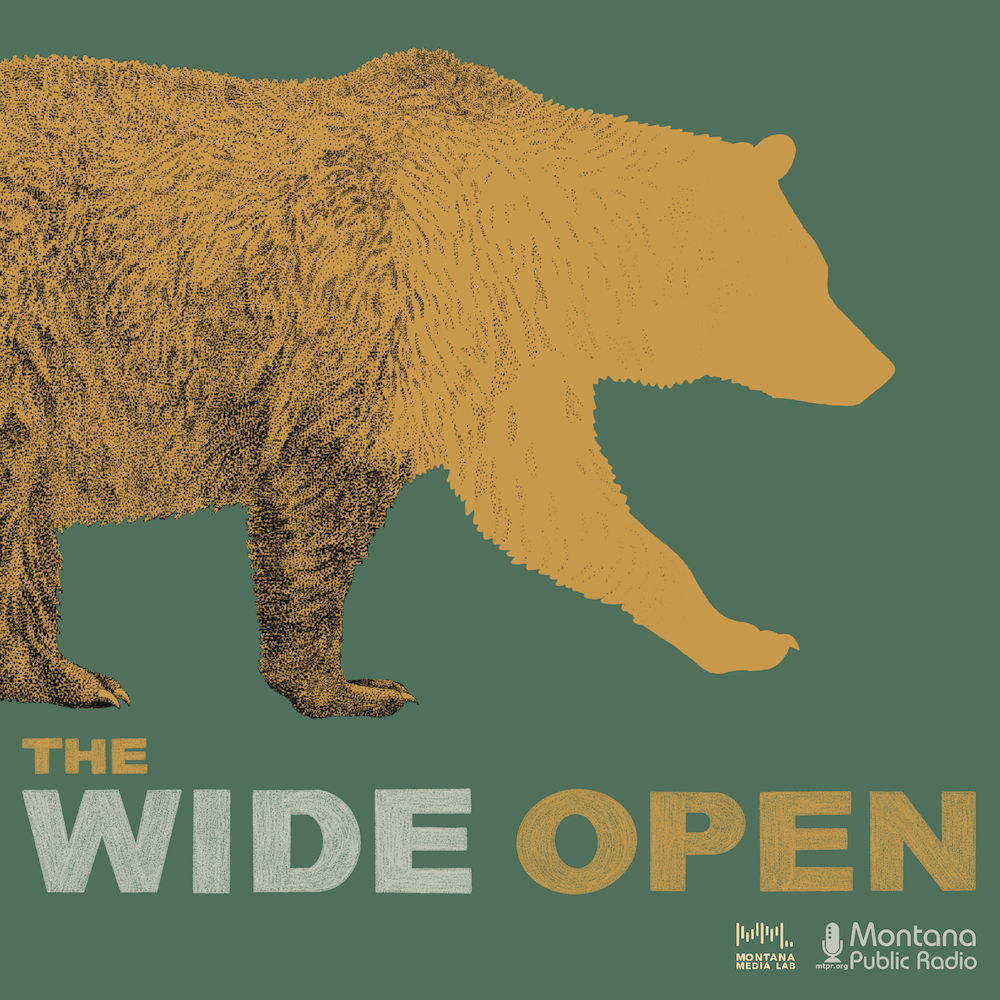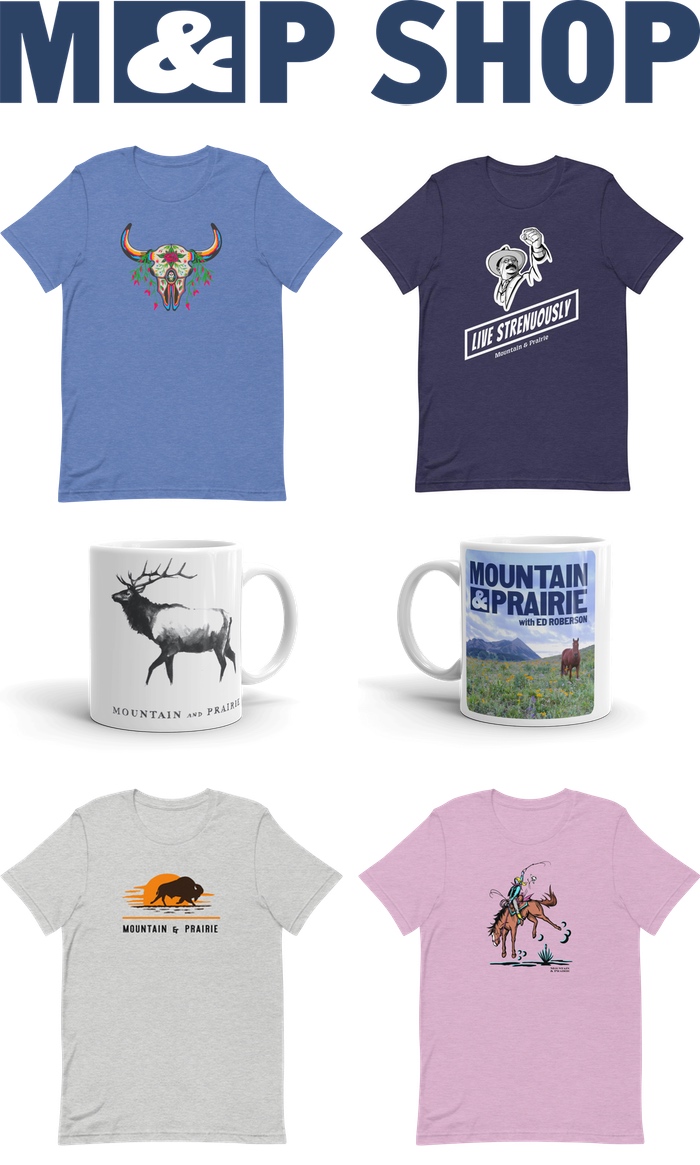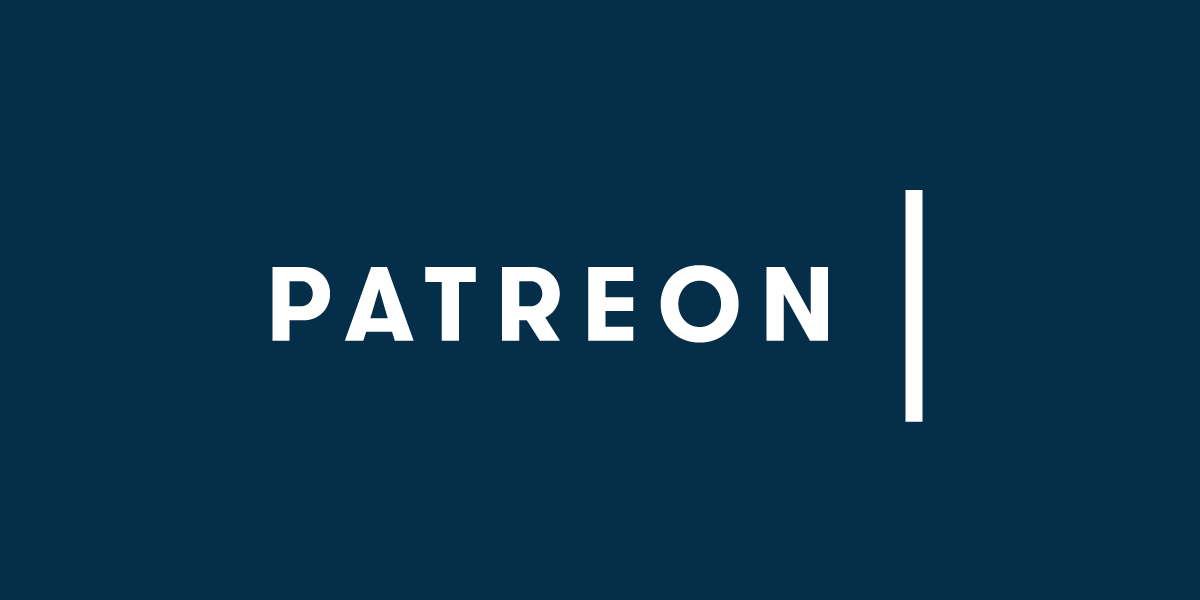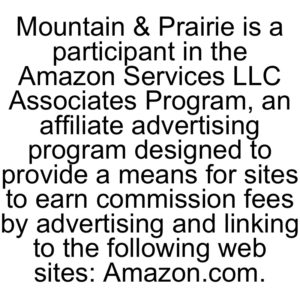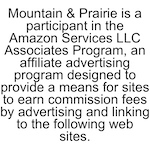Adam Cramer – Fighting for the Future of Public Lands
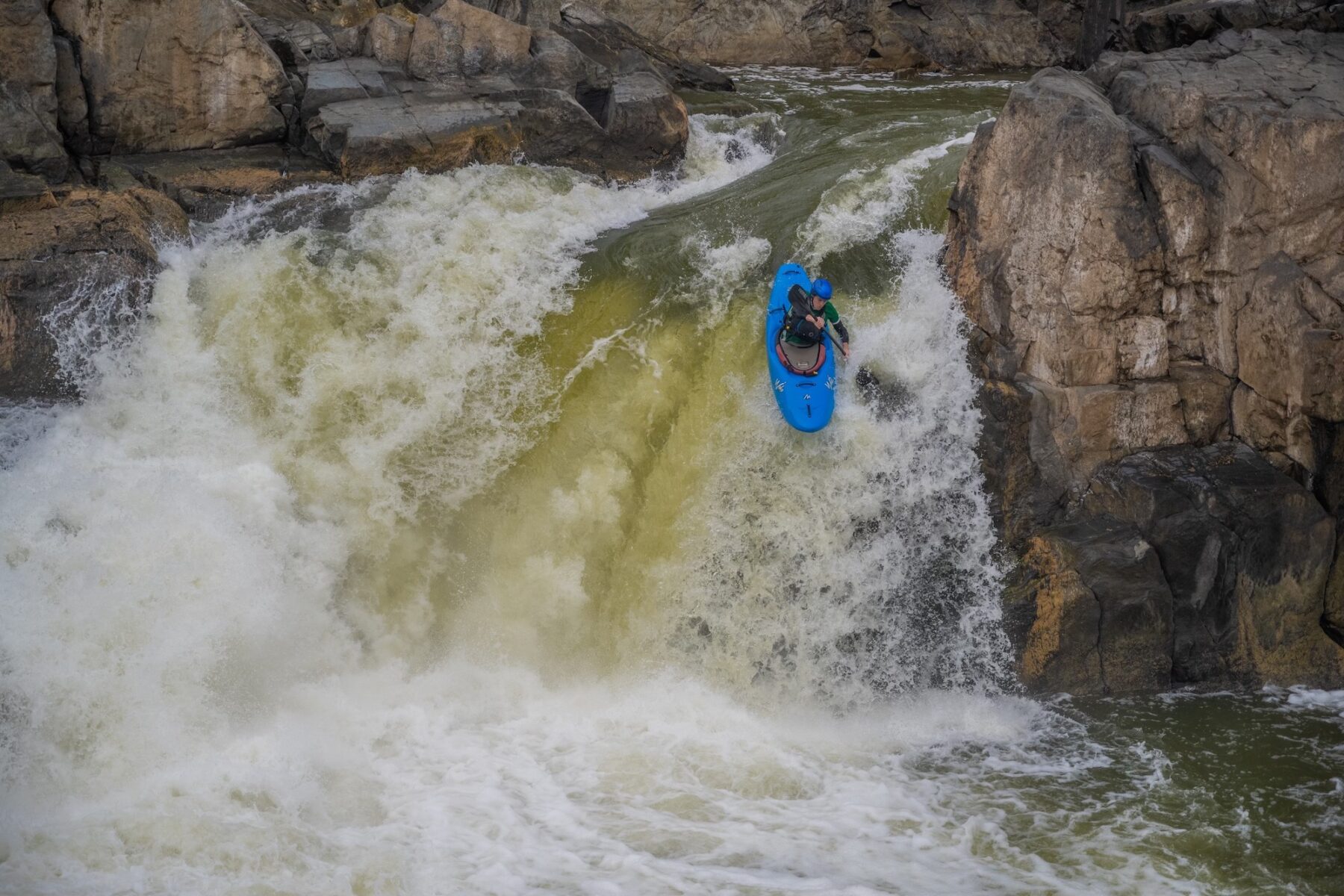
Adam Cramer is the CEO of the Outdoor Alliance, a coalition that brings together human-powered outdoor recreation groups to protect public lands and waters. With a deep understanding of both policy and recreation, Adam has helped position the Outdoor Alliance as a powerful voice in the national conservation movement—bridging the gap between grassroots outdoor communities and high-level decision-making in Washington, DC.
Before launching into public lands advocacy, Adam spent years working as an attorney in DC. But outside the office, his life was centered on outdoor adventure—he started as a skateboarder, then became a climber, and eventually a whitewater kayaker. A chance encounter in a river parking area led to his first pro bono conservation case, and that spark ultimately evolved into his full-time vocation. Adam’s story is a testament to the idea that if you care deeply about a place, there’s a way to use your unique skills to help protect it.
In this conversation, we talked about the origins of the Outdoor Alliance, Adam’s evolution from attorney to coalition-builder, and why generosity—not dominance—is his guiding principle for leadership. We discussed why civic engagement matters more than ever, how outdoor recreation can build bipartisan bridges, and why showing up—even when it feels small—can make a real difference.
It’s worth noting that we recorded this conversation in early June 2025, just as a wave of new legislation and political turbulence was rolling across the public lands landscape. Since then, things have continued to change rapidly. If you care about the future of outdoor recreation and conservation in this country, I highly recommend signing up for the Outdoor Alliance’s newsletter or following them on social media to stay informed and involved.
Again, a big thanks to the Mighty Arrow Family Foundation for introducing me to Adam and another big thanks to Patagonia Denver for generously letting us use their community room to record this conversation. Enjoy!
—
Photos courtesy of Adam Cramer and the Outdoor Alliance
LISTEN & DOWNLOAD:
Apple Podcasts
Spotify
…or wherever you get your podcasts!
EPISODE PARTNER:
This episode is brought to you in partnership with the Mighty Arrow Family Foundation.
To whom much is given, much is expected. This value guides the philosophy behind the Mighty Arrow Family Foundation today.
Committed to its cause and infused with an entrepreneurial spirit, Mighty Arrow aims to invest in solutions that take action on climate change to build a more vibrant future, repair relationships from farm to market to table, heal our connection to the lands and waters we call home, and demand a more just and equitable society.
To learn more about Mighty Arrow’s forward-thinking, optimistic, and visionary work here in the American West and beyond, please visit www.mightyarrow.org.
RESOURCES:
Topics Discussed:
- 3:05 – Intro (with a jiu jitsu connection)
- 6:45 – Law school, then what?
- 8:01 – The individuality of skateboarding
- 10:38 – Billdering
- 11:45 – Beginning of kayaking and the end of a relationship
- 13:40 – A type of code switching
- 16:26 – Giving back to the places
- 23:03 – How Outdoor Alliance came together
- 27:51 – Sticking points
- 30:46 – Attorney mindset to strategy point-person
- 33:13 – Leadership inspiration
- 37:24 – A generous mindset
- 42:49 – Who’s pro selling off public lands?
- 45:21 – Guidepost goals
- 49:04 – The reason Adam got on the plane to Colorado, where he’s talking with Ed
- 48:14 – Why you should engage with your elected officials
- 58:30 – Evidence the world doesn’t totally suck
- 59:43 – Optimistic?
- 1:03:40 – How to get involved
- 1:05:06 – Book recs
Information Referenced:
- Adam Cramer
- Outdoor Alliance
- Outdoor Alliance – TAKE ACTION
- Sign up for Outdoor Alliance Action Alerts
- The latest from the Outdoor Alliance (as of 6.16.25)
- Outdoor Alliance on Instagram
- American Whitewater, a law firm that started the path of Adam’s giving back to a place.
- Upper Yough, what Adam decided to fight for. Background from American Whitewater.
- William Guerry, Adam’s former boss, who encouraged his early conservation advocacy.
- FLIPMA, federal law that, in essence, says the federal estate should remain intact.
- Advocacy Days exist for many different organizations. Here’s info on one for the Land Trust Alliance.
- Public Lands in Public Hands Act
- Book recs: The Fire Next Time by James Baldwin; Ezra Klein’s Abundance
Enjoy this episode? Then you might like these too:
- Kristine Tompkins – Nothing to Lose
- Sonnie Trotter – On Flow, Family, and the Long Game
- Aaron Citron: Crafting Conservation Policy in a Changing West
- Hal Herring Returns – Live at the Old Salt Festival
- Pete McBride Returns – Exploring & Documenting His Backyard River
- Sandy Colhoun – Building Leaders Through Outdoor Education
- Elliot Ross: Where Landscape, Justice, and Storytelling Meet
Visit the podcast page for a full list of episodes where you can filter episodes by topic and guests’ vocations.
Tony Bynum – Showing Up for the Land
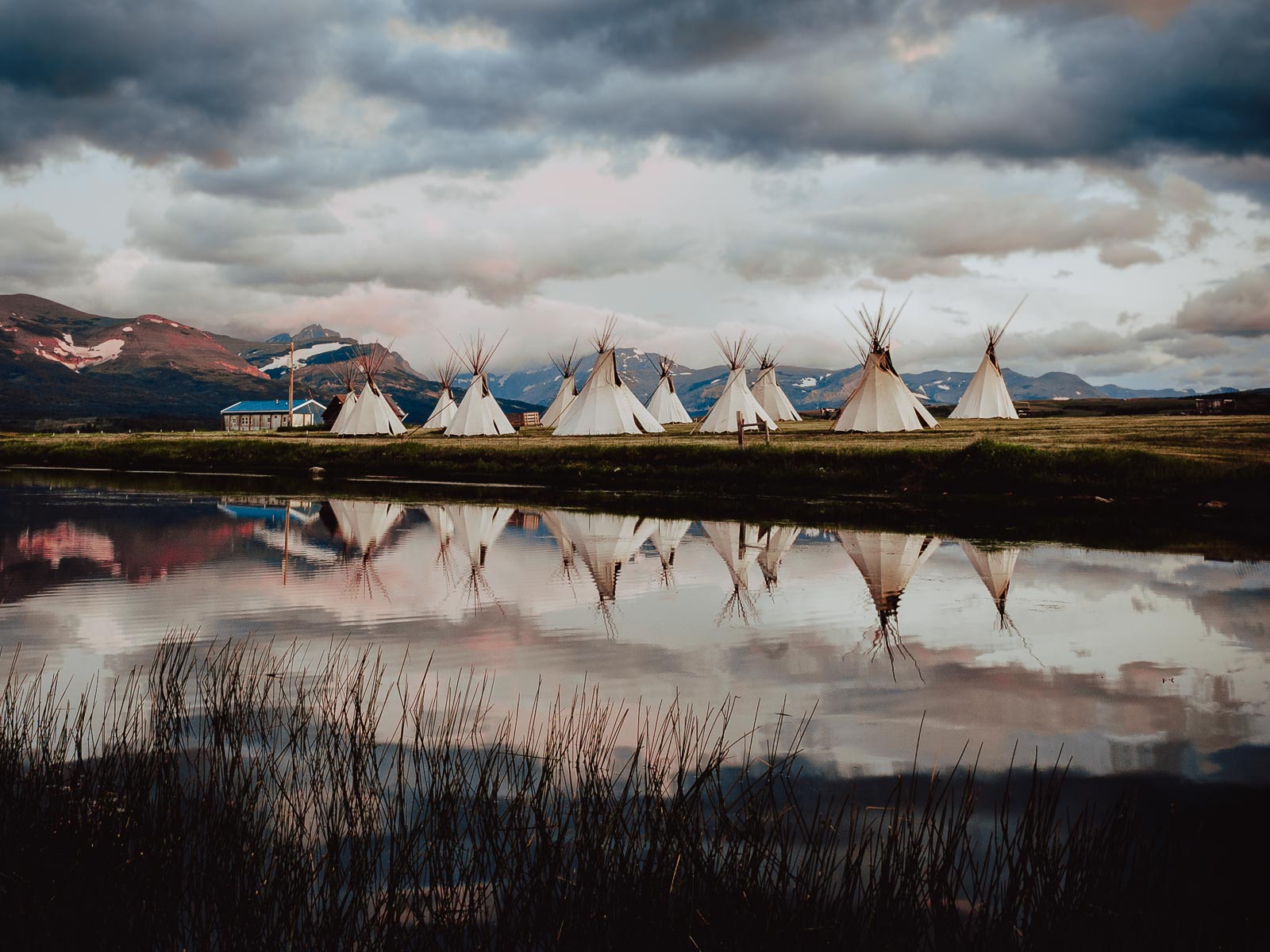
Tony Bynum is a conservation photographer, scientist, and advocate who’s spent decades working at the intersection of public lands, Indigenous rights, and environmental storytelling. Based in Montana, his images have helped shape national conversations around energy development, landscape protection, and the cultural importance of the Northern Rockies. His work has been published widely and used by countless conservation organizations to make the case for protecting wild places.
Before photography became his profession, Tony spent many years working for the Yakama Nation as a senior scientist, eventually landing in Washington, D.C., where he helped shape tribal environmental policy at the highest levels of government. But his path was never linear. A born-and-bred Westerner, he’s been a cowboy, a fly fishing guide, a federal program manager, and a backcountry wanderer. His guiding principle—“Don’t just love something, do something for it”—has carried him through an unconventional but deeply impactful career.
In this episode, Tony tells us about his winding path and the values that have guided him along the way. We dig into his time in D.C., his decision to walk away from a conventional career, and the beginnings of his conservation photography—especially his long-running effort to document proposed energy development on the Blackfeet Reservation and the edge of Glacier National Park. As you’ll hear, I stepped back a little bit in the conversation and let Tony tell his story in his own words, and the result is a thoughtful and unfiltered look at what it means to live a life rooted in land and responsibility.
Thanks so much for listening, hope you enjoy!
—
All photos by Tony Bynum
LISTEN & DOWNLOAD:
Apple Podcasts
Spotify
… or wherever you get your podcasts!
—
RESOURCES:
Topics Discussed:
- 2:02 – Intro, where Tony grew up
- 6:21 – Cue, photography in the early days
- 9:15 – Just doing interesting things
- 13:13 – Indigenous and Western takes on science
- 18:35 – Family dynamics
- 21:24 – Where the work ethic came from
- 23:14 – Where Tony didn’t tread
- 25:48 – Cue, bureaucracy
- 31:07 – Lessons from the copy room
- 36:17 – Tony’s purpose in DC
- 39:01 – And why he had to leave
- 40:41 – Restarting in Montana
- 42:46 – Full-time photography
- 47:07 – A diverse portfolio
- 50:16 – Film to digital and internet access
- 56:05 – Finding conservation
- 58:18 – Energy development near Glacier and the Blackfeet Indian Reservation
- 1:02:52 – The importance of having a visual context
- 1:04:04 – Describing the oil and gas map
- 1:09:51 – Book recs
- 1:18:04 – Final words
Information Referenced:
- Tony Bynum
- Cosmos, Carl Sagan
- A Short History of Nearly Everything
- Podcast episode on the Badger Two-Medicine conversation
- NYT coverage of Tony’s oil and gas boom map focused on east Glacier
- Book recs: Crossing the Next Meridian, This America of Ours, The Rise of the American Conservation Movement
- Spoiler alert about an upcoming new Hal Herring book!
- Cadillac Desert
Enjoy this episode? Then you might like these too:
- Hal Herring Returns – Live at the Old Salt Festival
- Rusty Bell & Justin Loyka – Economics, Energy, and Community Pride
- Helen Augare Carlson & Dylan DesRosier – Land, Language, and Stewardship in the Blackfeet Nation
- Elliot Ross: Where Landscape, Justice, and Storytelling Meet
- Jesse Smith – A Regenerative Approach to Land and Life
- Nichole Barger – Science as a Catalyst for Human Connection
- Mark Easter – Food, Soil, and Our Planet’s Future
Visit the podcast page for a full, searchable list of episodes
Jackie Miller and Carlos Fernández – A Breakthrough Moment for Colorado Conservation
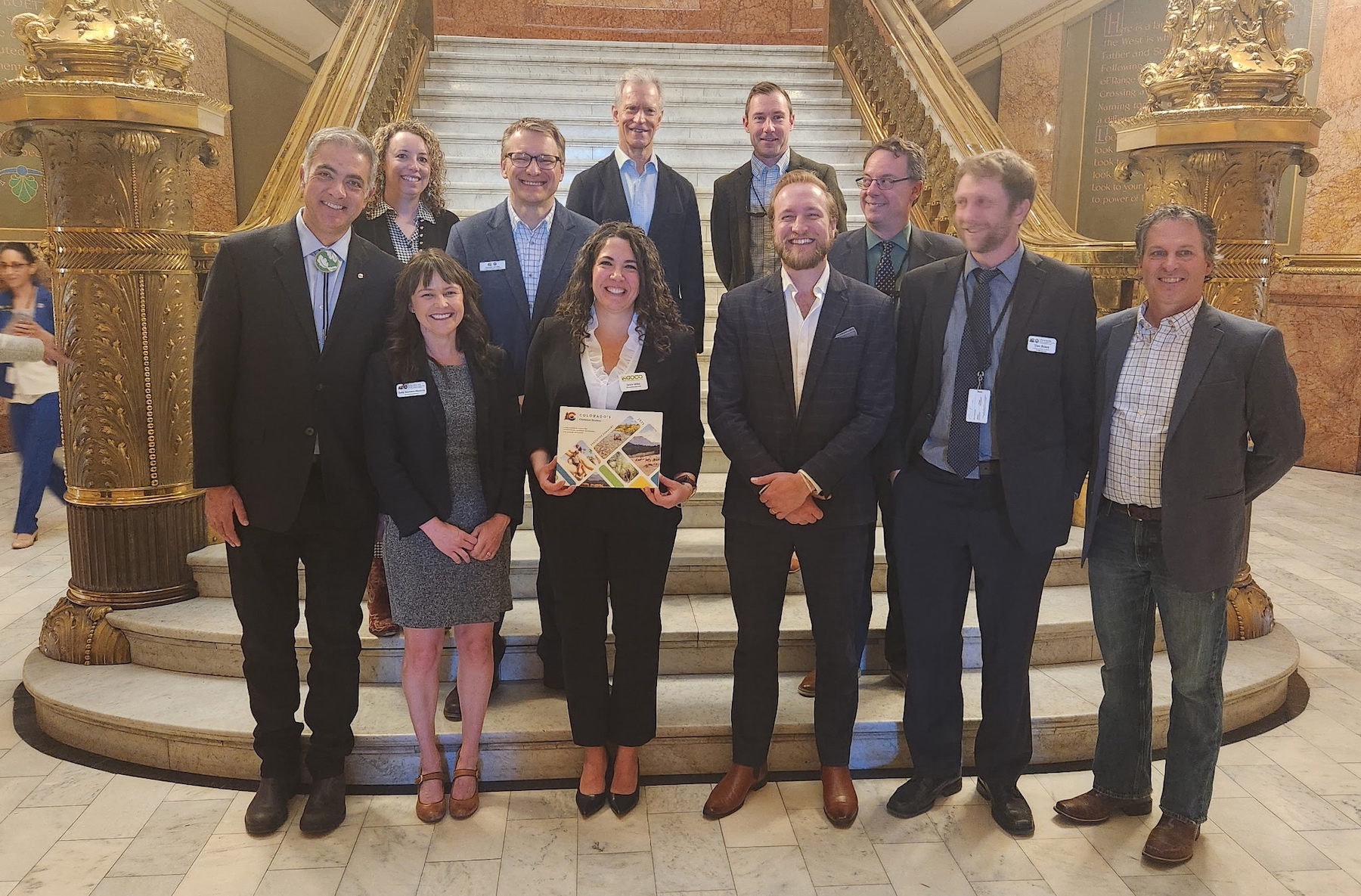
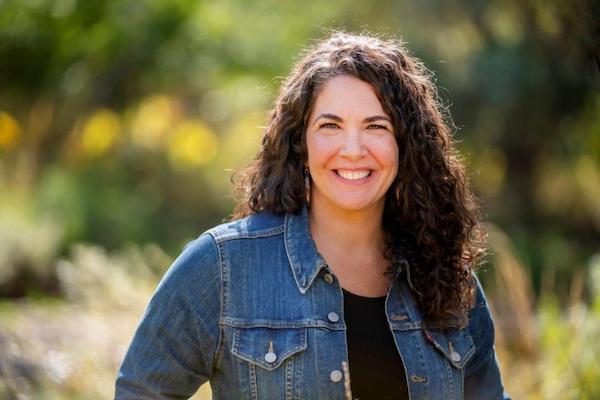
Jackie Miller is the Executive Director of Great Outdoors Colorado (GOCO), and Carlos Fernández is the Colorado State Director for The Nature Conservancy. Both are highly respected leaders in Colorado’s conservation community, and they’ve played pivotal roles in shaping the state’s approach to protecting land, water, wildlife, and outdoor access. While Carlos has joined me on the podcast several times before, this is Jackie’s first appearance, and I was honored to have them both on to discuss one of the most significant conservation developments in recent memory.
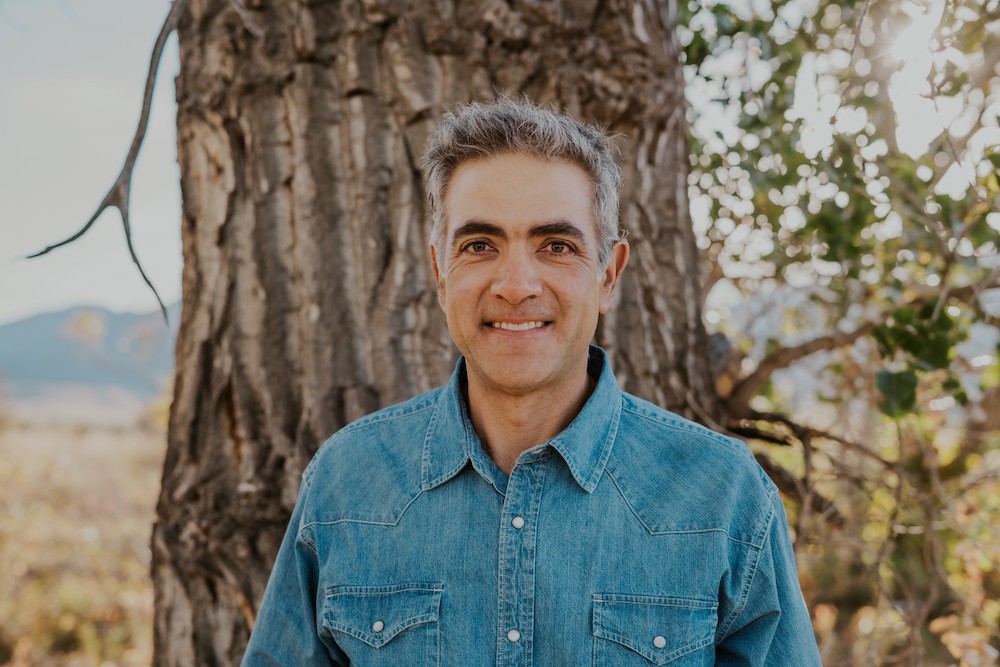
Just a few weeks ago, the State of Colorado announced the launch of its Outdoors Strategy—a comprehensive, collaborative roadmap designed to align the state’s conservation, outdoor recreation, and climate resilience efforts for decades to come. Developed through years of planning, dialogue, and consensus-building across hundreds of organizations and communities, the Strategy addresses some of the most pressing challenges facing Colorado’s landscapes and communities. It’s not just a plan—it’s a shared vision backed by actionable goals, clear metrics, and powerful tools for implementation at the local and statewide levels.
In this wide-ranging conversation, we discuss the origin of Colorado’s Outdoors Strategy, the urgency behind its creation, and the unique collaborative process that brought it to life. Jackie shares how GOCO’s long-standing community partnerships and flexible funding model positioned the organization to lead at a statewide scale, while Carlos explains how the Strategy dovetails with The Nature Conservancy’s science-based goals and priorities. We also explore the Strategy’s “North Star” goals, the innovative Resource Hub that supports on-the-ground action, and the importance of regional implementation and tribal engagement. It’s a timely, inspiring look at how Colorado is setting a national standard for coordinated, community-driven conservation.
Photos courtesy of TNC and GOCO
LISTEN & DOWNLOAD:
Apple Podcasts
Spotify
…or wherever you get your podcasts!
EPISODE PARTNER:
This episode is brought to you in partnership with the Colorado chapter of The Nature Conservancy and TNC chapters throughout the Western United States. Guided by science and grounded by decades of collaborative partnerships, The Nature Conservancy has a long-standing legacy of achieving lasting results to create a world where nature and people thrive.
During the last week of every month throughout 2025, Mountain & Prairie will be delving into conversations with a wide range of The Nature Conservancy’s leaders, partners, collaborators, and stakeholders, highlighting the myriad of conservation challenges, opportunities, and solutions here in the American West and beyond. You can access all of the episodes here.
To learn more about The Nature Conservancy’s impactful work in the West and around the world, visit www.nature.org
RESOURCES:
Topics Discussed:
- 3:03 – Intros, Carlos then Jackie
- 5:09 – Explaining Great Outdoors Colorado
- 8:51 – How Jackie got to GOCO
- 11:37 – Carlos on GOCO
- 15:29 – Challenges and opportunities that led to Colorado’s Outdoors Strategy
- 19:04 – Opportunities that the Strategy will address
- 21:33 – Jackie’s executive summary
- 27:01 – How the Strategy aligns with TNC’s other goals
- 29:59 – North stars and measuring success
- 33:22 – The TNC tools Carlos is excited about
- 36:34 – Creating urgency to execute a plan
- 40:14 – Face-to-face
- 42:51 – Carlos’s thoughts on execution
- 45:49 – How the plan affects the layperson
- 47:25 – What did we miss? First Jackie
- 51:29 – Then Carlos
- 53:31 – Book recs
- 57:42 – Wrap up words of wisdom
Information Referenced:
- Jackie Miller
- Carlos Fernandez
- Colorado’s Outdoors Strategy
- Colorado’s Outdoors Strategy Video
- Book recs: Prodigal Summer, Abundance, A Walk in the Park, American Wolf
- Quote that Carlos shared in the wrap-up.
Enjoy this episode? Then you might like these too:
- Elliot Ross: Where Landscape, Justice, and Storytelling Meet
- Chris Pague – Stories, Science, and the Southern High Plains
- Nichole Barger – Science as a Catalyst for Human Connection
- Ivan McClellan Returns – From Behind the Lens to Center of the Arena
- Kevin Grange – The Secret Lives of Grizzlies
- Nick Mott – A Masterclass in Nuanced Storytelling
Visit the podcast page for a full list of episodes where you can filter episodes by topic and guests’ vocations.
Sonnie Trotter – On Flow, Family, and the Long Game
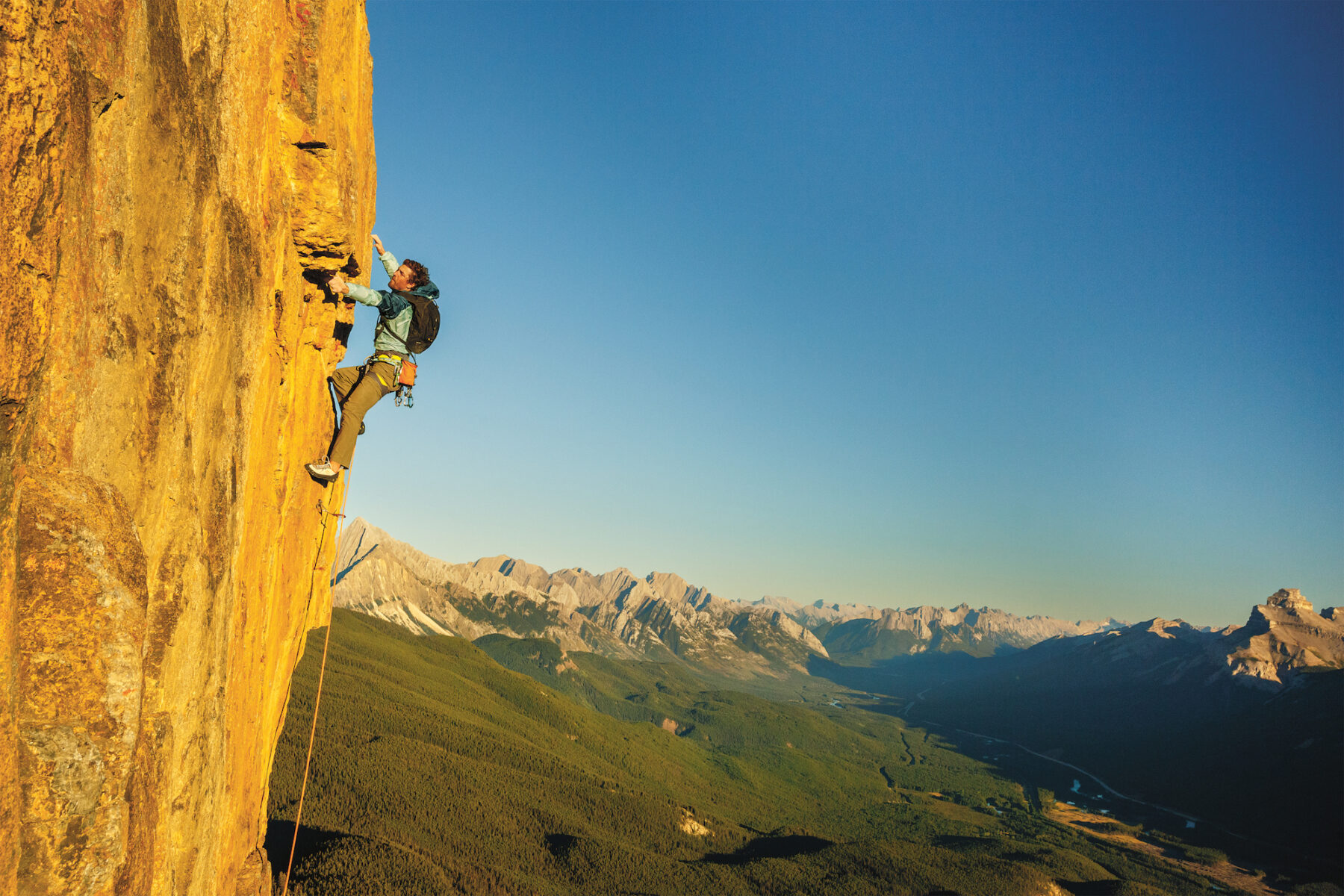
Sonnie Trotter is a world-renowned rock climber, father, husband, writer, and the author of the new book Uplifted: The Evolution of a Climbing Life. For the past three decades, Sonnie has built a career as one of the most accomplished climbers of his generation— pushing standards, putting up first ascents, and bringing a sense of creativity, humility, and grit to every project he tackles. His new book, Uplifted, is part memoir, part meditation on movement and meaning, and it’s one of the most thoughtful and grounded climbing books I’ve read in a long time.
In this wide-ranging conversation, Sonnie and I talk about the unexpected ways writing has shaped his life, how his approach to climbing has evolved over the years, and what it’s been like to move from living out of a van to raising a family in the mountains of Canada. We also discuss how he’s stayed grounded throughout his career, his relationship with sponsors like Patagonia, and why gratitude—not rage or ego—has been the driving force behind his decades of commitment to climbing.
Sonnie also opens up about how parenting has shifted his perspective on adventure, freedom, and ambition—and how he and his wife are raising their kids in a way that emphasizes curiosity, effort, and joy. Whether you’re a climber, a writer, a parent, or just someone trying to live a meaningful life, there’s a ton of wisdom in this one.
Sonnie’s new book Uplifted is out now, and I highly recommend picking up a copy—you’ll find a link in the episode notes, along with links to everything else we discussed. Hope you enjoy both this conversation and the book. Thanks for listening.
—
Photos courtesy of Patagonia: Header by Ben Moon, Family shot by Sonnie Trotter
LISTEN & DOWNLOAD:
Apple Podcasts
Spotify
… or wherever you get your podcasts!
—
RESOURCES:
Topics Discussed:
- 1:55 – Intro, how Sonnie got into writing
- 4:58 – Influences
- 8:30 – Why write this book now
- 12:40 – Stumbling into the climbing world
- 17:45 – Into the unknown
- 20:27 – Origins of drive
- 25:07 – Climbing’s darkness
- 27:11 – The road to Patagonia
- 32:23 – Parent perspectives
- 36:54 – Becoming a parent
- 42:35 – Getting kids active (a jiu jitsu segway)
- 48:13 – Training, nutrition, and getting older
- 52:47 – Race to 9A
- 56:31 – Book recs
- 59:29 – Final words of wisdom — get back to work
Information Referenced:
- Sonnie Trotter
- Uplifted: The Evolution of a Climbing Life by Sonnie Trotter
- Sonnie’s writing influences including John Long, Lynn Hill and Matt Samet.
- Race to 9A, an accountability challenge for some of America’s top climbers as they age.
- My Side of the Mountain, a Sonnie and Ed top-shelf pick.
- Sonnie’s top three reading recommendations: The Power of One, The Old Man and the Sea and My Side of the Mountain from above.
Enjoy this episode? Then you might like these too:
- Rick Ridgeway – Purpose-Driven Adventurer
- Kristine Tompkins – Nothing to Lose
- Nick Offerman – Empathy, Nuance, & Good Hard Work
- Pete McBride Returns – Exploring & Documenting His Backyard River
- Joe Schobert – From NFL Pro Bowler to Western Conservation Advocate
- George Hodgin Returns – On Risk-Taking, Leadership, and the Future of Cannabis
- Elliot Ross: Where Landscape, Justice, and Storytelling Meet
- Chris Burkard, Part 2 – Seeking Beauty Through Adventure
- Jesse Griffiths – Humility, Curiosity, and Creative Cuisine
Visit the podcast page for a full, searchable list of episodes
Cassidy Randall – The Untold Story of Denali’s First All-Women’s Ascent
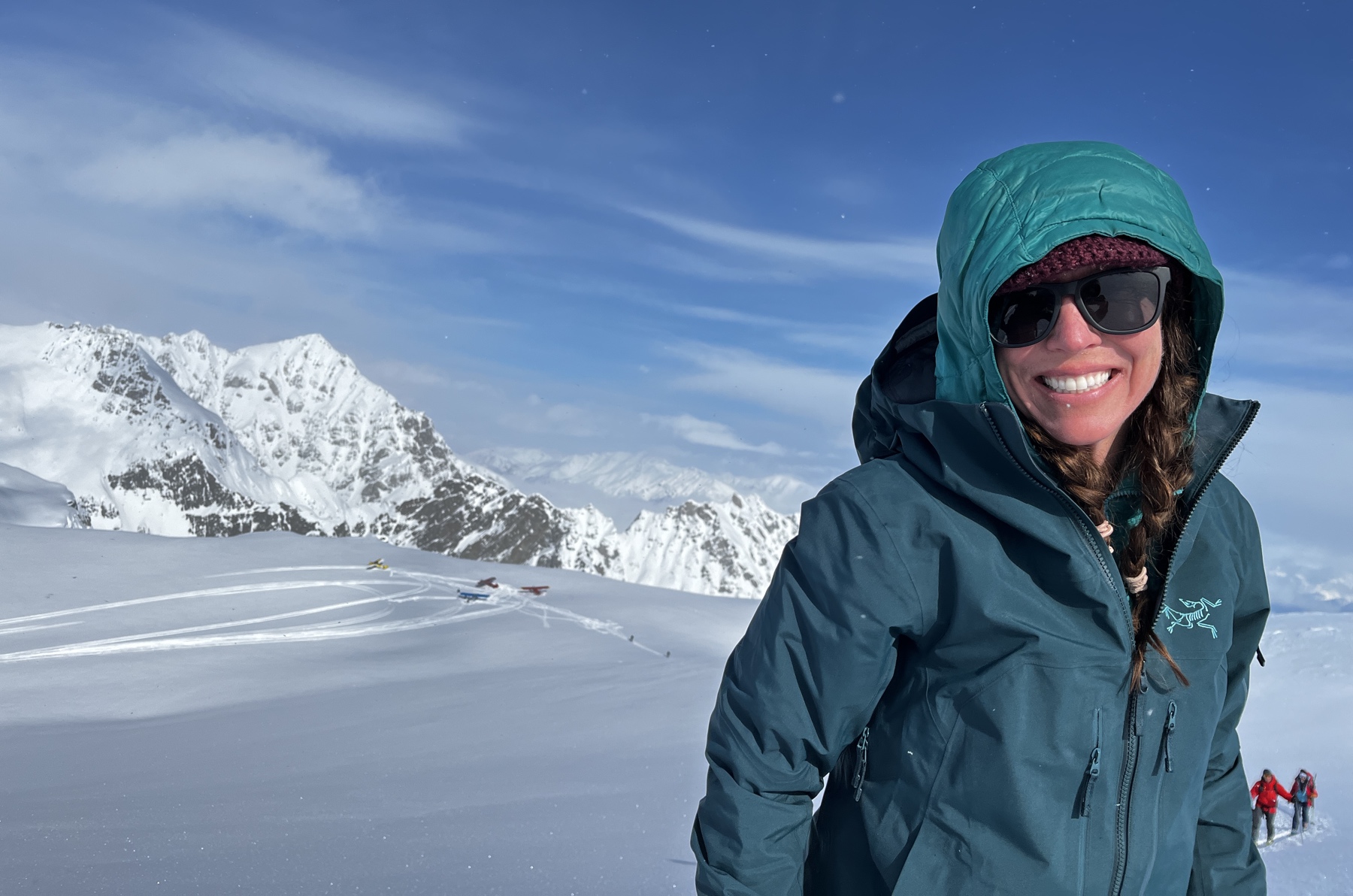
Cassidy Randall is a journalist and author whose work explores the intersections of adventure, history, and the natural world. Her new book, Thirty Below: The Harrowing and Heroic Story of the First All-Women’s Ascent of Denali, tells the gripping true story of six women who, in 1970, became the first all-female team to summit North America’s tallest mountain. It’s a meticulously researched, beautifully written account that brings long-overlooked voices to the forefront of mountaineering history.
As someone with a deep personal interest in Denali, I was especially excited to read this book and speak with Cassidy. In our conversation, we talk not only about the origins of Thirty Below and the individual women at the heart of the story, but also about Cassidy’s career as a journalist— how she got started, the path she’s carved through the world of longform storytelling, and how she approaches writing with such clarity, depth, and purpose. She also shares insights into her research process, the challenge of shaping complex narratives, and the broader importance of telling stories that have too often been overlooked or dismissed.
Whether or not you’ve ever set foot on a glacier, Thirty Below offers a deep dive into universal themes— resilience, purpose, and the human desire to explore. It’s a story about ambition and endurance, but also about complexity, contradiction, and the ways women have long carved space for themselves in places that often excluded them. Cassidy brings these histories to life with nuance and empathy, honoring the individuality of each woman while raising timeless questions about legacy, belonging, and what drives us to push beyond our limits.
Thanks to Cassidy for writing the book and for taking the time to chat. I hope you enjoy.
—
Photos courtesy of Cassidy Randall
LISTEN & DOWNLOAD:
Apple Podcasts
Spotify
… or wherever you get your podcasts!
—
RESOURCES:
Topics Discussed:
- 2:06 – Intro, how did Cassidy get into Denali?
- 8:28 – Getting to know Grace
- 13:08 – Landscape of women in climbing
- 18:16 – Margaret and her journey with multiple sclerosis
- 22:39 – Why do people climb mountains?
- 25:38 – Grace at 88, any discontent?
- 28:08 – Ed on his experience climbing Denali
- 31:02 – The process of climbing
- 37:39 – Adventure for the sake of adventure
- 42:23 – Writing advice on structure
- 45:41 – Source change
- 47:07 – Book writing compared with magazine work
- 50:36 – Early creativity threads
- 53:28 – Shifts in the writing industry
- 55:24 – What is journalism’s role anymore?
- 1:00:17 – It’s alive! (The content we’re consuming.)
- 1:01:19 – Denali or McKinley?
- 1:04:37 – Writer recs
- 1:08:03 – Pro tips on being a writer
- 1:10:17 – Wrapping it up
Information Referenced:
- Cassidy Randall
- Cassidy’s Substack: The Wilder Path
- Thirty Below: The Harrowing and Heroic Story of the First All-Women’s Ascent of Denali
- Two books that do Denali justice, according to Ed. Club Denali by Jon Krakauer (from Eiger Dreams) and then Cassidy’s book above.
- The 50th anniversary celebration of the first all-women climb up Denali from the NPS that Cassidy’s agent sent her asking, “Is this a story?”
- Grace Hoeman, one of the protagonists of Thirty Below
- The Denali Damsels
- The Wilcox expedition, the deadliest Denali expedition with winds up top estimated at 300 mph. (Not a typo, Cassidy says.)
- Wild by Cheryl Strayed
- Classic outdoor adventure books: The Wager and Into Thin Air
- Letter to Outside by writers wanting off the masthead.
- Jessica Yellin’s News Not Noise, journalist on Substack and Instagram that Cassidy loves.
- Writer recs: John Branch at the New York Times, Kevin Fedarko and the Emerald Mile, Caroline Van Hemert and The Sun Is A Compass, Tom Robbins, Kevin Barry and The Heart in Winter, Maggie Shipstead
- John Branch on M&P
Enjoy this episode? Then you might like these too:
- Hampton Sides Returns: The Wild and Tragic Tale of Captain James Cook
- Kami Bakken – How to Build a Life and Career in the West’s Wide-Open Spaces
- Sandy Colhoun – Building Leaders Through Outdoor Education
- Mike DeHoff – Exploring the Colorado River’s Reemerging Rapids
- Pete McBride Returns – Exploring & Documenting His Backyard River
- Scott Hulet: Reading + Writing + Surfing + Fishing + Traveling
- Jenna Pollard – Timber Framing, Organic Farming, Community, and Purpose
- John Vaillant – A Riveting Exploration of Fire
Visit the podcast page for a full, searchable list of episodes
Sara Domek – The Science and Story of Wyoming’s Wildlife Migration
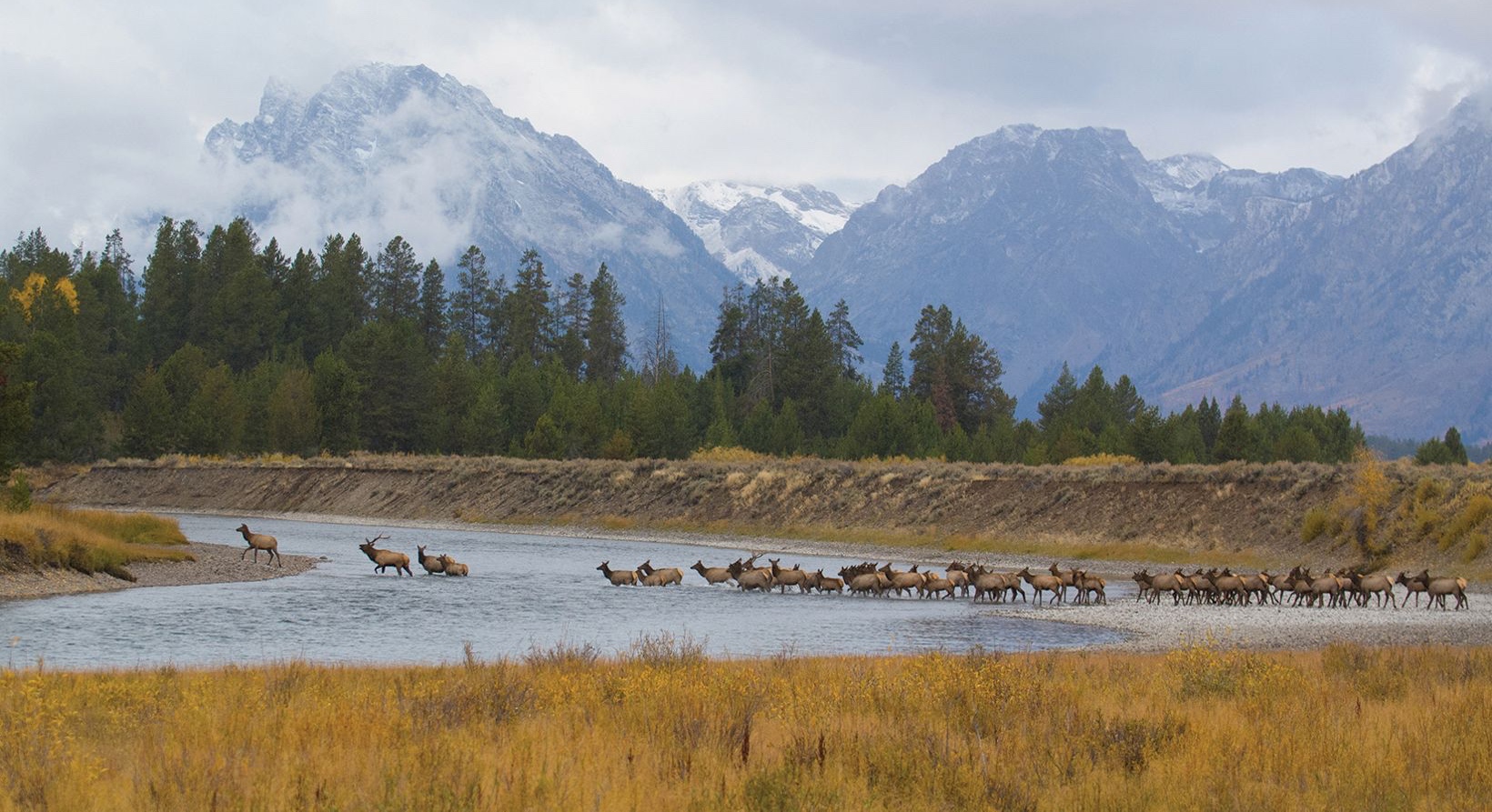
Sara Domek is Wyoming’s Migration Program Director for The Nature Conservancy. Sara grew up in the small town of Kemmerer and later moved to Pinedale, giving her a rare, firsthand perspective on Wyoming’s working landscapes— both from a natural resources and a conservation standpoint. Her upbringing, paired with years of experience working in nonprofits, agencies, and boots-on-the-ground conservation, makes her uniquely suited to lead TNC’s efforts to protect Wyoming’s world-renowned wildlife migrations.
If you’ve spent any time driving through Wyoming, you’ve probably cruised past some of the most important migration corridors in North America—maybe without even realizing it. Sara and her team are working to keep those landscapes permeable, helping mule deer, pronghorn, elk, and other species continue the seasonal journeys they’ve been making for thousands of years. We talk about the science behind migration, how seemingly small barriers like fences can create big challenges for wildlife, and how collaborative conservation— between landowners, agencies, and nonprofits— can create real, lasting wins.
Sara also shares some fascinating details about Wyoming’s longest mule deer migration, the importance of building trust with local communities, why cheatgrass is a bigger villain than it looks, and how carefully designed wildlife crossings can benefit both animals and people. We also get into her favorite books, why she’s hopeful about the future, and, once again, the simple but powerful idea that success in conservation often comes down to strong relationships.
This is a thoughtful and inspiring conversation with someone who truly embodies the spirit of collaborative, community-driven conservation. I hope you enjoy!
Header photo courtesy of TNC and by Scott Copeland, headshot by Sara Domek
LISTEN & DOWNLOAD:
Apple Podcasts
Spotify
…or wherever you get your podcasts!
EPISODE PARTNER:
This episode is brought to you in partnership with the Colorado chapter of The Nature Conservancy and TNC chapters throughout the Western United States. Guided by science and grounded by decades of collaborative partnerships, The Nature Conservancy has a long-standing legacy of achieving lasting results to create a world where nature and people thrive.
During the last week of every month throughout 2025, Mountain & Prairie will be delving into conversations with a wide range of The Nature Conservancy’s leaders, partners, collaborators, and stakeholders, highlighting the myriad of conservation challenges, opportunities, and solutions here in the American West and beyond. You can access all of the episodes here.
To learn more about The Nature Conservancy’s impactful work in the West and around the world, visit www.nature.org
RESOURCES:
Topics Discussed:
- 2:50 – Intro, growing up in Wyoming, and valuing natural resources
- 6:09 – Pinedale and the Wind Rivers
- 7:15 – Plan after high school
- 10:37 – Finding TNC
- 14:16 – Sara describes her job
- 17:21 – Mule deer and pronghorn migration corridors
- 21:57 – Fencing and migration
- 26:25 – Getting the word out about fencing
- 29:27 – Migration primer: distance, predators, and collisions
- 35:54 – Valley of the warm winds
- 42:37 – RCPP programs
- 45:27 – Cheatgrass 101
- 48:54 – Important partners
- 51:08 – Prioritizing projects
- 54:40 – What Sara’s looking forward to
- 57:57 – Where to learn more
- 1:00:22 – Book recs
- 1:03:04 – Parting words
Information Referenced:
- Rusty Bell and Justin Loyka on M&P talking about the coal industry
- Youth Conservation Corps NPS program
- National Bighorn Sheep Center in Dubois, Wyoming
- Wyoming Migration Initiative
- Red Desert to Hoback mule deer migration, the world’s longest mule deer migration
- Wild Migrations: Atlas of Wyoming’s Ungulates
- Dubois = the Valley of the Warm Winds. Though Ed and Sara don’t tend to always agree with the “warm” part.
- Big Game Partnership, which supports migration work in Wyoming, Idaho and Montana
- Some of Justin Loyka’s work on blending migration with industry in a way that’s safer for migrating ungulates.
- Sublette County Conservation District, which focuses on wildlife-friendly fence work
- Wyoming Sagebrush Sea’s native plants work related to maintaining habitat for wildlife, including traveling ungulates
- Yellowstone migration photos by Joe Riis
- TNC’s “Impacts of Roadways on Wildlife” report from 2022, a general overview
- Wyoming’s Department of Transportation animal collision cost estimates. Human fatality costs for collisions with moose is over $13,000.
- WY Game and Fish Department migration information
- Wyldlife Fund and Greater Yellowstone Coalition and the Dubois crossings project
- A series on wildlife crossings in Montana
- Absaroka Fence Initiative
- An example of an RCPP program application. And this is just the how-to.
- Cheatgrass
- TNC and the University of Wyoming’s fencing prioritization tool
- Book recs: The Solace of Open Spaces, Ordinary Wolves
Enjoy this episode? Then you might like these too:
- Rob Addington – A Deep Dive into Western Wildfires and Forest Health
- Emilene Ostlind – Storytelling for the New West
- Matt Cahill – A Deep Dive into the Sagebrush Sea
- Chris Pague – Stories, Science, and the Southern High Plains
- Douglas Brinkley – Exploring the Past to Find Inspiration for the Future
- John Vaillant – A Riveting Exploration of Fire
Visit the podcast page for a full list of episodes where you can filter episodes by topic and guests’ vocations.
Cody Wellema – After the Fire, Before What’s Next
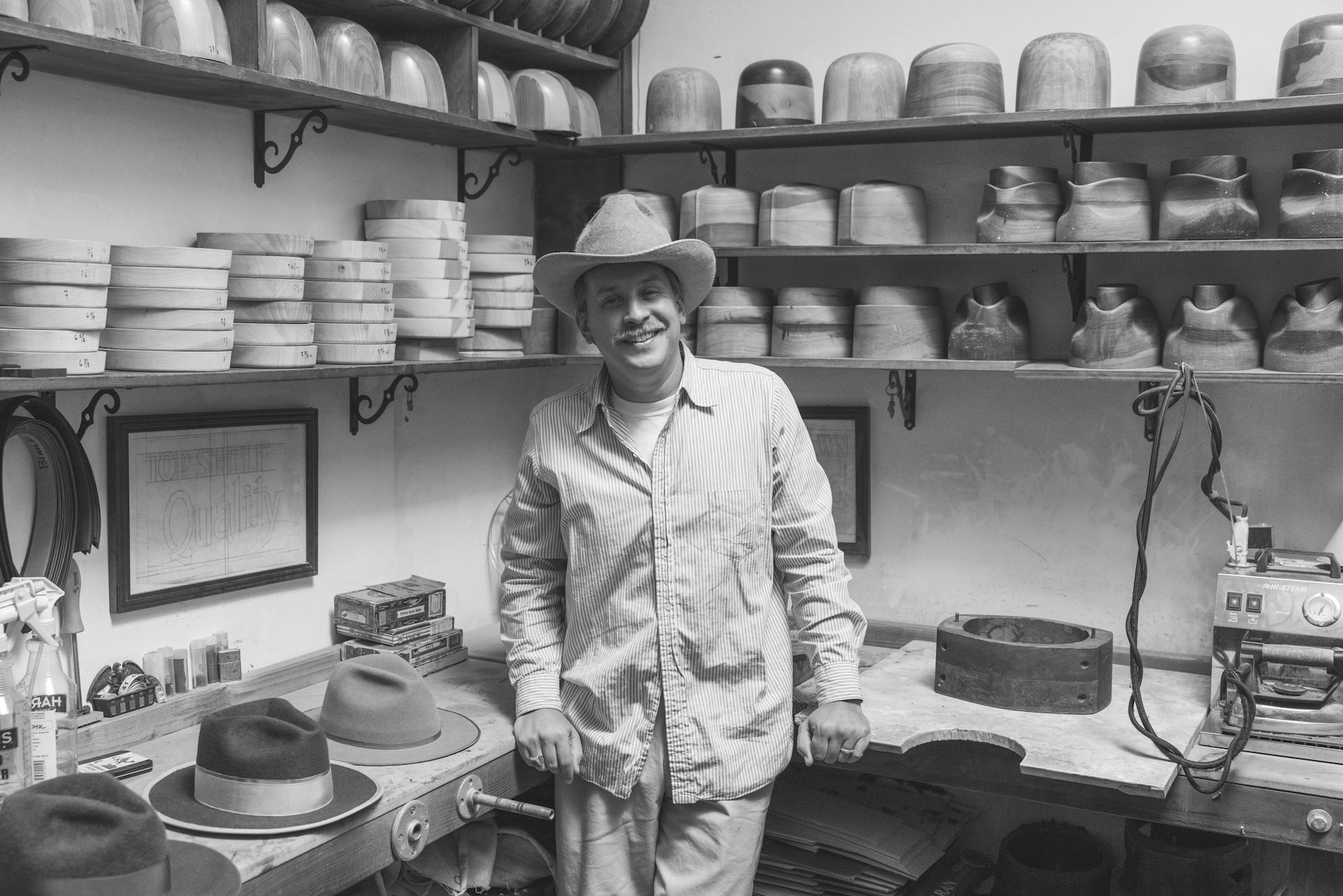
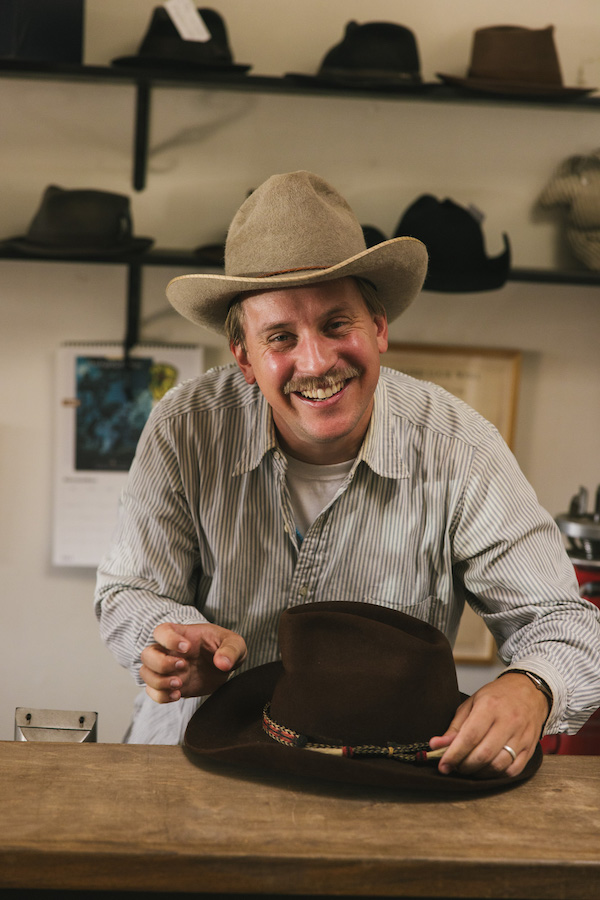
Cody Wellema is a master hatmaker and the founder of Wellema Hat Co., a highly regarded, California-based custom hat business. For over a decade, Cody built a reputation as one of the country’s premier craftspeople in the art of traditional hatmaking, creating heirloom-quality hats by hand, using vintage tools and techniques that harken back to a slower, more intentional era. His work has been worn by artists, ranchers, musicians, and everyday folks alike, and his shop became not only a destination for finely made hats, but a gathering place rooted in community and craft.
On January 8th of this year, Cody and his family lost their Altadena storefront and workspace in the Eaton Canyon Fire, one of the many devastating fires that destroyed a large part of the greater Los Angeles area in early 2025. In the aftermath, he has navigated an overwhelming combination of grief, logistics, and uncertainty—yet throughout it all, he has maintained a sense of gratitude, humility, and forward-looking optimism that is as rare as it is inspiring. As he puts it, the fire forced a kind of reset—one that, while painful, has given him a blank page and the opportunity to reimagine the next chapter of his creative life.
In this conversation, we talk about Cody’s early entrepreneurial spirit, his deep appreciation for vintage craftsmanship, and how he taught himself the trade by deconstructing old hats and learning from the past. We also explore the role of presence in parenting, the importance of community, and the creative possibilities that can emerge when the old path is unexpectedly cleared. Cody’s story is one of resilience, creativity, and deep care– for people, for his craft, and for doing things the right way.
I was so inspired by Cody’s optimism and gratitude, and I know you will be too. Be sure to check out the episode notes for links to everything we discussed, including a GoFundMe page that was set up to support Cody and his family during this unexpected time of chaos.
Thanks for listening, I hope you enjoy!
—
Photos by Farhad Samari
LISTEN & DOWNLOAD:
Apple Podcasts
Spotify
… or wherever you get your podcasts!
—
RESOURCES:
Topics Discussed:
- 3:30 – Intro, how’s Cody doing?
- 7:04 – His default wiring is optimism
- 8:49 – Setting an example for the kids
- 10:52 – Roots
- 12:41 – Cody’s evolution
- 17:33 – Heading out on his own
- 19:31 – Getting to hats
- 25:50 – Taking apart old hats
- 28:33 – Monetization
- 30:59 – Hindsight and going all in
- 34:41 – The fear of diving in
- 38:33 – Time to define
- 41:14 – More than just hats
- 46:29 – Blessing in the bad
- 51:59 – Moving on
- 56:00 – Cody’s first time voicing his new idea
- 1:04:59 – Taking the compliments
- 1:08:56 – Figuring out a blank slate
- 1:13:00 – Inspiration recs
- 1:18:16 – Final words of wisdom
Information Referenced:
- Wellema Hat Co
- GoFundMe for the Wellemas
- Cody on Instagram
- NY Times article about Wellema Hat Co. and the Eaton Fire
- Cool video about Cody
- Teal Blake, rancher and creator. One of Cody’s hat-making inspirations.
- Havstad Hat Company
- Duckworth, born in Montana.
- M&P episode with woodworker Geoffrey Keating
- Cody’s profiles of other hat makers.
- Cody’s reading recs: Lonesome Dove series, William Boyd, Rick Rubin’s The Creative Act, Picasso’s War.
Enjoy this episode? Then you might like these too:
- Logan Maxwell Hagege Returns – On Taking Action & Finding Balance
- Beau Alexander – Paying Homage to the Past, While Focusing on the Future
- Christy Sing Robertson – On Grit, Hard Work, & Going All In
- Anna Borgman – Obsession, Curiosity, and Purpose-Driven Work
- Jenna Pollard – Timber Framing, Organic Farming, Community, and Purpose
- Ivan McClellan Returns – From Behind the Lens to Center of the Arena
- Jesse Griffiths – Humility, Curiosity, and Creative Cuisine
Visit the podcast page for a full, searchable list of episodes
Live from SXSW – Farmer-Founded Brands Will Save American Fashion
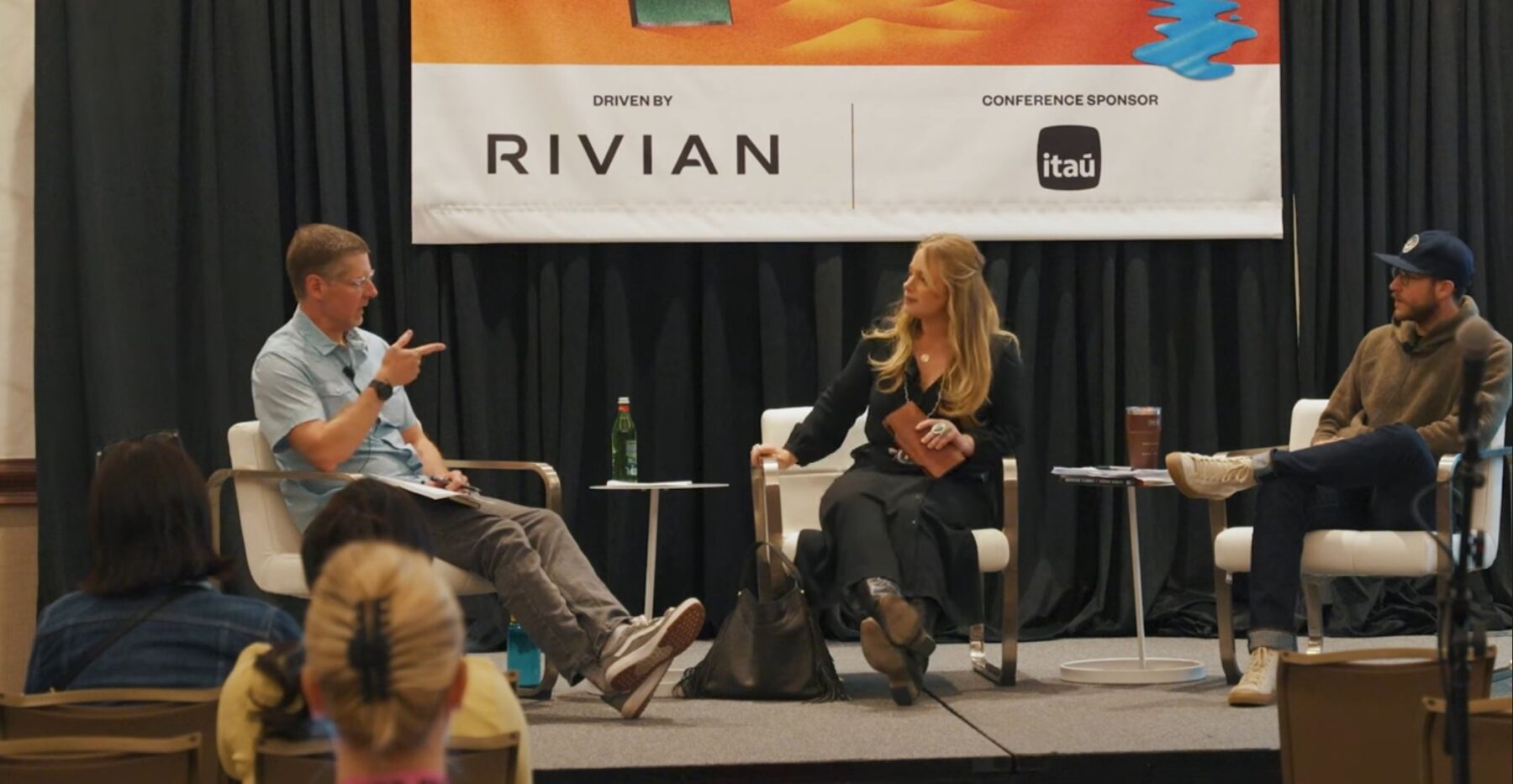
This is a special live episode recorded this past March at SXSW in Austin, Texas, and it features a conversation I had the honor of moderating with two powerhouse guests: Cate Havstad-Casad of Range Revolution and Daniel Mouw of Duckworth.
The title of the panel was Farmer-Founded Brands Will Save American Fashion. At first glance, that might sound like a bold claim, but these two are actually doing the work to make it real. Cate is a designer, hatmaker, and regenerative rancher whose company Range Revolution is turning discarded cattle hides into regenerative high-end leather goods. Daniel is the president of Duckworth, a Montana-based wool company that’s rebuilding the American supply chain– one sheep, sweater, and ranch at a time.
Together, we dug into some big questions: What happened to American-made textiles? Why are most of us walking around wearing plastic? And what would it look like to rebuild rural economies from the ground up, using natural fibers like leather and wool, raised and processed responsibly, here in the United States? It might sound like we’re talking fashion and manufacturing trends—but this is really a conversation about values, ecosystems, and the future of rural America.
Cate and Daniel are funny, deeply thoughtful, and grounded in the realities of both agriculture and business. They bring hard-earned optimism to a conversation that too often gets bogged down in doom and gloom. And they make a compelling case for why fashion can be a vehicle for stewardship, beauty, and connection to the land. We also had a sharp, engaged audience that asked some truly insightful questions– you’ll hear a few of those toward the end.
Thanks to Cate and Daniel for the amazing conversation, thanks to SXSW for inviting us, and thank you for listening.
LISTEN & DOWNLOAD:
Apple Podcasts
Spotify
… or wherever you get your podcasts!
—
RESOURCES:
Topics Discussed:
- 2:10 – Introductions
- 6:35 – A history lesson in US fiber production
- 10:22 – Current supply chain challenges facing producers
- 16:17 – Why natural fibers are superior to synthetics
- 19:17 – The true cost of synthetics and fast fashion
- 23:17 – How Range Revolution and Duckworth are restoring economic power to ag producers
- 27:36 – The unique role of for-profit businesses in solving these challenges
- 33:13 – Positivity as a strategic business decision
- 37:09 – How do you scale this regenerative fashion movement?
- 40:32 – Embracing natural characteristics in design
- 42:06 – How to capture attention in today’s information age
- 46:13 – What would an ideal community support system look like?
- 50:26 – Fabric frequencies!
- 52:53 – How to convert standard retail buyers into regenerative buyers
- 56:40 – Any collaboration with the EU fashion industry?
Information Referenced:
- SXSW
- Range Revolution
- Casad Family Farms
- Duckworth
- Maverick Ski Hill
- Woolrich
- American Flannel: How a Band of Entrepreneurs Are Bringing the Art and Business of Making Clothes Back Home by Steven Kurutz
- Externalities
- Women in Ranching
- Veja shoes
- American Wool Council
- Jenessa Leone
- Fibershed
- Another Tomorrow
- Shop Zero
Enjoy this episode? Then you might like these too:
- Cate Havstad-Casad, Part 2 – Building Businesses for the Greater Good
- George Hodgin Returns – On Risk-Taking, Leadership, and the Future of Cannabis
- Nick Offerman – Empathy, Nuance, & Good Hard Work
- Kristine Tompkins – Nothing to Lose
- Kelsey Molloy & Angel DeVries – Fortifying Grasslands and Communities on the Northern Great Plains
- Jesse Smith – A Regenerative Approach to Land and Life
- Ivan McClellan Returns – From Behind the Lens to Center of the Arena
- Elliot Ross: Where Landscape, Justice, and Storytelling Meet
Visit the podcast page for a full, searchable list of episodes
Elliot Ross: Where Landscape, Justice, and Storytelling Meet
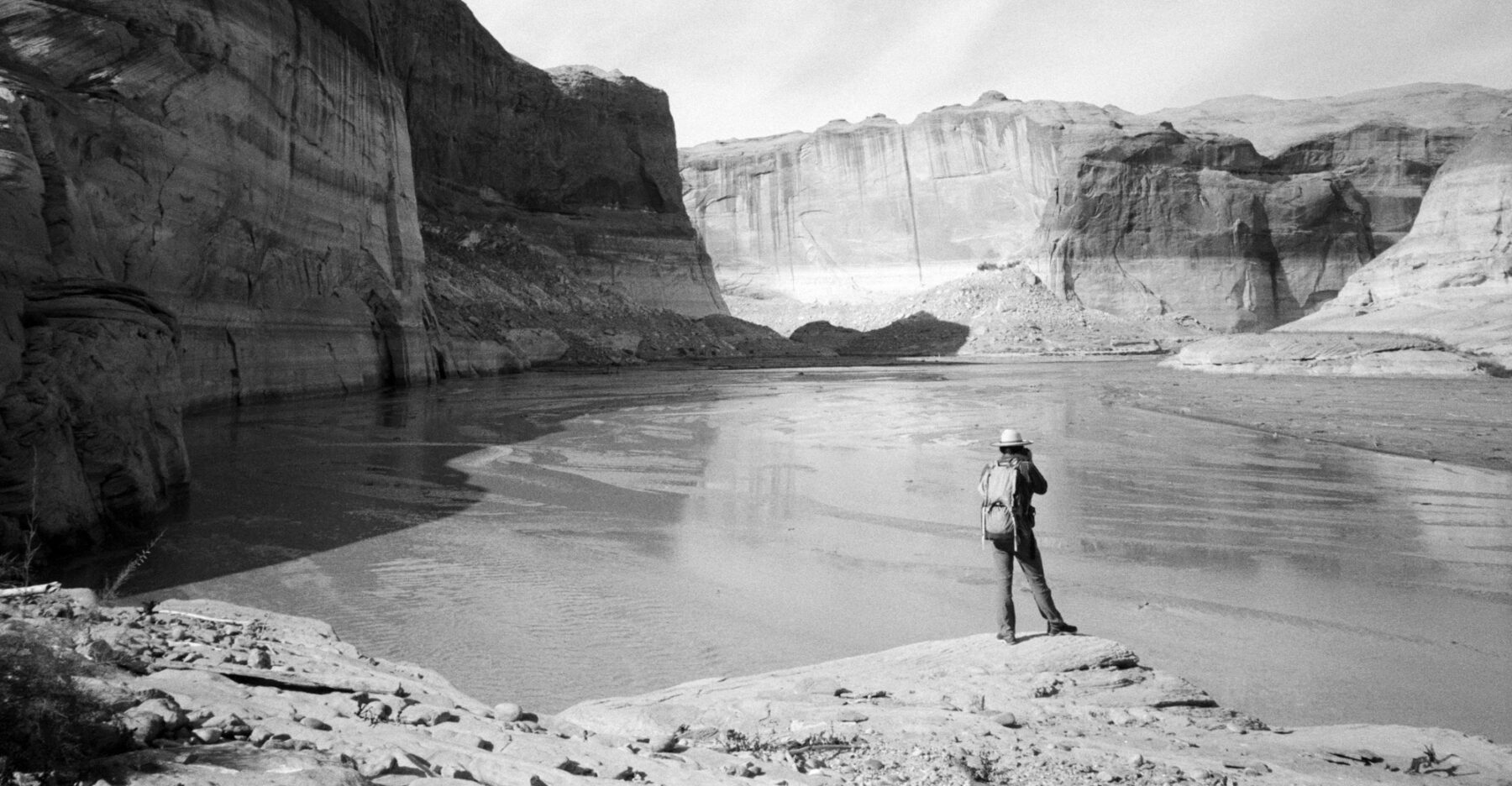
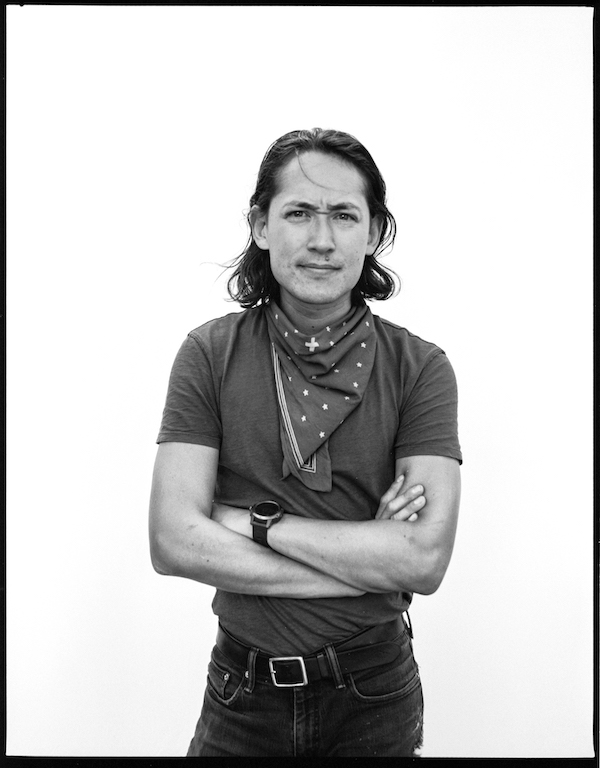
Elliot Ross is a photographer and writer whose work focuses on the intersection of landscape, identity, and justice in the American West. His images have appeared in Time, National Geographic, and The New York Times, and he’s known for deeply researched, long-term projects that combine striking visual storytelling with a journalist’s rigor. Whether he’s documenting water access on the Navajo Nation or tracing the contours of Glen Canyon as it reemerges, Elliot brings a rare mix of artistry, empathy, and precision to every assignment.
Born in Taiwan and raised on the eastern plains of Colorado, Elliot grew up between cultures and landscapes—an experience that shaped both his worldview and his creative path. He picked up a camera early, inspired by his grandmother’s family albums, and later earned a full-ride to the Savannah College of Art and Design. After college, he cut his teeth in New York City, assisting some of the most high-profile portrait and fashion photographers in the industry. All the while, he was quietly dreaming about building a career on his own terms—one rooted in storytelling, purpose, and the landscapes he still called home.
In this episode, we talk about the early experiences that shaped his artistic voice, the evolution of his career, and how he’s learned to navigate the demands of both commercial and documentary work. Elliot shares the backstory of his recent Time magazine cover story on water equity in the West, a project that involved years of reporting, deep community ties, and even a return to the classroom. We also discuss his thoughts on creative endurance, working across political divides, and the role of photography in fostering empathy and connection.
I’d encourage you to visit Elliot’s website and dig deeper into all of his work, especially his project A Question of Balance, which became the Time magazine feature. You can find links to everything in the episode notes. Thanks to Elliot for the inspiring and timely conversation, and thank you for listening.
Photos courtesy of Elliot: Header by Max Lowe, headshot by Miguel DeLeon
LISTEN & DOWNLOAD:
Apple Podcasts
Spotify
…or wherever you get your podcasts!
EPISODE PARTNER:
This episode is brought to you in partnership with the Mighty Arrow Family Foundation.
To whom much is given, much is expected. This value guides the philosophy behind the Mighty Arrow Family Foundation today.
Committed to its cause and infused with an entrepreneurial spirit, Mighty Arrow aims to invest in solutions that take action on climate change to build a more vibrant future, repair relationships from farm to market to table, heal our connection to the lands and waters we call home, and demand a more just and equitable society.
To learn more about Mighty Arrow’s forward-thinking, optimistic, and visionary work here in the American West and beyond, please visit www.mightyarrow.org.
RESOURCES:
Topics Discussed:
- 3:05 – Elliot growing up in Taipei and how his parents met
- 6:00 – Few but vivid memories of Taipei
- 7:09 – The culture shock of moving to eastern Colorado
- 8:25 – How photography came into Elliot’s life
- 10:29 – Reading influences
- 13:16 – Travel bug
- 16:22 – Savannah College of Art and Design
- 18:07 – The Asian parents pressure
- 19:49 – Credit to high school art teachers
- 20:54 – Figuring out photography
- 27:47 – No wavering
- 29:54 – Moving into independent business
- 33:29 – Pitching Carhartt
- 37:03 – Nat Geo ups and downs
- 42:10 – Near-death experiences
- 45:44 – Approaching long-term projects
- 49:35 – Pulling on threads
- 51:45 – Humans and landscapes
- 56:35 – Curiosity as the most authentic de-escalator
- 58:05 – Writing and shooting and doing it all
- 1:02:45 – Response to the Time story
- 1:07:35 – A tale of two places
- 1:13:45 – Using water in the West
- 1:16:35 – The Desiderata creed
- 1:17:05 – Book recs
- 1:23:05 – Parting words
Information Referenced:
- Elliot Ross
- Time Magazine piece
- My Side of the Mountain by Jean Craighead George
- Robert Adams, American West photographer
- The “new topographics” movement. Elliot defines it as a revisionist way of looking at landscape. Instead of beauty and splendor, there’s more analysis of the changes that humans brought upon a place.
- Annie Leibovitz, a portrait photographer Elliot interned for.
- Mark Seliger, Elliot was his Second Assistant.
- Philip-Lorca diCorcia, a portrait photographer Elliot didn’t intern for, but stalked until he said no.
- Martin Schoeller, another portrait photographer Elliot worked for.
- Elliot’s The Reckoning Days
- Robert Clark, Nat Geo features photographer
- American Backyard, Elliot’s examination of the U.S./Mexico border
- An interview with Elliot about his experience talking with John Ladd, amongst other things, in Deseret News.
- E.W. Scripps environmental reporting fellowships and internships
- A Question of Balance, another project of Elliot’s
- Elliot’s Geography of Hope Exhibition
- The Glen Canyon Institute
- The Desiderata, Elliot’s daily creed.
- Book recs: John Steinbeck’s East of Eden and Grapes of Wrath; Cormac McCarthy’s (when Elliot’s feeling dark) Blood Meridian and All The Pretty Horses: Border Trilogy 1; Craig Childs’ The Secret Knowledge of Water and House of Rain
Enjoy this episode? Then you might like these too:
- Pete McBride Returns – Exploring & Documenting His Backyard River
- Mike DeHoff – Exploring the Colorado River’s Reemerging Rapids
- Kristine Tompkins – Nothing to Lose
- Mauricia Baca – An Empathetic Approach to Nevada’s Conservation Challenges
- Joe Schobert – From NFL Pro Bowler to Western Conservation Advocate
- Jesse Smith – A Regenerative Approach to Land and Life
Visit the podcast page for a full list of episodes where you can filter episodes by topic and guests’ vocations.
Aaron Citron: Crafting Conservation Policy in a Changing West
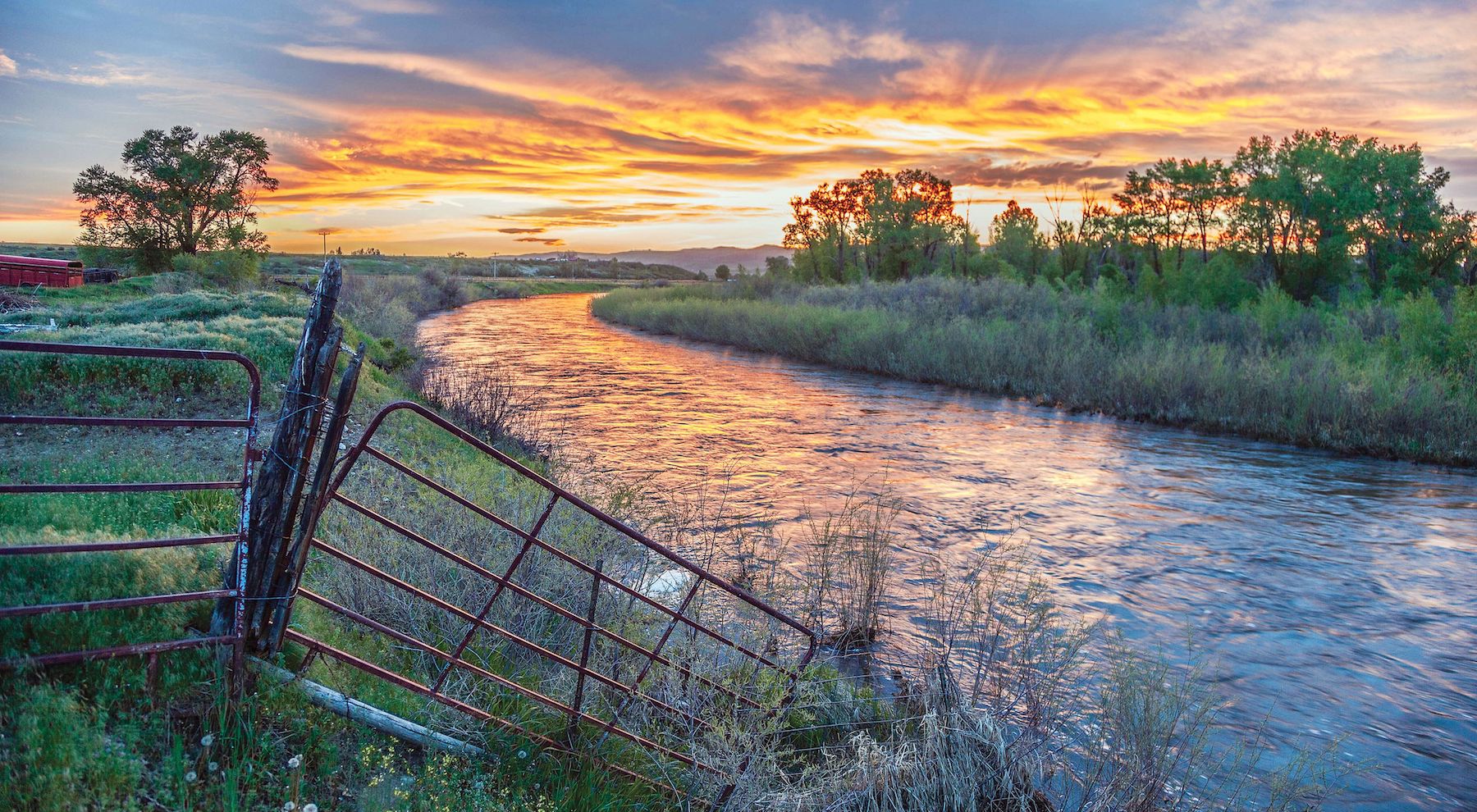
Aaron Citron is the Associate Director of External Affairs at The Nature Conservancy, where he leads state-level policy engagement across Colorado. His work spans a wide array of conservation priorities, including water management, healthy forests, renewable energy siting, and partnerships with private landowners and tribal nations. Aaron plays a key role in bridging on-the-ground conservation efforts with the legislative and regulatory frameworks that support them. He also helps shape TNC’s strategy around climate and energy policy, working to ensure a rapid but responsible transition to renewable infrastructure.
Aaron grew up in Tucson, Arizona, where early exposure to the desert landscape—and its vital, limited water resources—sparked a lifelong interest in the natural world. After studying history and political science at Emory University, he returned west for law school at the University of Arizona, focusing on water and land use law. His career has taken him from local land trusts to national NGOs like Environmental Defense Fund, always at the intersection of policy, place, and practical impact. Along the way, he’s built a reputation for thoughtful, collaborative work that reflects both his legal background and his deep connection to the West.
In our conversation, Aaron shares a detailed look at how conservation policy gets made—from coalition-building and legislative drafting to navigating complex stakeholder relationships. We discuss examples like Colorado’s response to Clean Water Act rollbacks and new tools to support in-stream flows on the Yampa River. He talks about the balance between urgency and patience, the importance of trust in long-term conservation, and how calm, clearheaded engagement can shape better outcomes. It’s a compelling look at the behind-the-scenes work that makes public-facing conservation efforts possible.
Be sure the check out the episode notes for a full list of everything we discussed and links to everything. Thanks to Aaron for this conversation and thank you for listening. Enjoy!
Photos courtesy of The Nature Conservancy, Header photo: Sunset on the Yampa River at Carpenter Ranch in Northwest Colorado. © John Fielder
LISTEN & DOWNLOAD:
Apple Podcasts
Spotify
…or wherever you get your podcasts!
EPISODE PARTNER:
This episode is brought to you in partnership with the Colorado chapter of The Nature Conservancy and TNC chapters throughout the Western United States. Guided by science and grounded by decades of collaborative partnerships, The Nature Conservancy has a long-standing legacy of achieving lasting results to create a world where nature and people thrive.
During the last week of every month throughout 2025, Mountain & Prairie will be delving into conversations with a wide range of The Nature Conservancy’s leaders, partners, collaborators, and stakeholders, highlighting the myriad of conservation challenges, opportunities, and solutions here in the American West and beyond. You can access all of the episodes here.
To learn more about The Nature Conservancy’s impactful work in the West and around the world, visit www.nature.org
RESOURCES:
Topics Discussed:
- 3:15 – Starting at the beginning, growing up in Tucson
- 7:42 – Underrated Arizona
- 11:23 – From environmental history to law school
- 15:22 – After law school, including a TNC internship
- 18:11 – Landing at the Arizona Land and Water Trust
- 21:24 – Path to TNC
- 24:06 – Aaron’s role at TNC
- 27:42 – Clean Water Act protection project
- 33:40 – Getting the information to the people
- 35:29 – Yampa River Fund
- 40:39 – What makes someone good at policy work?
- 46:11 – The power of relationships
- 49:00 – Federal versus state policy focuses
- 53:40 – Remaining calm
- 57:21 – Book recs
- 1:01:53 – Parting thoughts
Information Referenced:
- Aaron Citron – Associate Director of External Affairs at The Nature Conservancy
- TNC Colorado’s 2024 Year In Review
- Dan Stellar with TNC on Mountain & Prairie
- Arizona Land and Water Trust in Tucson. Aaron’s first role out of law school.
- Peter Gower and Chris Menges from TNC on M&P about the energy transition.
- Discussion about the Yampa River Fund on M&P with TNC’s Diana Lane and Aaron Derwingson
- Book recs: The Emerald Mile, The Fool’s Progress by Edward Abbey
- Doug Peacock on Mountain & Prairie, talking about grizzlies and burying Ed Abbey
Enjoy this episode? Then you might like these too:
- Chris Pague – Stories, Science, and the Southern High Plains
- Betsy Gaines Quammen Returns – Myths, Curiosity, and Human Connection (Live at the Old Salt Festival)
- Matt Cahill – A Deep Dive into the Sagebrush Sea
- Mark Easter – Food, Soil, and Our Planet’s Future
- Douglas Brinkley – Exploring the Past to Find Inspiration for the Future
- The Partnership of Rangeland Trusts – 20 Years of Cooperation, Collaboration, and Conservation
- John Vaillant – A Riveting Exploration of Fire
Visit the podcast page for a full list of episodes where you can filter episodes by topic and guests’ vocations.
David Cronenwett – Lessons from Jiu-Jitsu, On and Off the Mats
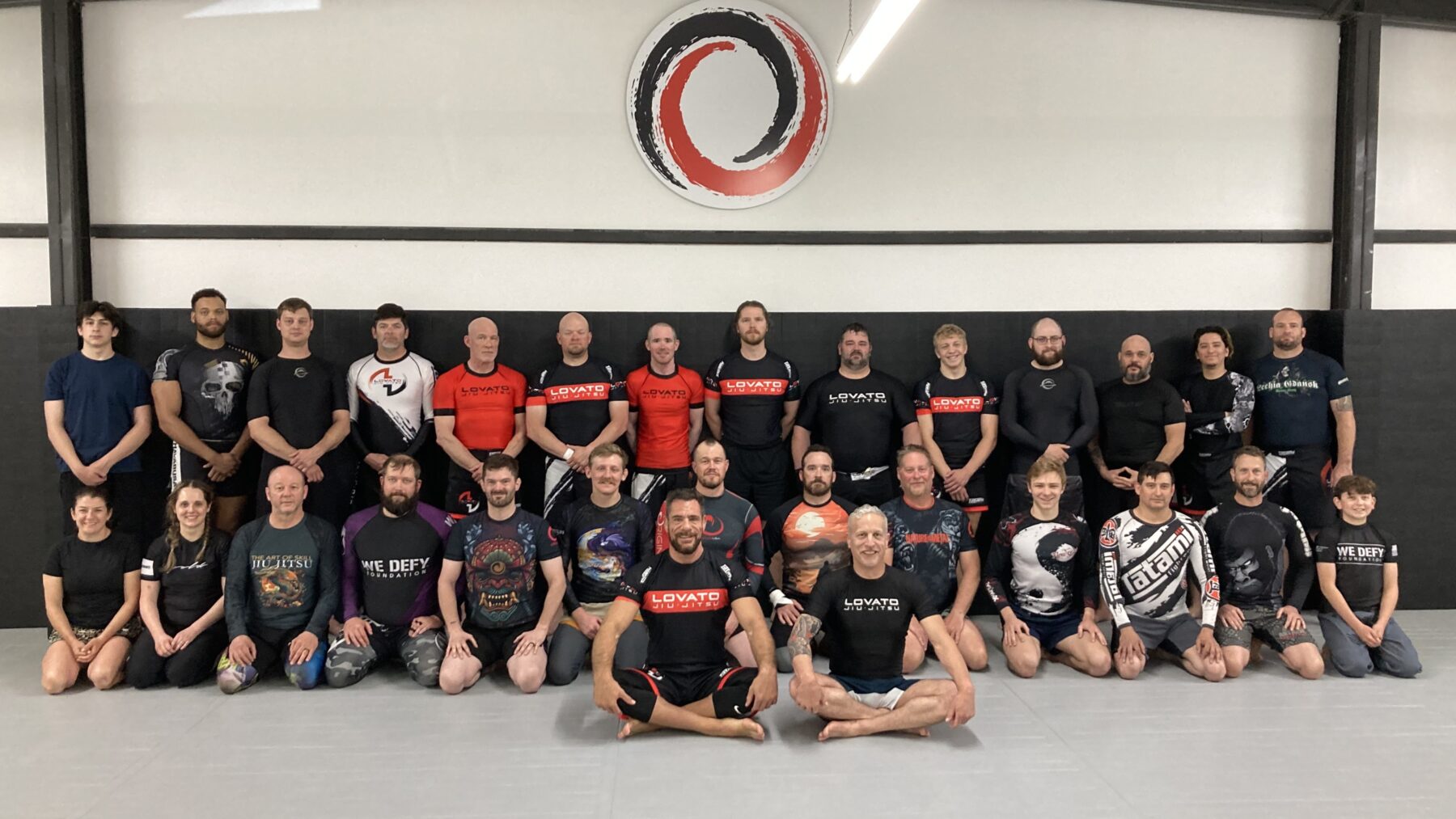
David Cronenwett is the owner of Helena Brazilian Jiu Jitsu and a third-degree black belt under American Jiu-Jitsu legend Rafael Lovato Jr. David started his Jiu-Jitsu journey in Seattle in 1996, back when finding a place to train was like stumbling upon a secret society. Over the years, he’s not only refined his own game but has shared this art with hundreds of students in Montana’s capital city since opening his academy in 2016.
But David’s path to Jiu-Jitsu wasn’t exactly a straight shot. He grew up in New Jersey, made his way west to study classical guitar at Cornish College of the Arts in Seattle right as the grunge scene was taking over, and eventually found himself in Montana, drawn by the wilderness and a deep-rooted need for something more. That “something more” turned out to be a mix of conservation work, backcountry living, and, of course, Jiu-Jitsu—an art that would come to define much of his life.
In this conversation, we go deep into the philosophy of Jiu-Jitsu: why it grabs certain people and won’t let go, how it humbles you, how it teaches you to remain calm under pressure, and how it can serve as a vehicle for self-improvement. But beyond that, we explore how Jiu-Jitsu teaches lessons that stretch far beyond the mats—lessons about patience, resilience, adaptability, and how to wisely face challenges in life. We also talk about the importance of culture in an academy, how a good training environment can shape people beyond the gym, and how the shared purpose and community of Jiu-Jitsu has a way of bringing together folks from all walks of life.
And for those of you who might be on the fence about trying Jiu-Jitsu, David has plenty to say about why it’s never too late to start and how it can change not just how you move, but how you see the world.
So whether you’re a seasoned grappler or just curious about what makes this martial art so addictive, there’s a lot to learn from this conversation. Enjoy!
—
Photos courtesy of David Cronenwett & Helena BJJ
LISTEN & DOWNLOAD:
Apple Podcasts
Spotify
… or wherever you get your podcasts!
—
RESOURCES:
Topics Discussed:
- 2:15 – Getting to know David
- 4:30 – Seattle to Montana
- 6:30 – And from music to conservation
- 7:45 – Early outdoor interests
- 10:00 – First Jiu-Jitsu memories
- 12:30 – Getting into Jiu-Jitsu
- 16:30 – What is it about Jiu-Jitsu?
- 21:00 – Community on the mat
- 26:45 – Importance of having new trainees
- 29:45 – Where the growth happens
- 31:30 – Maintaining culture
- 35:30 – Lessons from practicing and teaching
- 42:30 – Obsessive types
- 45:15 – Not for the bullies
- 47:30 – Maintaining the practice as life goes on
- 53:30 – Self-defense as an insurance policy
- 1:01:00 – What Jiu-Jitsu gives you
- 1:04:45 – Losing ego
- 1:08:45 – Peaks and valleys
- 1:12:30 – Not about the belts
- 1:14:45 – Book recs
- 1:21:30 – Thoughts on therapy
- 1:23:45 – Parting words
Information Referenced:
- David Cronenwett
- Helena Brazilian Jiu Jitsu
- Old Salt conservation with Hal Herring. A rare occurrence when Ed wasn’t talking to Hal about Jiu Jitsu at the festival.
- Meditations by Marcus Aurelius. David’s pro-tip is to pick it up, put it down and come back to it often.
- Musashi’s Book of Five Rings
- Origins of Jiu Jitsu
- Jocko Willink on self defense and the young man’s psyche.
- The Gift of Violence by Matt Thornton
- Bad Therapy. And a conversation with author Abigail Shrier on a podcast about the book.
- Tribe, which might be one of the most important written, according to Ed.
Enjoy this episode? Then you might like these too:
- Hal Herring Returns – Live at the Old Salt Festival
- George Hodgin Returns – On Risk-Taking, Leadership, and the Future of Cannabis
- Scott Hulet: Reading + Writing + Surfing + Fishing + Traveling
- Jason Gardner – A Life of Purpose & Service
- Iris Gardner – Living with Intention
- Walt Morgan – Helping People Discover Their Best Selves
- Nick Offerman – Empathy, Nuance, & Good Hard Work
- Joe Schobert – From NFL Pro Bowler to Western Conservation Advocate
- Jesse Smith – A Regenerative Approach to Land and Life
Visit the podcast page for a full, searchable list of episodes
Helen Augare Carlson & Dylan DesRosier – Land, Language, and Stewardship in the Blackfeet Nation
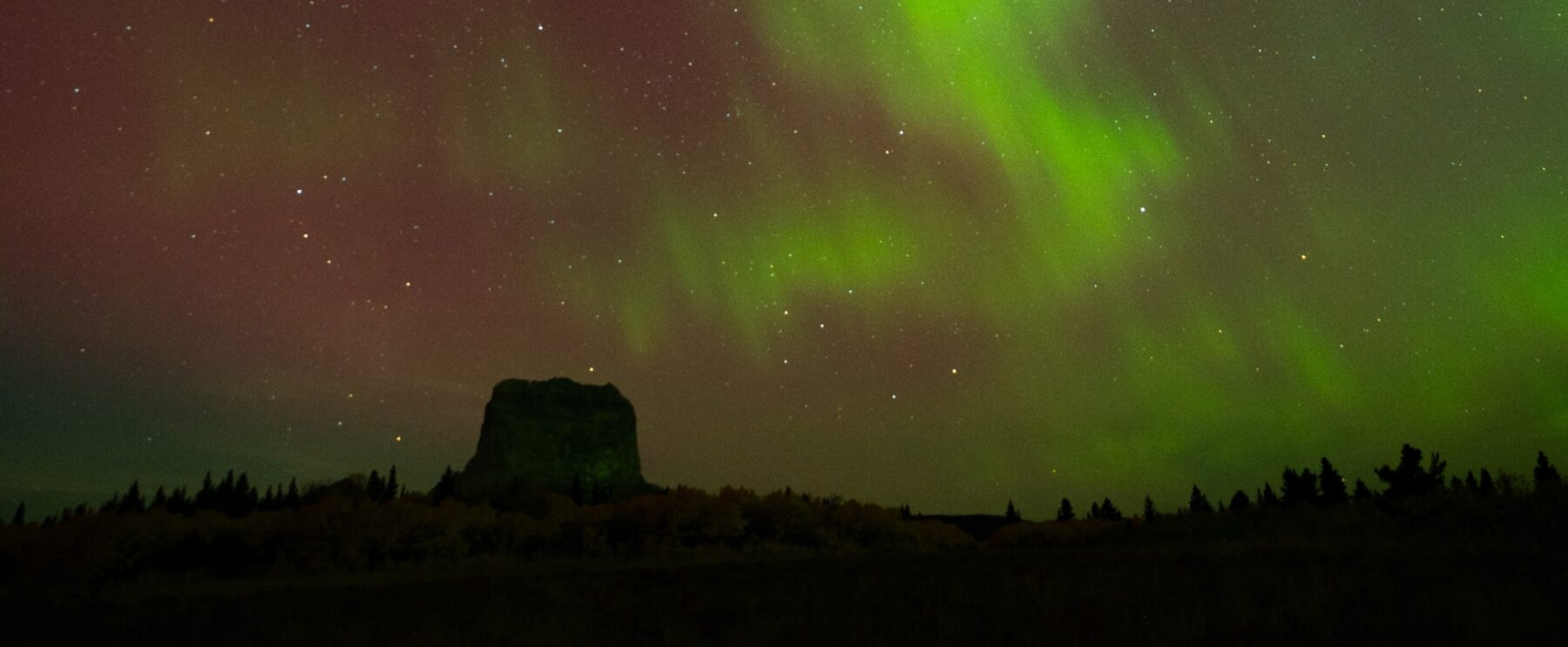
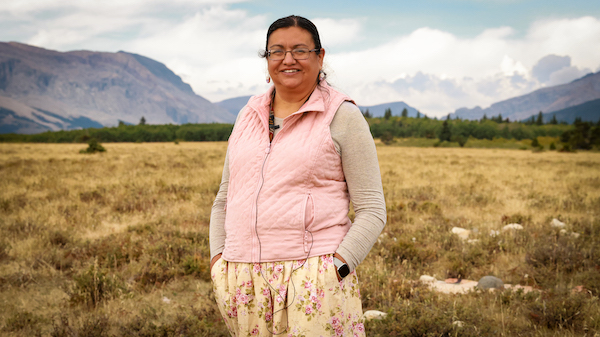
Helen Augare Carlson and Dylan DesRosier are leaders, community builders, and proud members of the Blackfeet Nation. Helen, the Chair of the Piikani Studies Division at Blackfeet Community College, has dedicated over two decades to education, cultural preservation, and building pathways for future generations. Dylan, the Blackfeet Program Manager with The Nature Conservancy, brings a wealth of experience in conservation work rooted in respect for Indigenous knowledge and long-term community collaboration. In addition to their official roles, they both wear many hats when it comes to serving their communities—mentoring youth, engaging in policy discussions, telling stories, and working on grassroots initiatives that strengthen cultural and environmental resilience.
In this episode, we explore the profound relationships between land, language, and stewardship. Helen shares the moving story behind her Blackfoot name, Dylan reflects on his time working in Glacier National Park and how it shaped his conservation approach, and we dig into the groundbreaking Chief Mountain Initiative—an effort that weaves together conservation, education, and cultural revitalization.
We also discuss the evolving role of conservation organizations, TNC’s comprehensive approach to supporting Blackfeet initiatives, the importance of holistic thinking, and why Indigenous leadership is crucial for the future of land stewardship. As usual, we wrap up with some incredible book recommendations that will deepen your understanding of these topics long after the episode ends.
This conversation is rich with wisdom, humor, and insight, and Helen and Dylan make quite a team, bringing their unique expertise and shared passion for their community to this important discussion. I’m so excited for you to hear it. So let’s dive in—here’s my conversation with Helen Augare Carlson and Dylan DesRosier.
Header photo by Dylan DesRosier, headshots courtesy of Dylan and Helen
LISTEN & DOWNLOAD:
Apple Podcasts
Spotify
…or wherever you get your podcasts!
EPISODE PARTNER:
This episode is brought to you in partnership with the Colorado chapter of The Nature Conservancy and TNC chapters throughout the Western United States. Guided by science and grounded by decades of collaborative partnerships, The Nature Conservancy has a long-standing legacy of achieving lasting results to create a world where nature and people thrive.
During the last week of every month throughout 2025, Mountain & Prairie will be delving into conversations with a wide range of The Nature Conservancy’s leaders, partners, collaborators, and stakeholders, highlighting the myriad of conservation challenges, opportunities, and solutions here in the American West and beyond. You can access all of the episodes here.
To learn more about The Nature Conservancy’s impactful work in the West and around the world, visit www.nature.org
RESOURCES:
Topics Discussed:
- 3:03 – Introductions, starting with Helen
- 7:18 – Helen’s Blackfeet names
- 12:18 – When to use “Blackfoot” or “Blackfeet”
- 13:33 – Dylan’s bio and Blackfeet name
- 17:48 – Community health and education
- 23:03 – Why Dylan wanted to plug into TNC
- 26:48 – Blackfeet connection to land
- 30:33 – Helen’s thoughts on TNC
- 36:03 – Face-to-face trust
- 38:48 – Chief Mountain initiative
- 45:48 – Measuring progress on a huge timeframe
- 50:48 – Progress in Helen’s view
- 56:03 – Like biodiversity, human diversity is important, too
- 1:01:03 – What Dylan’s learned from Helen
- 1:03:03 – And what Helen’s learned from Dylan
- 1:06:33 – Book recs
- 1:12:33 – Parting words
- 1:15:03 – A Land Back addendum
Information Referenced:
- Helen Augare Carlson / Magpie Woman
- Dylan DesRosier / Bear Star
- TNC Montana’s Annual Report (page 12)
- Chief Mountain
- Land Back movements
- The One-Straw Revolution
- Dr. Leroy Little Bear on Indigenous knowledge and Western science.
- Igniting the Sparkle: An Indigenous Science Education Model
- Blackfoot Ways of Knowing
- The Serviceberry by Robin Wall Kimmerer, author of Braiding Sweetgrass
Enjoy this episode? Then you might like these too:
- Corissa Busse – Tribal-Led Buffalo Restoration in the American West and Beyond
- Celene Hawkins & Izabella Ruffino – Tribal Partnerships, Indigenous Voices, Cutting-Edge Conservation
- Jesse Smith – A Regenerative Approach to Land and Life
- Chris Pague – Stories, Science, and the Southern High Plains
- Matt Cahill – A Deep Dive into the Sagebrush Sea
- Douglas Brinkley – Exploring the Past to Find Inspiration for the Future
- Rebecca Clarren – “The Cost of Free Land”
- John Vaillant – A Riveting Exploration of Fire
Visit the podcast page for a full list of episodes where you can filter episodes by topic and guests’ vocations.
George Hodgin Returns – On Risk-Taking, Leadership, and the Future of Cannabis
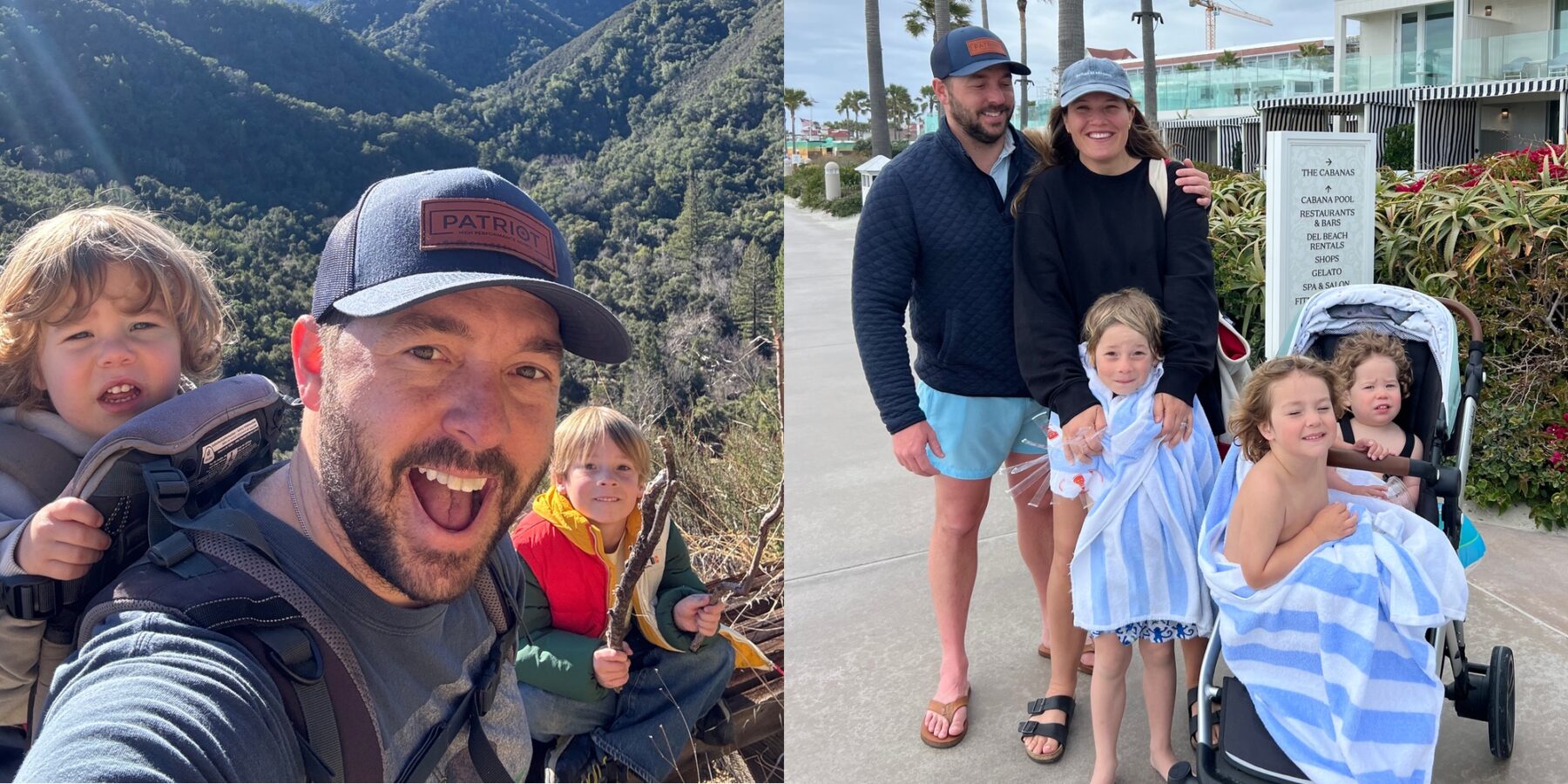
George Hodgin is a former Navy SEAL turned entrepreneur who is revolutionizing the world of medical cannabis research. George is the founder and CEO of Biopharmaceutical Research Company (BRC), one of the only federally legal cannabis research organizations in the United States. His company is leading the charge in developing safe, regulated, and scientifically-backed cannabis-based therapeutics—offering alternatives to opioids and other pharmaceutical treatments.
This is George’s second time on the podcast—our first conversation was almost exactly five years ago, back when his company was in its early stages, the pandemic was just beginning, and he was navigating the uncharted waters of federal cannabis regulations. Since we last spoke, BRC has made huge strides—partnering with leading medical institutions, earning FDA orphan drug designation, and paving the way for legal, cannabis-based medications.
If you haven’t already, I highly recommend going back and listening to that first episode, where George shares the full story of his fascinating career trajectory—his time as a Navy SEAL, his MBA at Stanford, and his undergraduate experience as a Morehead-Cain Scholar at the University of North Carolina. That conversation is a great companion to this one and provides even more insight into his unique journey.
In this episode, George and I dive into the evolution of BRC, the shifting cultural & political landscape around cannabis, and what it’s like balancing an entrepreneurial mindset with the slow, methodical world of federal drug approval. We also talk leadership, risk assessment in business and combat, humility vs arrogance, and what it’s been like to watch his wife, bestselling author & culinary powerhouse Caroline Chambers, build an incredible career of her own. Be sure to check out the episode notes for a full list of everything we discussed, plus links to resources, books, and more.
George is one of the most insightful, driven, and humble people I know, and I always learn a ton from our conversations. Whether you’re interested in business, science, leadership, or just a great story of perseverance and innovation, this episode has something for you.
Hope you enjoy!
—
Photos courtesy of George Hodgin and Caroline Chambers
LISTEN & DOWNLOAD:
Apple Podcasts
Spotify
… or wherever you get your podcasts!
—
RESOURCES:
Topics Discussed:
- 2:36 – Reconnecting with George
- 3:51 – George’s BRC elevator pitch
- 6:51 – City of Hope collaboration
- 10:36 – Choosing partnerships and plans
- 13:36 – What makes a successful idea
- 16:06 – Company mechanics
- 18:21 – Energy balance
- 22:06 – Cannabis in the name
- 23:51 – Cannabis sentiments culturally shifting
- 26:36 – But not legally
- 28:06 – Regulations and competition
- 32:21 – Different schedules of drugs
- 36:36 – Betting on the idea versus the team
- 41:21 – Risk framework
- 46:51 – When do you stop planning?
- 51:06 – Favorite failure
- 55:36 – Not seeing the forest for the trees
- 59:06 – Does cockiness play a role?
- 1:02:06 – George’s wife’s cooking journey
- 1:07:06 – General Mattis’ influence
- 1:08:51 – Book recs
- 1:11:06 – Parting words, asking Ed a question
Information Referenced:
- George Hodgin
- Biopharmaceutical Research Company
- George’s first M&P episode
- BRC’s partnership with City of Hope to address pain management in breast cancer patients.
- Drug schedules per the DEA
- Bill O’Reilly: “We’ll do it live!!”
- Caroline Chambers
- What To Cook When You Don’t Feel Like Cooking by Caroline Chambers
- General Jim Mattis’ memoir, Call Sign Chaos. George’s son, Mattis, is named after General Mattis.
- Hampton Sides’ Blood and Thunder.
- King Rat by James Clavell, same author of the stories that inspired the Shogun series.
- The Splendid and the Vile, not just another Churchill book, according to George.
Enjoy this episode? Then you might like these too:
- Jason Gardner – A Life of Purpose & Service
- Iris Gardner – Living with Intention
- Rick Ridgeway – Purpose-Driven Adventurer
- Walt Morgan – Helping People Discover Their Best Selves
- Nick Offerman – Empathy, Nuance, & Good Hard Work
- Hampton Sides Returns: The Wild and Tragic Tale of Captain James Cook
- Joe Schobert – From NFL Pro Bowler to Western Conservation Advocate
- Hal Herring Returns – Live at the Old Salt Festival
Visit the podcast page for a full, searchable list of episodes
Ivan McClellan Returns – From Behind the Lens to Center of the Arena
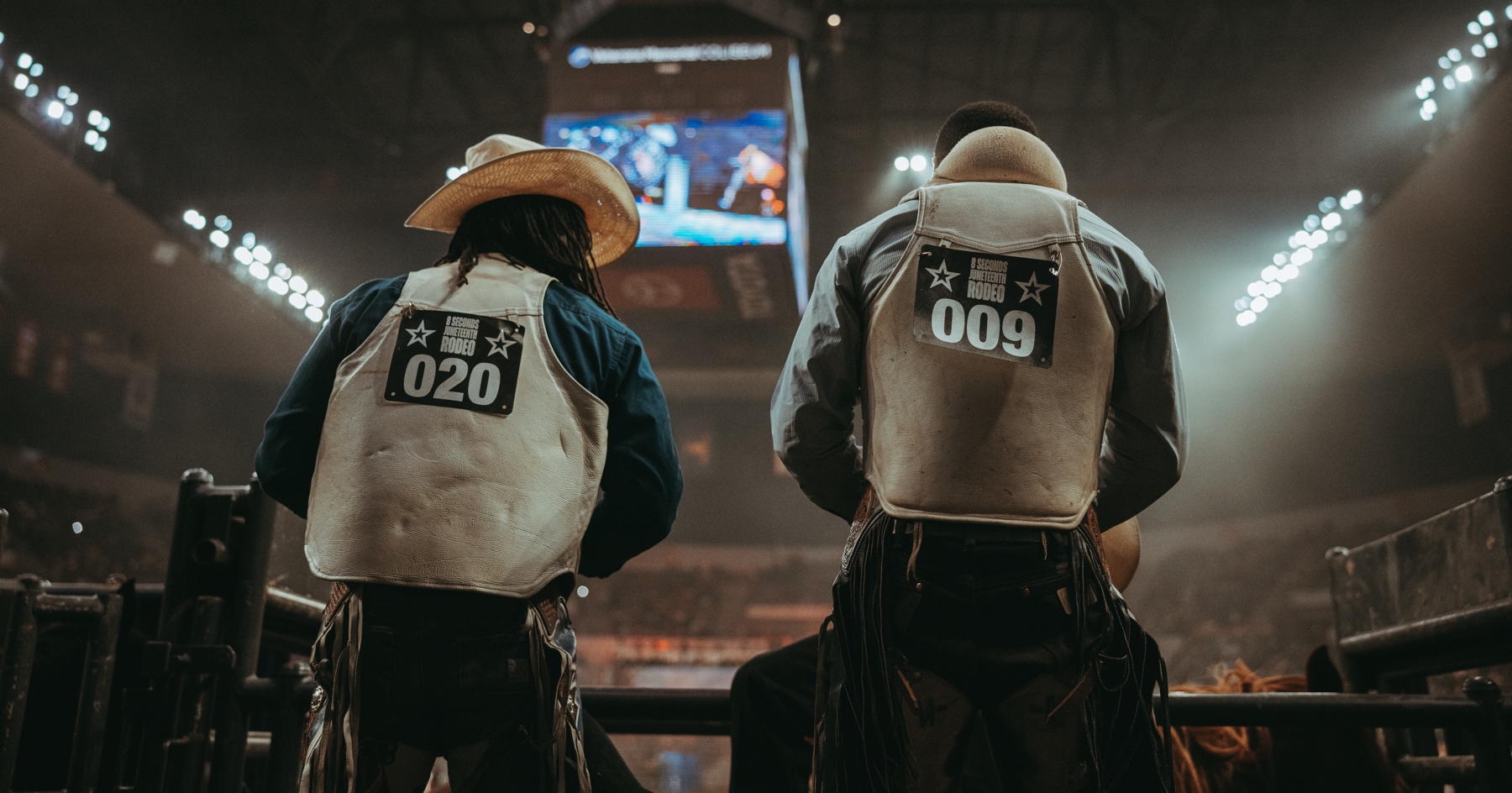
Ivan McClellan is a photographer, writer, and storyteller who’s shining a light on Black cowboy culture in a way that’s never been done before. When we first talked back in 2020, Ivan was in the early stages of immersing himself in this world—capturing rodeos, meeting cowboys, and telling stories that had largely been overlooked. Now, nearly five years later, he’s once again forging his own path by creating Eight Seconds Rodeo, an electrifying, high-stakes event that’s bringing some of the best cowboys and cowgirls in the country together to compete for serious prize money, all while celebrating a rich and important legacy.
In this episode, Ivan shares the inspiring story of how Eight Seconds Rodeo came to life—from a passion project sparked by tragedy to a must-see event that’s redefining the rodeo world. We dig into the challenges of launching something this big from scratch, the power of storytelling to shift culture, and what it means to build something bigger than yourself. Ivan also talks about his new photography book, his creative process, and how he stays grounded while juggling everything he’s got going on.
If you haven’t already, I’d encourage you to go back to our first podcast conversation, where we discuss Ivan’s early life and upbringing, as well as his journey into professional photography and the world of Black rodeo. It’s super inspiring to see how his career has grown and evolved over the last few years– and also to see how he’s continued to be such a humble, hard-working family man.
Whether you’re a longtime rodeo fan or just love hearing stories about people chasing big, meaningful dreams, this conversation is for you.
As always, you can find links to Ivan’s work, Eight Seconds Rodeo, his book, and our first conversation in the episode notes. And if you’re near Portland or Philadelphia in 2025, do yourself a favor and check out one of his rodeos. You won’t regret it.
Thank you for listening, and I hope you enjoy this conversation with Ivan McClellan!
—
Photos courtesy of Ivan McClellan and Eight Seconds Rodeo
LISTEN & DOWNLOAD:
Apple Podcasts
Spotify
… or wherever you get your podcasts!
—
RESOURCES:
Topics Discussed:
- 3:20 – Checking in with Ivan
- 7:05 – Eight Seconds Rodeo beginnings
- 9:35 – Knowing Ouncie
- 14:35 – The first step and conquering doubt
- 16:05 – Choosing Portland
- 18:35 – Someone to run the rodeo
- 22:50 – Stories of the first rodeo
- 26:50 – Year two
- 29:05 – What’s in store for 2025
- 32:35 – Balancing helping others and being the face
- 38:05 – The driving force
- 39:20 – The story of Ivan’s photography book
- 46:35 – Is a written book in store?
- 48:20 – Wearing a cowboy hat
- 52:35 – For more info on Ivan
Information Referenced:
- Eight Seconds
- Eight Seconds Rodeo
- Ivan on Instagram
- Ivan’s first appearance on M&P
- A Long list of incredible press on Ivan and Eight Seconds
- Ivan’s tribute to Ouncie on Instagram
- Ivan writing about Ouncie on Eight Seconds
- Gordon Parks, photographer
- Shaft, directed by Gordon Parks
- Learning Tree, Gordon Park’s semi-autobiographical book
- Ivan’s book, 8 Seconds: Black Rodeo Culture. This book came out just after Beyonce’s Grammy-winning Cowboy Carter album. Ivan said he benefitted by riding the coattails of the publicity of that album.
- Other Black rodeos, including Bill Pickett Rodeo and Black Rodeo USA
Enjoy this episode? Then you might like these too:
- Joe Schobert – From NFL Pro Bowler to Western Conservation Advocate
- Dr. Alan Townsend – Generosity & Curiosity in the Face of Tragedy
- Logan Maxwell Hagege Returns – On Taking Action & Finding Balance
- Rebecca Clarren – “The Cost of Free Land”
- Nick Offerman – Empathy, Nuance, & Good Hard Work
- Lorelei Cloud – Solving Modern-Day Challenges with Ancient Tribal Wisdom
- Corissa Busse – Tribal-Led Buffalo Restoration in the American West and Beyond
Visit the podcast page for a full, searchable list of episodes
Betsy Gaines Quammen Returns – Myths, Curiosity, and Human Connection (Live at the Old Salt Festival)
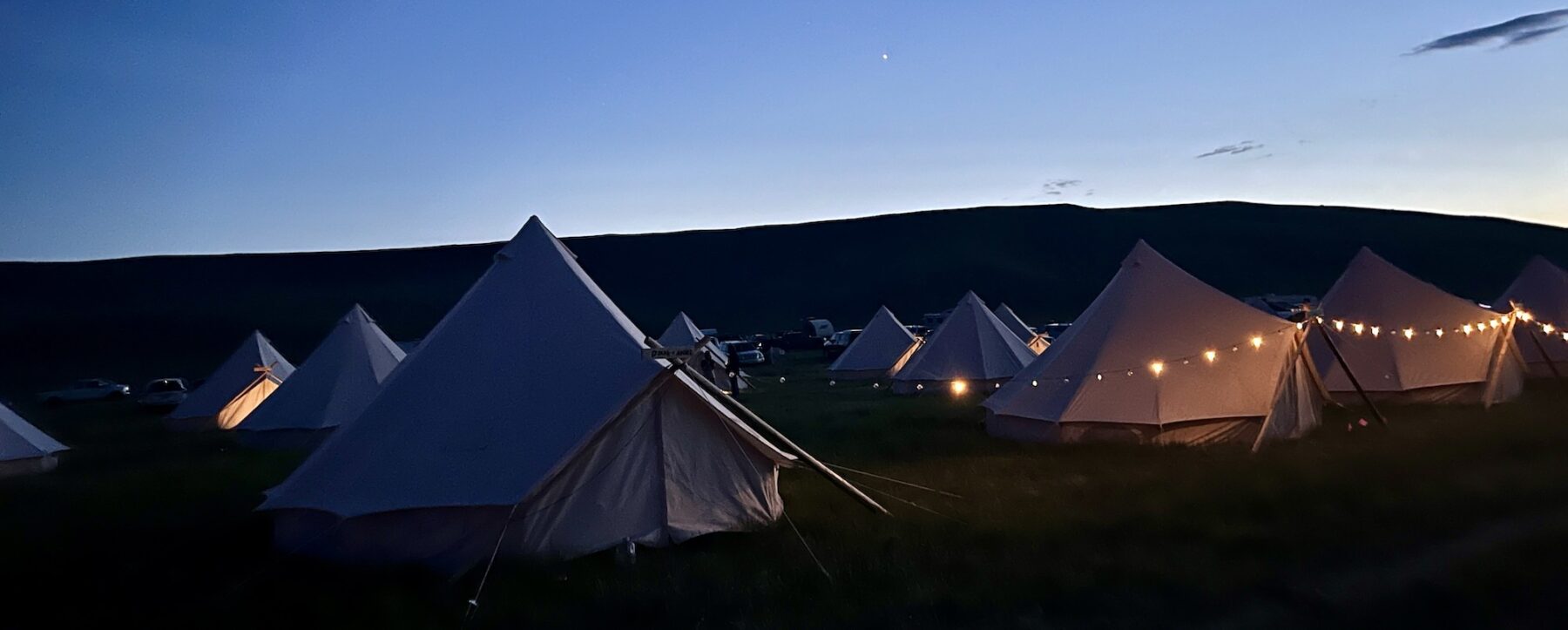
Betsy Gaines Quammen is a Montana-based historian and writer whose work explores the history and myths of the American West, and how those stories have endured and shaped life in the region today. Betsy joined me on the podcast several years ago to discuss her amazing book, American Zion: Cliven Bundy, God, and Public Lands in the West, and since then, she’s published another must-read: True West: Myth and Mending on the Far Side of America. In True West, Betsy meets face-to-face with a wide range of folks here in the West– from militia members to hardcore environmentalists– and seeks to understand why they believe what they do. Combining these conversations with her deep understanding of history, Betsy is able to demonstrate the fascinating complexity and contradictions that define many of the people and issues in today’s West.
We recorded this conversation on stage at the 2024 Old Salt Festival, where Betsy was nice enough to join us for the three-day festival of music, food, and conversation. As you’ll hear me say in the episode, Betsy and her work have played a huge role in my never-ending quest to try and understand this region, and I consider her to be a great friend and mentor. But even if you don’t have any interest in the West’s history or modern-day conflicts, there are big lessons to be learned from Betsy’s approach to her work. She is committed to finding the humanity in everyone– even people she completely disagrees with. Rather than attack them and their ideas, she approaches them with genuine curiosity, really trying to understand what they believe and why. And even when no common ideological ground can be found, there is still mutual respect. And I think most people will agree that we need more of these types of respectful interactions these days.
In this conversation, we talk a bit about Betsy’s background and why she is so fascinated with understanding myths and the West. We talk about her commitment to having deep conversations with people across political and socio-economic spectrums, and she describes one of the unlikely friendships she built with a man whose views on politics, public lands, and the environment could not be further from her own. We discuss the importance of getting off the internet and having face-to-face conversations, how real estate development is changing the ecology and economics of the West, her thoughts on the future, and more. We also took questions from the audience, which was a lot of fun.
Again, I can’t thank Betsy enough for joining me onstage for this conversation, but more importantly, for the wisdom she has shared with me over the years. If you haven’t read True West, I encourage you to pick up a copy as soon as you can, and I’d also encourage you to listen to our first conversation, where Betsy talks a lot about her life and career journey. And tickets for the 2025 Old Salt Festival are on sale now, so if you’d like to experience conversations like this in person– plus music, food, Western makers, and more– follow the link in the episode notes to grab your tickets.
Enjoy!
—
Header photo by Ed, headshot courtesy of Betsy Gaines Quammen
LISTEN & DOWNLOAD:
Apple Podcasts
Spotify
… or wherever you get your podcasts!
—
RESOURCES:
Topics Discussed:
- 4:15 – Introducing Betsy at Old Salt
- 7:45 – Why the West?
- 10:15 – Discussing myths
- 14:15 – Betsy talks across the aisle
- 17:30 – Betsy’s relationship with Lance
- 19:45 – Lance’s email
- 23:15 – Creating conversations outside the internet
- 26:00 – Real estate development in the West
- 30:00 – Covid as a catalyst
- 34:30 – Predicting the future
- 35:45 – Q&A
- 39:15 – Should we trust the government?
- 41:30 – Lance’s takeaways
- 43:30 – A ‘real’ Montanan
- 49:45 – Our energy future
- 53:00 – Parting thoughts
Information Referenced:
- Betsy Gaines Quammen
- Old Salt Festival
- True West by Betsy Gaines Quammen
- American Zion by Betsy Gaines Quammen
- Betsy’s first M&P episode
- Montana Book Company in Helena, Montana
- Stewart Rhoades’ Montana connections, courtesy the Flathead Beacon
- M&P’s conversation with Hal Herring at Old Salt
- Becoming Little Shell by Chris La Tray, Montana’s poet laureate
- An Irritable Métis, Chris La Tray’s Substack
- Chris La Tray on M&P
- Sterling Drake on M&P
- M&P and The Nature Conservancy on the energy transition
Enjoy this episode? Then you might like these too:
- Dr. Sara Dant Returns – “Losing Eden: An Environmental History of the American West”
- Douglas Brinkley – Exploring the Past to Find Inspiration for the Future
- Cole Mannix – Building Community through Land Stewardship and Local Food
- Doug Peacock – 50 Years of Fighting for the Grizzlies
- David James Duncan – Live at the Old Salt Festival
- Hal Herring Returns – Live at the Old Salt Festival
- Jesse Smith – A Regenerative Approach to Land and Life
Visit the podcast page for a full, searchable list of episodes
Chris Pague – Stories, Science, and the Southern High Plains
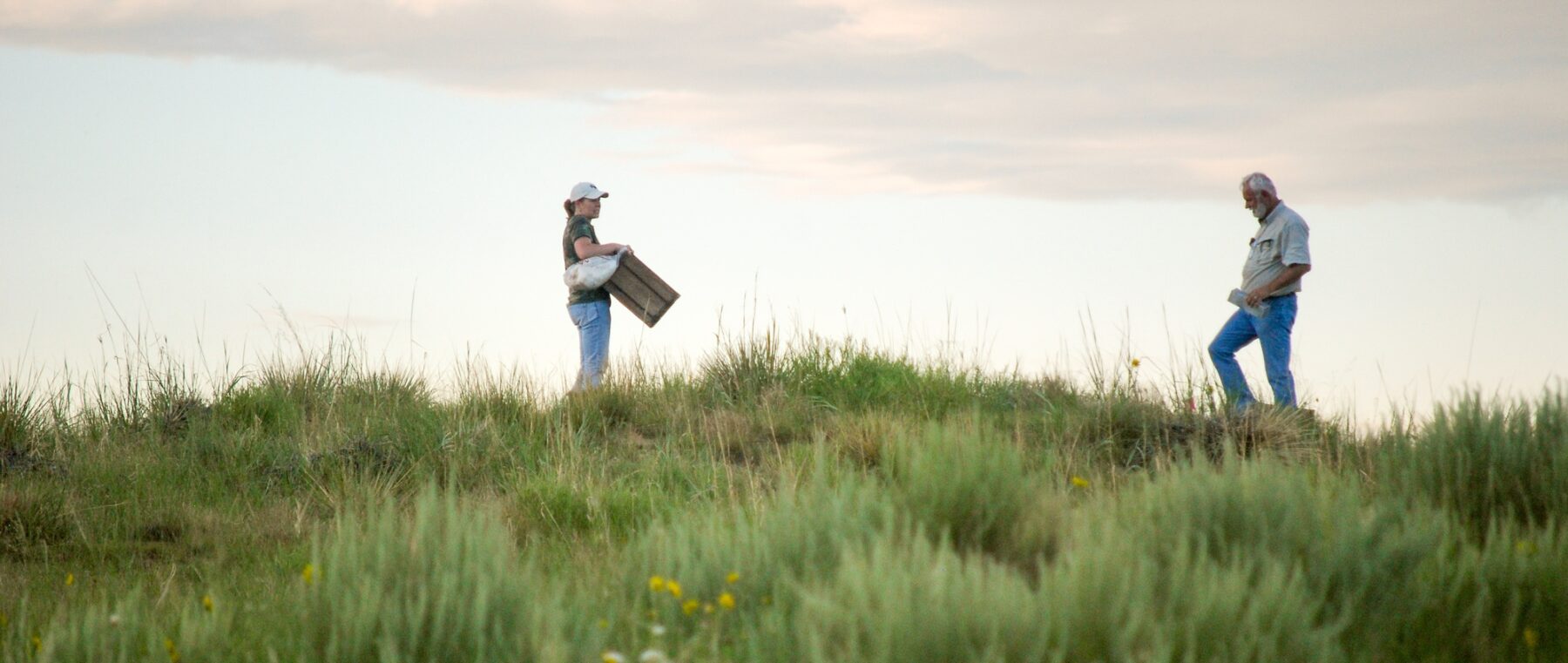
Chris Pague is the Senior Conservation Ecologist at The Nature Conservancy, and he is deeply involved in so many of the topics we discuss here on the podcast– grasslands, bison, endangered species, landscape-scale conservation, and more. For many decades now, Chris has been working on the frontlines of TNC’s science-based conservation efforts, and during his tenure, he’s accumulated a mind-blowing amount of knowledge about everything from the tiniest prairie plants to the plains’ largest mammals. But what makes Chris so special is his ability to translate complex ecology into inspiring, impactful stories– stories that resonate with everyone from the most committed conservationists to people who are just beginning to learn about the West’s wild places.
Chris grew up in Virginia, and for as long as he can remember, he’s been obsessed with the outdoors, wild creatures, and all varieties of plants. He eventually moved West to take a job in Colorado with the Nature Conservancy, where he’s been an invaluable member of the team ever since. I personally credit Chris for helping me in my own journey to understand the importance of grasslands and connected landscapes across the Southern High Plains, thanks to a presentation Chris gave at an event I was attending over a decade ago. I know there are countless other folks just like me who credit Chris with helping them to better understand and appreciate pressing conservation issues— and more importantly, to take action. Between his on-the-ground ecology work and his gift of storytelling, it’s difficult to fully wrap my head around the scale of the positive impact Chris has had over his career.
So, I was long overdue in having Chris join me for a podcast conversation. We could’ve talked for many hours, but in this chat, we still managed to cover a lot, including: Chris’s upbringing in Virginia and some of our shared favorite Virginia landscapes; his decision to move to Colorado; the decades-long shift in thinking around grasslands conservation; the importance of storytelling to communicate critical science, TNC’s Southern High Plains Initiative; optimism and the wisdom of Ted Lasso; partnerships and relationships; favorite books, and much more.
A huge thanks to Chris for this wonderful conversation, but more importantly, thanks to Chris for his many decades of inspiring work. Enjoy.
—
Header photo courtesy of TNC– header by Terri Schulz
LISTEN & DOWNLOAD:
Apple Podcasts
Spotify
…or wherever you get your podcasts!
EPISODE PARTNER:
This episode is brought to you in partnership with the Colorado chapter of The Nature Conservancy and TNC chapters throughout the Western United States. Guided by science and grounded by decades of collaborative partnerships, The Nature Conservancy has a long-standing legacy of achieving lasting results to create a world where nature and people thrive.
During the last week of every month throughout 2025, Mountain & Prairie will be delving into conversations with a wide range of The Nature Conservancy’s leaders, partners, collaborators, and stakeholders, highlighting the myriad of conservation challenges, opportunities, and solutions here in the American West and beyond. You can access all of the episodes here.
To learn more about The Nature Conservancy’s impactful work in the West and around the world, visit www.nature.org
RESOURCES:
Topics Discussed:
- 3:45 – Introducing Chris
- 8:30 – Chris’s favorite Virginia spots
- 9:45 – Making the decision to work for TNC
- 12:45 – Grassland evolution
- 17:30 – Why are grasslands important?
- 21:15 – Science and storytelling
- 24:15 – 50 years of land conservation history
- 28:00 – TNC’s Southern High Plains Initiative
- 35:15 – Protecting land
- 42:30 – Keep or sell?
- 47:45 – Building relationships
- 52:45 – Ted Lasso and optimism
- 56:45 – Increase in partnerships
- 58:45 – What Chris is excited about
- 1:03:45 – Book recs
- 1:06:45 – Parting words
Information Referenced:
- Chris Pague
- Southern High Plains Initiative
- Short Film: Connecting the Big Wide Open
- Matt Moorhead & Galen Guerrero-Murphy episode
- The Birds of America. That book and Chris’s dad’s binoculars got him into birds and the outdoors.
- RC Cola, one of Chris’s early jobs, manufactured by Dr. Pepper.
- Grayson Highlands State Park in Virginia, located near the two highest peaks in the state.
- Denver Museum of Nature & Science
- Ted Lasso, the eternal optimist
- Chris says an increase in conservation partnerships gives him a reason for hope. Some of those partnerships include those with The Conservation Fund, The Wilderness Society, Ducks Unlimited and Great Outdoors Colorado.
- The Big Empty
- Leaving Space for Nature
- Habitats of the World
- The Book of Hope by Jane Goodall
Enjoy this episode? Then you might like these too:
- Jesse Smith – A Regenerative Approach to Land and Life
- Dr. Katharine Hayhoe – Effecting Change Through Authentic Conversation
- The Partnership of Rangeland Trusts – 20 Years of Cooperation, Collaboration, and Conservation
- Pete McBride Returns – Exploring & Documenting His Backyard River
- Sandy Colhoun – Building Leaders Through Outdoor Education
- 50 Years of the Endangered Species Act – Live in Austin
- Corissa Busse – Tribal-Led Buffalo Restoration in the American West and Beyond
Visit the podcast page for a full list of episodes where you can filter episodes by topic and guests’ vocations.
Nicole Qualtieri – Charting a New Course in the Changing Landscape of Outdoor Media
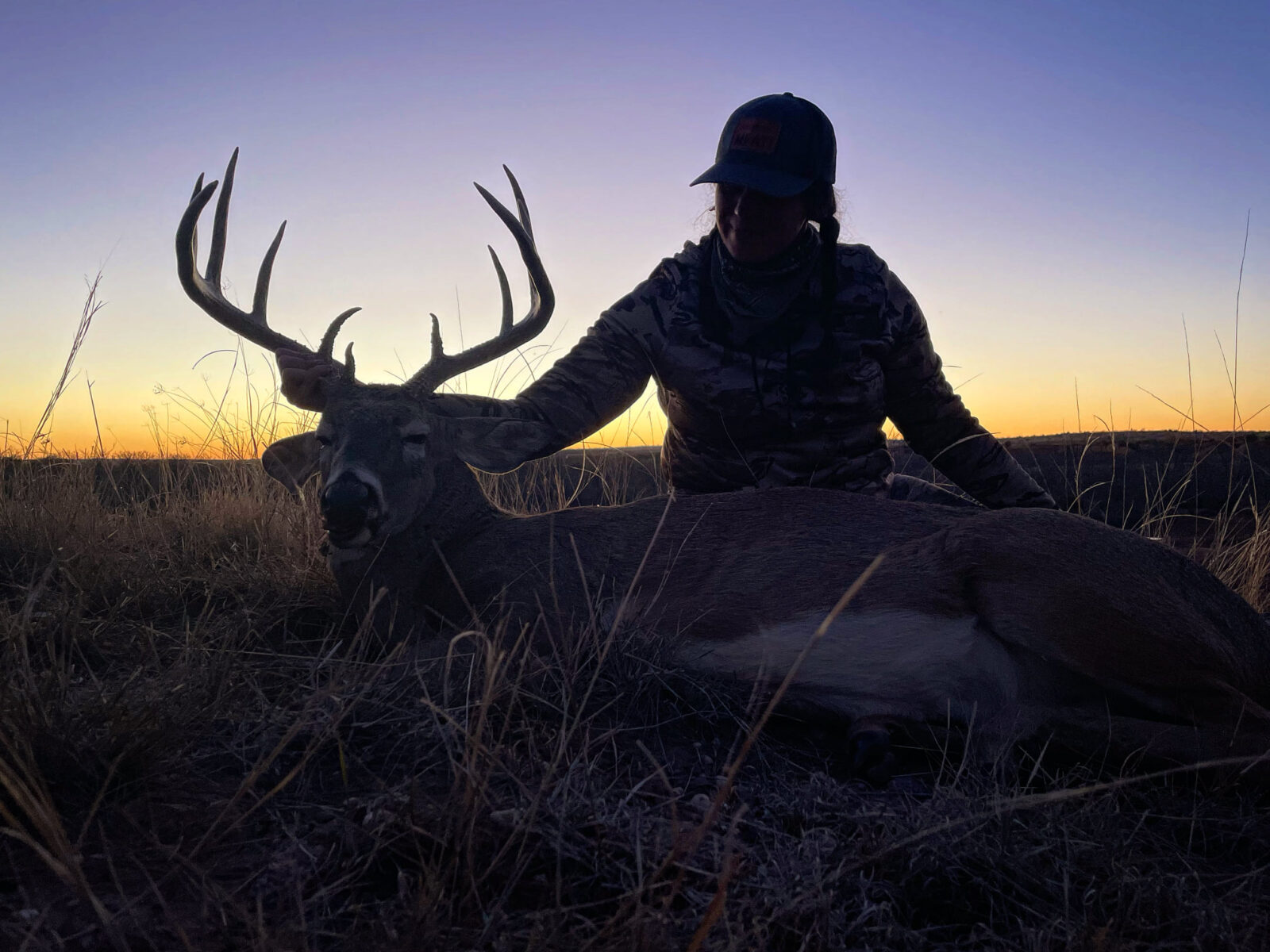
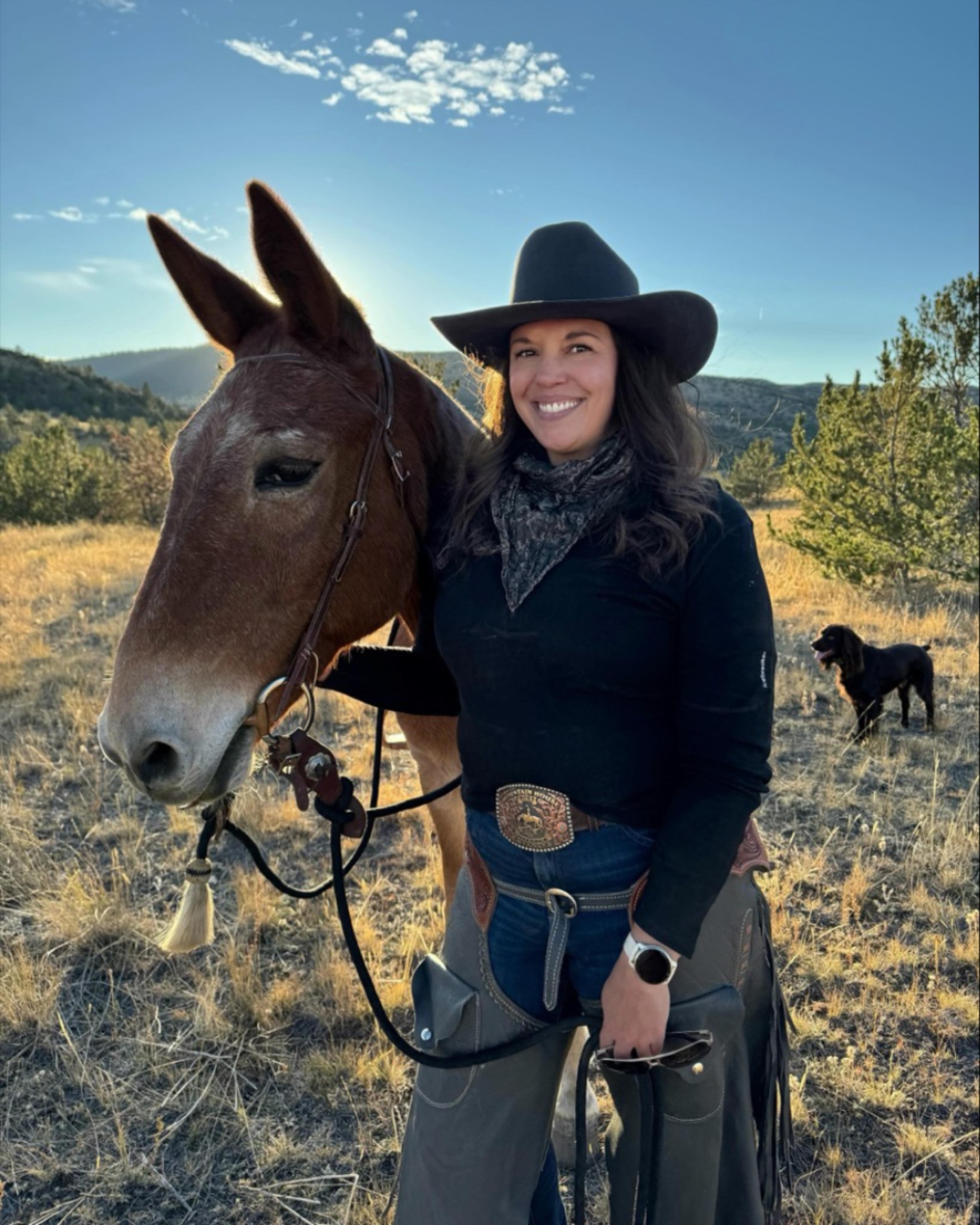
Photo by Lindsey Mulcare
Nicole Qualtieri is an outdoor writer and editor, a conservationist, and a committed outdoorswoman. Over the past decade, she’s worked with some of the most notable brands in the outdoor industry, including MeatEater, Backcountry Hunters and Anglers, and GearJunkie, and she has bylines with many well-known outdoor publications, such as Outside, Modern Huntsman, and Backcountry Journal. But despite being plugged in with many of the best names in the outdoor business, she and a few creative friends decided to go out on a limb and start their own outdoor publication– one that focuses on substance over clickbait, depth and vulnerability over the silly quest for virality and search engine optimization.
The name of the project is The Westrn, and it combines the best parts of online writing and journalism with a printed, hold-it-in-your-hands newspaper that ships to subscribers four times per year. As you’ll hear Nicole describe, the topics covered by The Westrn’s include hunting, conservation, and a wide range of outdoor adventure. But the deeper point of it all is to build a tight-knit community of engaged outdoor enthusiasts of all stripes, who appreciate the value of nuanced writing, thinking, and publishing. As many legacy outdoor media brands have become controlled by private equity and now focus on scalability over creativity and quality, the role of people like Nicole and her partners at the Westrn are all the more important— they are taking a real risk to make the Westrn a reality, and I greatly admire their vision and commitment to action.
Nicole and I connected online– she was at her home in Anaconda, Montana and I was here in Colorado Springs– and we had an enlightening conversation filled with lots of laughs about her fascinating life, career, and the creation of The Westrn. We discussed her upbringing in what she describes as a high-control religious cult and how hunting and the outdoors were her way of working through some of that childhood trauma. We discussed her non-traditional career path, which included a stint as a stand-up comic, and how she worked her way into the outdoor industry. We discuss the importance of hard work, preparation, and grinding, and how self-confidence is generated from those activities. We discuss the current state of the outdoor media industry, the financial challenges of making it as a freelancer, her writing process, contentment vs happiness, favorite books, and of course, her goals for The Westrn.
Nicole was also kind enough to offer some discount codes for M&P listeners:
20% Discount off the Annual Subscription
—Link for M+P Listeners will auto-populate discount: https://www.thewestrn.com/mtnprairie
20% Off Pre-Order Single Issues:
—Use link to use code: https://thewestrnstore.com/discount/MTNPRAIRIE?redirect=%2Fproducts%2Fthe-westrn-individual-issue
—Or use code MTNPRAIRIE
A huge thanks to Nicole for the conversation, and thank you for listening. Enjoy!
—
Photos courtesy of Nicole Qualtieri: Header by Ty Grethen of Weatherby; Embedded portrait by Lindsey Mulcare
LISTEN & DOWNLOAD:
Apple Podcasts
Spotify
… or wherever you get your podcasts!
—
RESOURCES:
Topics Discussed:
- 4:30 – Nicole and Ed’s first convo (shared Roadhouse appreciation)
- 6:15 – Nicole’s background
- 8:15 – How writing’s been a part of Nicole’s life
- 13:15 – Getting out West
- 16:30 – College degrees
- 19:15 – On writing On Killing Animals
- 21:00 – The grind and the craft
- 28:00 – Taking the pain
- 30:15 – Outside’s rejection of On Killing Animals
- 34:45 – The corporatization of outdoor media
- 44:30 – The Westrn
- 54:30 – Taking a good idea and running with it
- 59:45 – Etymology of happy
- 1:02:30 – Nicole’s book recs
- 1:07:00 – Parting words
Information Referenced:
- Nicole Qualtieri
- The Westrn
- The Westrn’s Newspaper
- On Killing Animals, the first story published by The Westrn, by Nicole
- How to Know if You’re in a Cult with Tia Levings: Glennon Doyle, Abby Wombach and Amanda Doyle’s podcast with Tia Levvings
- The Best of Outside: The First 20 Years
- Gear Junkie
- MeatEater
- The Brass Check by Upton Sinclar, journalism and corruption
- How to get the Westrn in print
- The Surfer’s Journal and Ed’s interview with Scott Hulet
- Adventure Journal
- Definition of “happy”
- If you want to be an outdoor writer, read: A Rough Guide to the Heart and A Little More About Me by Pam Houston; H is for Hawk by Helen Macdonald
- If you’re interested in conservation, read: Louis Warren’s The Hunter’s GameIf you want poems, read: Returning to Earth, Jim Harrison; Mary Oliver’s Devotions; Nikki Giovanni’s Bicycles; and not an Ode to the Black Panther, but Pablo Neruda’s Ode to an Onion, as a substitute.
Enjoy this episode? Then you might like these too:
- Kristine Tompkins – Nothing to Lose
- Anna Borgman – Obsession, Curiosity, and Purpose-Driven Work
- Corissa Busse – Tribal-Led Buffalo Restoration in the American West and Beyond
- Kami Bakken – How to Build a Life and Career in the West’s Wide-Open Spaces
- Nick Offerman – Empathy, Nuance, & Good Hard Work
- Hal Herring Returns – Live at the Old Salt Festival
- Heidi Redd & Sue Bellagamba – Tales from the Dugout Ranch
- Kathie Sever – Chainstitching, Craftsmanship, and Cosmic Western Wear
Visit the podcast page for a full, searchable list of episodes
Hal Herring Returns – Live at the Old Salt Festival
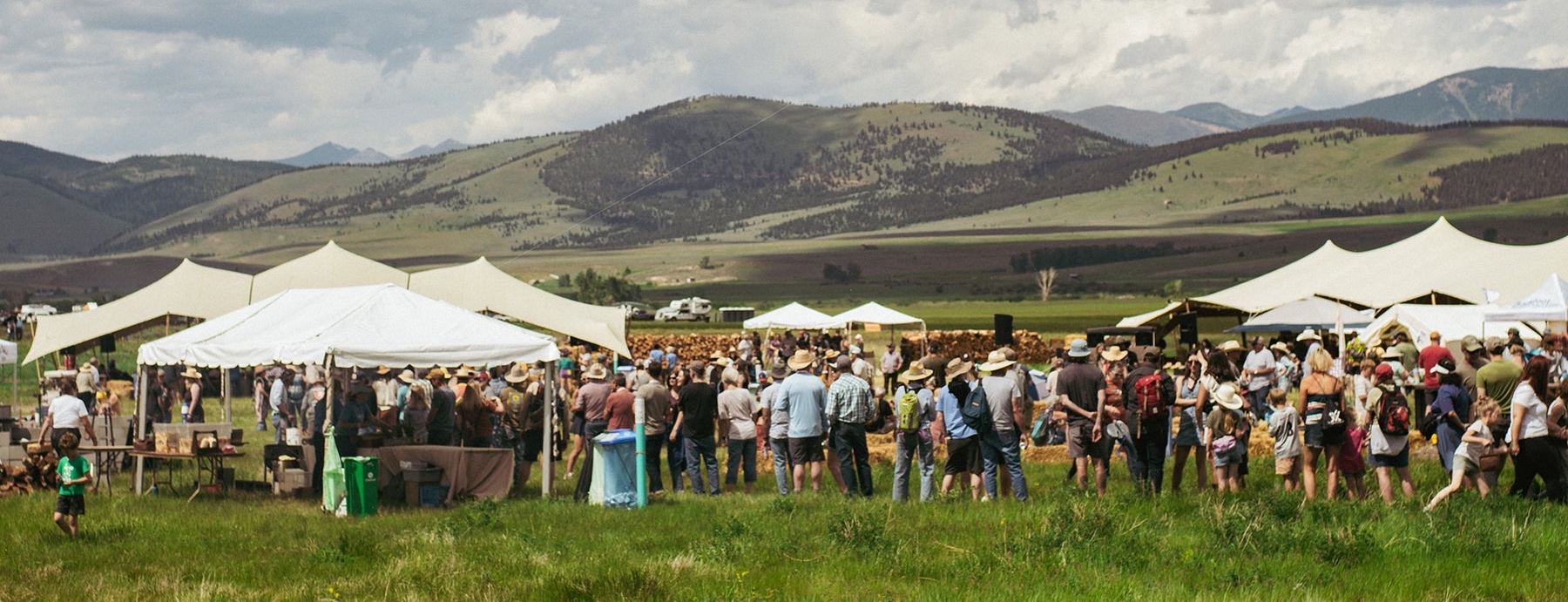
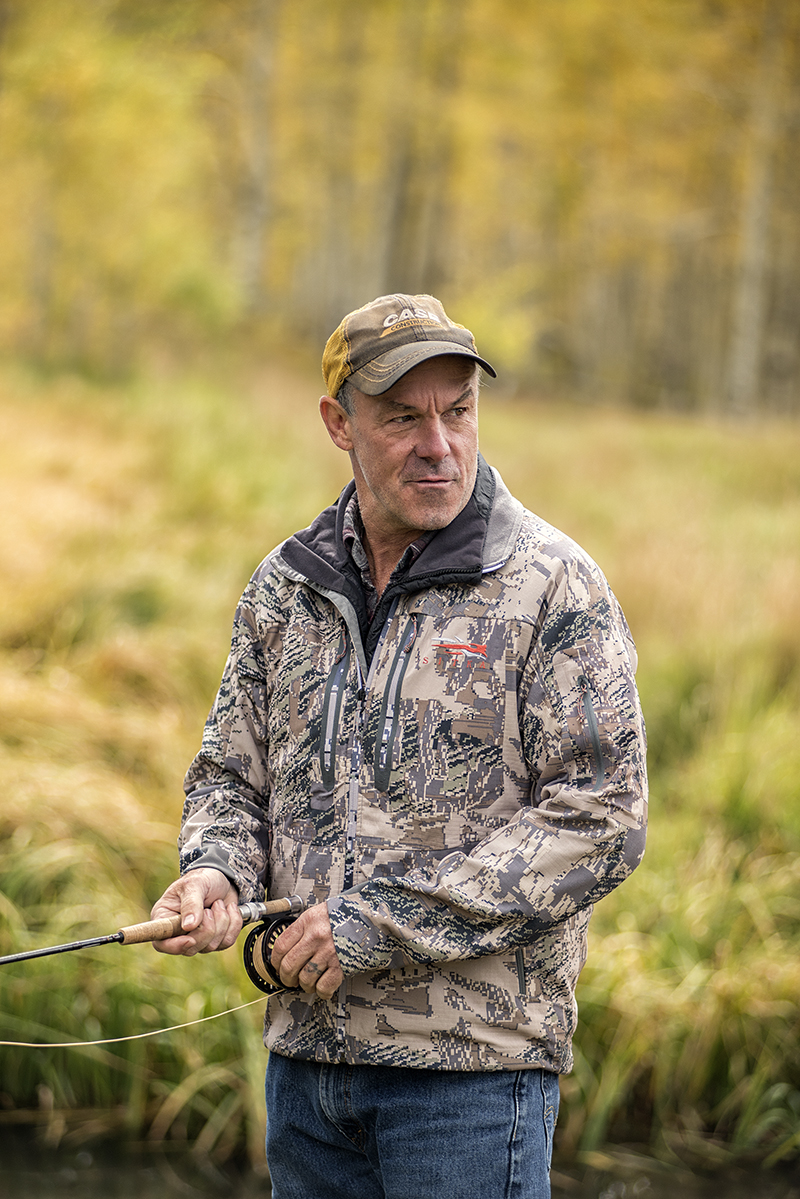
(photo: via BHA by by Tim Peterson)
Hal Herring is an award-winning outdoor journalist, fierce public lands advocate, and thoughtful, action-oriented conservationist. He’s also an accomplished podcaster and host of Backcountry Hunters and Anglers’ Podcast & Blast with Hal Herring. If you’re a longtime listener of Mountain & Prairie, you may remember my first episode with Hal back in December of 2019– pre-pandemic, when the world was a much different place. Like me, Hal was born and raised in the south, and also like me, his Southern accent has not faded. But he’s made Montana his home for many decades now and has established himself as one of the most respected voices in conservation here in the American West.
This episode was recorded live and on stage at the 2024 Old Salt Festival on the Mannix Family Ranch in Helmville, Montana. If you’re not familiar with Old Salt, it’s a three-day gathering in Montana’s Blackfoot Valley that combines live Americana music with artists like Sterling Drake and Summer Dean, wood-fired cooking with chefs including Eduardo Garcia, and a General Store featuring western makers such as Cate Havstad, Jillian Lukiwski, Christy Sing, and many more. The festival also includes a ton of on-stage conversations about land stewardship, conservation, history, literature, and more– and this is one of those conversations.
Most of you are probably already familiar with Hal, but if you’re not, you are in for a treat. Hal brings such energy, humor, and knowledge to everything he does, and he has helped me in my own personal journey to better understand this complex region known as the American West. In this conversation, we covered a lot, including: Hal’s journey from Alabama to Montana, his thoughts on the current state of family ranching and public lands, optimism vs pessimism, and who he admires in the conservation space. We also discuss his forthcoming book on public lands, an idea he is working on for a new podcast, and we take a number of questions from the audience.
I know you’ll learn a lot from this episode– I consider Hal a great teacher and leader, and it’s always an honor to spend time with him. Tickets for the 2025 Old Salt Festival are on sale now, so follow this link to learn more and secure your spot at what will surely be another amazing weekend with amazing people.
Thanks to Hal for the conversation, to the Mannix Family for opening up their ranch for this festival and to you for listening!
—
Header photo courtesy of Old Salt, photo of Hal courtesy of BHA and by Tim Peterson
LISTEN & DOWNLOAD:
Apple Podcasts
Spotify
… or wherever you get your podcasts!
—
RESOURCES:
Topics Discussed:
- 3:30 – Ed introducing Hal at Old Salt Festival
- 4:45 – How Hal ended up in Montana
- 7:15 – Hal’s thoughts on the consolidation, absorption of family ranches
- 9:30 – Threat to public lands
- 11:15 – Hal’s “ah ha” moments as he’s researching his new book
- 12:45 – Hal’s book recs
- 15:00 – Finding common ground
- 18:15 – Keeping the energy going
- 19:15 – Hal’s new podcast project
- 23:45 – What Hal views as current threats to public lands (1872 mining law)
- 26:00 – Optimist or pessimist?
- 29:15 – Who’s taking action?
- 31:45 – Start of Q&A, Hal expanding on new podcast
- 34:00 – Broadening the audience
- 36:00 – What’s Hal doing beyond podcasting to trigger improvement?
- 37:15 – Ideas into action
- 39:00 – Project 2025
- 42:15 – Getting people’s attention without scaring them
- 44:00 – Future of journalism
- 46:00 – Montana Senate race
Information Referenced:
- Hal Herring
- Old Salt Festival
- Hal’s first M&P appearance
- Annick Smith and William Kittridge’s The Last Best Place. Annick was at a writers’ workshop with Hal in 1988.
- 1988 fires in Montana, during which about 36% of Yellowstone National Park burned.
- Homestead Act, during which 270 million acres of U.S. land was transitioned from public to private land in the Lincoln Administration to encourage westward expansion.
- Peter Kropotkin, Mikhail Bakunin, in Hal’s Russian anarchists phase.
- The Wilderness Warrior, Douglas Brinkley. In Hal’s FDR phase.
- Betsy Gaines Quammen’s True West
- Douglas Brinkley’s Silent Spring Revolution
- Silent Spring, touchstone of the environmental movement in the 1970s
- Nate Schweber’s This America of Ours
- Hal’s Backcountry Hunters and Anglers podcast
- What do you really believe in? Hal discusses on Hunt Talk Radio’s podcast.
- The Road, Cormac McCarthy
- Life of Pi
- 1970s Toxic Substances Control Act
- Michael Lewis’s The Fifth Risk
- Outdoor Afro
- Weeds of the West
Enjoy this episode? Then you might like these too:
- David James Duncan – Live at the Old Salt Festival
- Douglas Brinkley – Exploring the Past to Find Inspiration for the Future
- Nate Schweber – A Forgotten Chapter of American Conservation
- Anna Borgman – Obsession, Curiosity, and Purpose-Driven Work
- Nick Offerman – Empathy, Nuance, & Good Hard Work
- Corissa Busse – Tribal-Led Buffalo Restoration in the American West and Beyond
- John Vaillant – A Riveting Exploration of Fire
- Sterling Drake – Roots Music, Ranching, and Giving Back
- Mark Kenyon – A Passion for Public Lands
- Kami Bakken – How to Build a Life and Career in the West’s Wide-Open Spaces
Visit the podcast page for a full, searchable list of episodes
Scott Hulet: Reading + Writing + Surfing + Fishing + Traveling
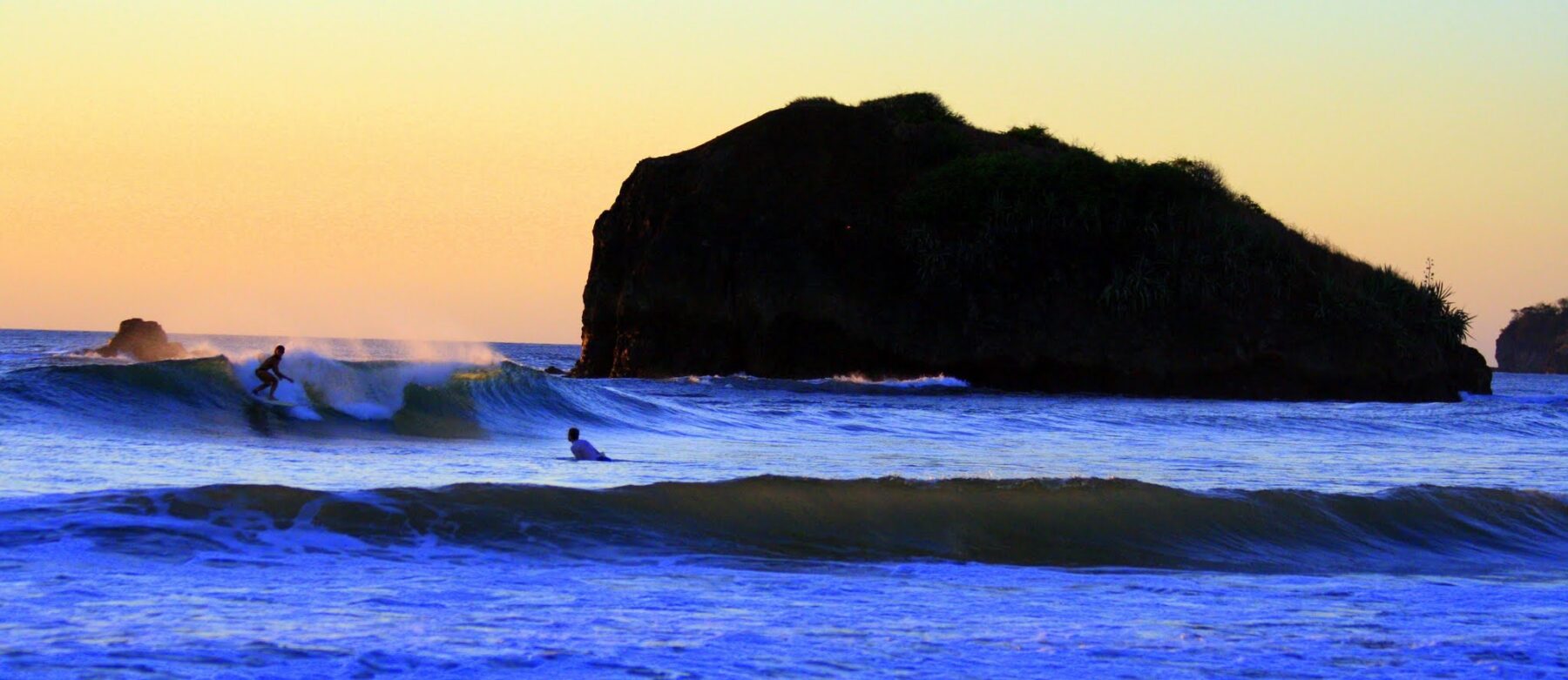
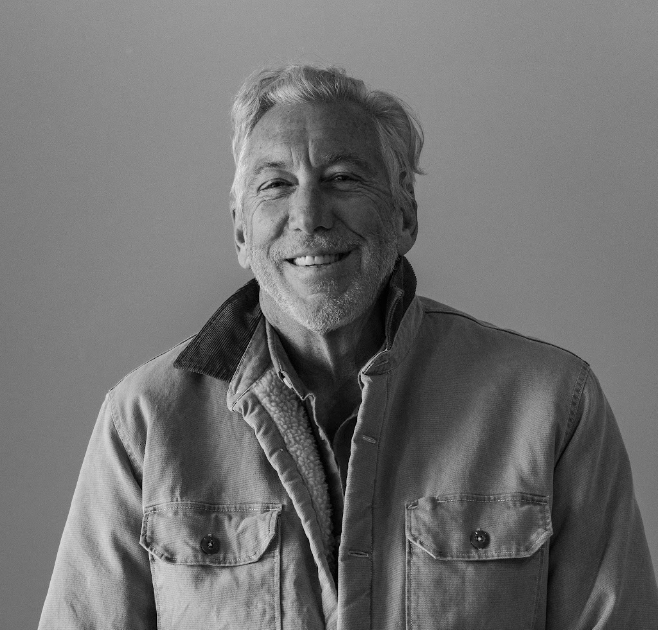
Scott Hulet is a legendary writer, editor, and current Creative Director at The Surfer’s Journal. He also has a new book titled Flow Violento: A Scott Hulet Omnibus, which is a compilation of more than thirty years of his writing about surfing, fishing, travel, food, music, and more. If you subscribe to my book recommendations email, then you’ll already know how much I loved the book– Scott brings to life the cultures, waves, and landscapes of Latin America using his unique blend of insights, humor, and perfectly crafted prose. If you’re a fan of travelogues, adventure tales, and cultural immersion, I know you’ll enjoy Flow Violento.
Scott was born and raised in southern California, and he’s been writing for longer than he can even remember. Skating and surfing entered his life very early, as did travel to Mexico for surf trips. Through a deep commitment to the craft of writing and surfing, he’s been able to build a successful career that combines both. But for all his success, there have also been some speedbumps along the way, including a string of health scares during his fifties that culminated with a very serious stroke. But after a ton of hard work and help from some inspiring medical professionals, Scott was able to make a full recovery– and refocus his efforts on writing, traveling, and surfing.
I’ve been a huge fan of The Surfer’s Journal and Scott for many, many years, so I was honored that he took the time to chat with me about his life, work, and the new book. I caught him just a few days before he took off to the Colombian Amazon for a fishing and research trip, and we had a fun chat about reading, writing, surfing, traveling, and more. Some of the topics include: his “hunting and gathering” approach to reading; some of his favorite childhood books; his first foundational surfing and traveling experiences; moving to Hawaii after high school; becoming a professional writer; the importance of approaching new cultures with respect; his health scares and lessons learned; his surprising thoughts on social media; rules for travel; and much more.
A big thanks to Scott for the conversation and his decades of important work. And another big thanks to you for listening. Enjoy!
—
Header photo by Ed, headshot by Ben Steele
LISTEN & DOWNLOAD:
Apple Podcasts
Spotify
… or wherever you get your podcasts!
—
RESOURCES:
Topics Discussed:
- 3:30 – Scott’s “hunting and gathering” approach to reading
- 5:30 – Scott’s father’s influence on his reading
- 7:00 – Favorite childhood books
- 8:15 – A brief family history
- 9:35 – Childhood activities in San Diego
- 11:45 – First three foundational surfing experiences
- 16:00 – First adventure in Mexico
- 20:30 – Approaching new cultures and locations with respect… or else
- 24:00 – Heading to university
- 25:45 – Writing: from avocation to vocation
- 28:00 – Mentors
- 34:30 – How TSJ has maintained such a loyal following in the changing world of print media
- 36:45 – A surprisingly positive take on Twitter/X
- 39:45 – The importance of knowing a wide range of people with wide ranges of ideas
- 44:45 – The art of editing
- 47:15 – Courting the Muse
- 49:30 – Lessons learned from several super-intense health trials
- 53:30 – Pre-stroke Scott vs post-stroke Scott
- 55:45 – How to stand out from the crowd as a creative
- 57:15 – There are still unknown, off-the-map places to discover
- 59:00 – Rules for thinking traveler
- 1:01:00 – Important books
- 1:05:00 – Parting words of wisdom
Information Referenced:
- Flow Violento: A Scott Hulet Omnibus
- The Surfer’s Journal
- Scott on the The Surfer’s Journal podcast, Soundings with Jamie Brisick
- World Book
- Harvard Classics
- Robert Service
- My Side of the Mountain by Jean Craighead George
- Hatchet by Gary Paulsen
- The Yearling by Marjorie Kinnan Rawlings
- Jim Thompson
- Autodidact
- Chris Ahrens
- Guy Motil
- Steve Pezman
- Kevin Naughton
- Drew Kampion
- Dale Herd
- Craig Stecyk
- The Belly of Paris by Emile Zola
- Our Man in Havana by Graham Greene and Christopher Hitchens
- Eyelids of Morning; the mingled destinies of crocodiles and men: Being a description of the origins, history, and prospects of Lake Rudolf, its peoples, deserts, rivers, mountains, and weather by Peter Beard
- Escoffier: The Complete Guide to the Art of Modern Cookery
- The Raw and the Cooked: Adventures of a Roving Gourmand by Jim Harrison
- Through the Brazilian Wilderness by Theodore Roosevelt
- The River of Doubt: Theodore Roosevelt’s Darkest Journey by Candice Millard
- Rio Orinoco
- Don’t Save Anything: Uncollected Essays, Articles, and Profiles by James Salter
Enjoy this episode? Then you might like these too:
- Chris Burkard, Part 2 – Seeking Beauty Through Adventure
- Christian Beamish – West Coast Craftsman
- John Vaillant – A Riveting Exploration of Fire
- Rick Wittenbraker – Humility, Generosity, and Building One-of-a-Kind Brands
- Logan Maxwell Hagege Returns – On Taking Action & Finding Balance
- Pete McBride Returns – Exploring & Documenting His Backyard River
- Nick Offerman – Empathy, Nuance, & Good Hard Work
- Kristine Tompkins – Nothing to Lose
Visit the podcast page for a full, searchable list of episodes
2024 Reads
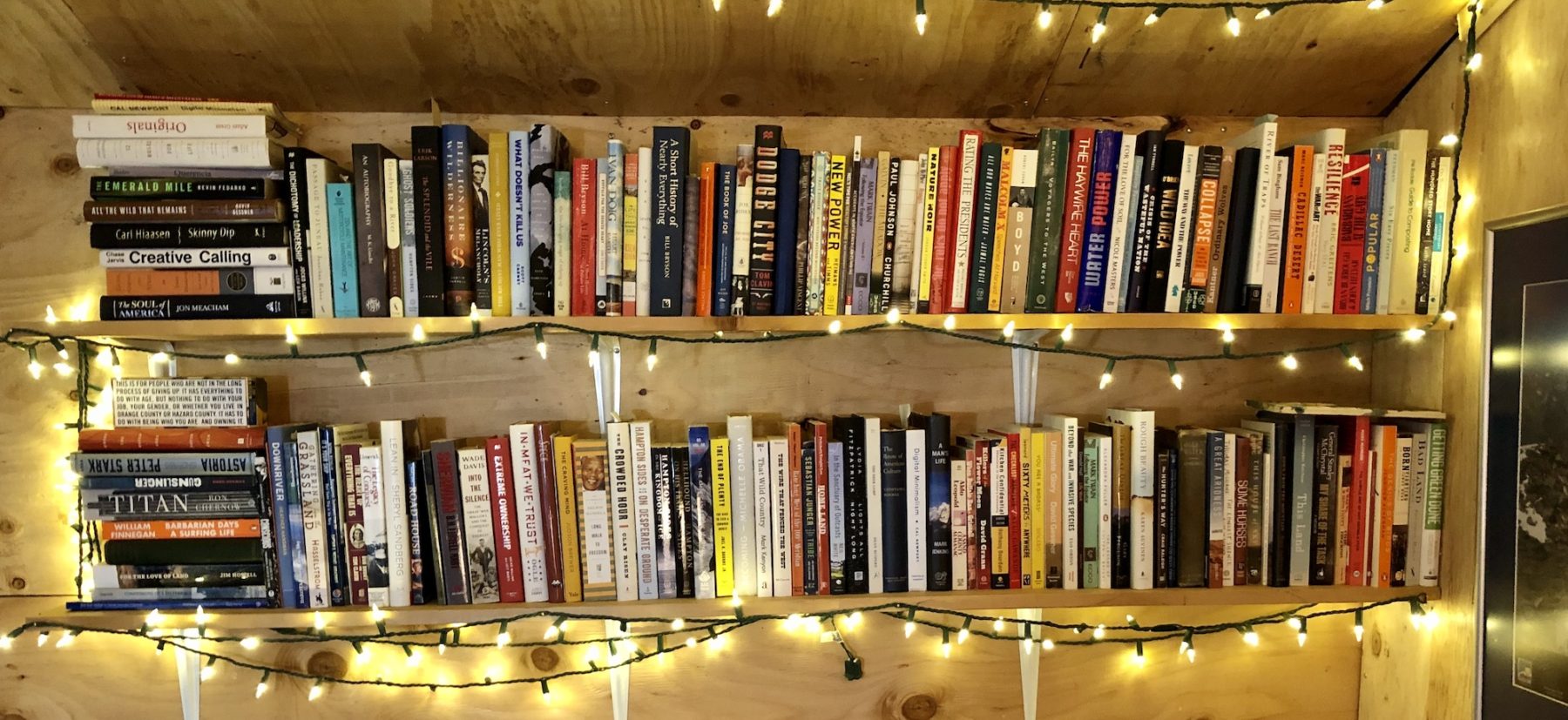
A comprehensive list of every book I recommended in 2024, taken directly from my bimonthly book recommendations emails.
Let’s Explore Diabetes with Owls: Essays, Etc. by David Sedaris – The more I read David Sedaris, the more I am in awe of the mind-blowing skill and soul he brings to the craft of telling hilarious stories. His observations are so specific, the dialogue so perfect, his language so precise– but nothing ever crosses into being mean. He never strikes me as being bitter or angry– if anything he’s over-the-top sensitive and compassionate. Even though many of his stories veer into topics that could be considered controversial, his genuine curiosity about people and situations allows him to magically sidestep any blowback that often accompanies outrage-inducing issues. This book is yet another collection of essays, all of which are amazing. But I especially enjoyed– and laughed hard at– Standing Still, A Friend in the Ghetto, and Loggerheads, and I love his constant references to my old stomping grounds of Raleigh, North Carolina. The only problem with Sedaris’s books is that they set an unachievable standard for normal people like me who want to write funny stories. [When You Are Engulfed in Flames was the first Sedaris book I ever read and I was hooked.]
The Status Game: On Human Life and How to Play It by Will Storr – Have you noticed how crazy people are acting these days? I think humans have always been a little nutty, but it seems that we’re reaching new heights of derangement as both individual creatures and a collective species. If you’re like me and have an unhealthy obsession with trying to understand exactly why humans are bananas crazy, this book is for you. Its basic premise is that we humans are driven by a foundational desire to achieve higher and higher status. “Status” does not necessarily mean being being the “coolest,” or the “richest,” or a member of the “best” frat or country club. According to Storr, there are status games played among even the most selfless of us– even, for example, monks (Who is the most pious?; The most committed?; Who can meditate the longest?; etc). The pursuit of status is hardwired into our DNA and it has been driving our species forward from the very beginning. But status games get real weird, real quick in our super-connected, highly complex modern world. Thanks to the internet, humans are now playing practically infinite status games, oftentimes against people we don’t even know. And status game overload leads to, you guessed it, nuttiness. [The last book that made me think this long and hard about humans was Sapiens by Yuval Noah Harari.]
Never Split the Difference: Negotiating As If Your Life Depended On It by Chris Voss – One of my best friends– we’ll call him “Cole”– is a master negotiator. It doesn’t matter where he’s shopping or what he’s buying, Cole will reliably negotiate any price down to a mere fraction of its list price. It could be a television at Best Buy, a mirror at a flea market, installation of internet at his house, or mattresses at the furniture store– the question is not if he’ll get a discount, only how absurd it will be. These negotiations are reliably some of the funniest, most fascinating, most confounding interactions to observe, and I’ve been observing them for nearly 30 years. Yes, I’m in awe of how he’ll manage to buy a mattress for 25% of its list price– ethically, with no under-the-table funny business. But more impressively, after every one of these negotiations, the salesperson (the guy who just agreed to a 75% revenue cut) seems to be absolutely thrilled with the way the transaction played out. Elated! Cole is the salesperson’s new best friend, and they are laughing and shaking hands and slapping each other on the back as they part ways, making plans to do business again in the future. Somehow, Cole turns these crazy interactions into genuine win-wins for everyone involved. If you want to learn how Cole does it, read this book. [One of the best business books I’ve ever read is The Future of the Responsible Company by Vincent Stanley.]
Art, Artifact, Artifice and Ocean Fishes by James Prosek – One of the great pleasures of the past year has been getting to know the artist, naturalist, conservationist, and all-around-interesting dude, James Prosek. James has devoted much of his three-decade career to studying fish, birds, eels, grasslands, and the natural world through his art– his paintings and sculptures are stunning and speak for themselves. But if you’ve ever heard James speak or read his writing, then you quickly realize that the actual artwork is just the very tiny tip of a ridiculously huge iceberg– there is a hulking mass of deep thought, research, and philosophy beneath every piece he produces. Both of these books are coffee-table-style tomes that would look great in your home for decades to come. Yes, by all means, leaf through the books and admire the one-of-a-kind art. But be sure to read (and re-read) James’s essays, so that you can begin to understand the level of depth that he brings to his art. And as a bonus, Ocean Fishes features a forward by the great Peter Matthiessen. [To hear James speak eloquently and humorously about his art and artistic process, check out our recent on-stage conversation at the Amon Carter Museum of American Art.]
For some reason, over the past two months, I found myself revisiting some of my old favorites. Not reading them all the way though, but flipping through and re-reading the sections that I underlined or starred during my earlier readings. It’s amazing to me how certain passages can take on completely different relevance during different stages of life. Here are a few that I’ve likely recommended many times before and enjoyed once again:
- Tribe: On Homecoming and Belonging by Sebastian Junger – This book continues to unexpectedly pop up in conversations, most recently with a high-ranking Army officer who credits it with positively steering his life, family, and career during a pivotal few years of his service. I have given away countless copies of this book and consider it to be one of the most important books I’ve ever read.
- Radical Acceptance: Embracing Your Life With the Heart of a Buddha by Tara Brach – Without fail, I periodically fall into troughs of aggressive self-flagellation, all of which are very unpleasant and mostly pointless. When this invariably happens, I reach for Tara Brach to bring me out of the fog.
- The War of Art: Break Through the Blocks and Win Your Inner Creative Battles by Steven Pressfield – No matter how many times I revisit this book, I find a few new nuggets that truly help me resist distraction, push through procrastination, and get my work done. After my most recent reading, I took my most aggressive stance toward fortifying my focus yet: I bought a flip phone.
- Fight Club by Chuck Palahniuk – I’m not sure why I’m so obsessed with jiu jitsu. I’m not good at it, I don’t enjoy being choked, my pinky toes are perpetually black and sprained, it’s an in-the-face reminder that I’m a middle-aged man, and, on Monday, my earlobe started bleeding profusely. I thought Fight Club might help me understand why I love “The Gentle Art” so much, but it didn’t. But I was glad to revisit my underlined passages regardless.
The Wide Wide Sea: Imperial Ambition, First Contact and the Fateful Final Voyage of Captain James Cook by Hampton Sides – I’d been looking forward to this book for five-and-a-half years, and it was well worth the wait. As is the case with all of Hampton Sides’ books, I felt like I had taken a three-month graduate-level history course, but without the hassle of all the boring lectures and writing assignments. Yes, the book digs deep into the action-packed story of Captain Cook and his map-making compatriots, but Sides devotes equal attention to the fascinating culture and history of the Polynesian people. You don’t have to be a tenured professor of late 18th-century history to know that Cooks’ legacy is, at best, “complicated,” and this book explores all of the competing (warring?) perspectives about the man and his impact on world history. A fun and deeply substantive read– highly recommended. [Another action-packed, thought-provoking book that I will re-recommend is John Vaillant’s Fire Weather.]
Sea People: The Puzzle of Polynesia by Christina Thompson – A day after finishing The Wide Wide Sea, I started in on Sea People, frantically trying to jam more information about Polynesia into my already full brain. This book contains so much amazing history and analysis, and it is mindblowing to learn how the Polynesians successfully navigated and “mapped” the entire region from Hawaii to Easter Island to New Zealand. But, unlike the Europeans, their version of “mapping” did not rely on two-dimensional charts, compass readings, and mathematical calculations. Their approach was more of a three-dimensional, holistic framework– one that incorporated winds, currents, and time. For me, perhaps the biggest takeaway from this book was a reminder that our latest and greatest technologies and mental models will not always be the best or most effective ways of approaching problems. [Speaking of the sea, one of my all-time favorite books is Cod: A Biography of a Fish That Changed the World.]
Ultra-Something by Brendan Leonard – Brendan was kind enough to ask me to blurb this, his newest book, so I did my best to string together some words to make me sound like a refined connoisseur of sophisticated literature: “‘Why would you do something like that?’ is a question every ultrarunner has received– usually from a wide-eyed, slack-jawed acquaintance who seems equally concerned and confused by the idea of running 100 miles. In Ultra-Something, Brendan Leonard answers that (perfectly reasonable) question, offering a poignant, insightful, at-times hilarious examination of his unlikely journey in ultra-endurance sports. Whether you’re a Hardrock 100 finisher or just signed up for your first 50K, you’ll glean valuable wisdom and inspiration from Leonard’s deep dive into the ‘why’ of ultrarunning.” The book also features many excellent drawings of rats, pizza, 42,000 cigs, maps, and the like. [The book is officially on sale May 23rd, but you can sign up here to receive a free chapter and a reminder when it’s available.]
Patagonia National Park: Chile by Kristine McDivitt Tompkins, Linde Waidhofer, Yvon Chouinard, et al. – If, like me, you watched and loved the documentary Wild Life, then you’re most likely a superfan of Kris Tompkins. After leaving her post as CEO at Patagonia, she and her late husband Doug began their decades-long project of conserving vast swaths of South American wilderness. To date, their organization, Tompkins Conservation, has protected approximately 14.8 million acres of wildlands, transforming them into Chilean and Argentinian National Parks. This coffee-table-style book is the story of one of their most notable projects– a former sheep ranch that is now a crown jewel of Chile’s National Park System. Filled with beautiful photos and inspiring essays, the book is a case study in collaboration, trust, relationships, and overcoming the odds to achieve extremely challenging goals. Available now at Patagonia.com, everywhere else on May 22nd. [I had the great pleasure of chatting with Kris about the book, and many other fascinating topics, in this recent podcast episode.]
Tao Te Ching: The Book of the Way by Lao Tzu – I somehow ended up deep in an internet rabbit hole of Taoism, a topic I vaguely remember studying in a college religion class (but promptly forgot everything except that the T is pronounced like a D). The Almighty Algorithm directed me to this book, which I bought and have been reading off and on for the past few months. As far as I can tell, Taoism is all about balancing the opposing forces in our lives, about not veering too far toward any extreme. You know, the yin and the yang. Many of the chapters remind me of Buddhist koans, which invariably jam up my second-rate mind, leaving me feeling confused and inadequate. But every now and then, one of the verses hits me really hard, miraculously allowing me to live a more balanced life for about 45 seconds. Abbreviated enlightenment– I’ll take it! [Another book that’s worth a twice-per-week scan is The Daily Stoic by Ryan Holiday.]
Way of the Warrior Kid: From Wimpy to Warrior the Navy SEAL Way by Jocko Willink – I gave this book to my oldest daughter a while back, and recently, she casually mentioned that she had read it eight times. That’s quite an endorsement from a discerning bookworm like her, so I decided to give it a quick read. As you’d expect from anything Jocko writes, the book is laser-focused on values like humility, courage, leadership, and work ethic, but, in this book, it’s all presented in a very inviting and kid-friendly tone– a tone that obviously resonated with my violin-playing, tap-dancing 8-year-old. I can only imagine what my jiu-jitsu-doing, rock-climbing 6-year-old will think when she reads it– she very well may wander down to the local Navy recruiting office and try to enlist. [Speaking of kid’s books, Hatchet and My Side of the Mountain continue to be perpetual crowdpleasers in the Roberson household.]
In My Time of Dying: How I Came Face to Face with the Idea of an Afterlife by Sebastian Junger – I’m an unabashed Sebastian Junger superfan. I read everything he writes, listen to all of his podcast appearances, and his film Restrepo is one of my all-time favorite documentaries. He was also the inspiration behind my long-overdue reversion to a flip phone. So– surprise, surprise– I loved this book. His descriptions of finding himself minutes away from dying of a pancreatic aneurysm is unsettling and scary, especially since he was the picture of physical health before that artery burst. But what I enjoyed most was his open-minded exploration of the mystery of what lies just on the other side of our here-on-earth existence. Junger is an avowed atheist, but not so tied to that “belief” that he cannot open his mind to the idea that there may be something more to be experienced when we die. Now more than ever, I appreciate curious, open-minded people like Junger who are willing to reconsider closely held ideas that are cornerstones of their identities. [Just last week, I gave yet another copy of Junger’s Tribe to a friend.]
True West: Myth and Mending on the Far Side of America by Betsy Gaines Quammen – Betsy is a renowned historian, gifted and skilled storyteller, and one of my most trusted sources for understanding the complexity and nuance of the modern-day American West. Whether reading this, her newest title, or her earlier work, American Zion, you will finish each book with a wealth of knowledge about the history, culture, and people who have shaped the mythical narrative of “The West.” But perhaps more importantly, I found True West to be a masterclass in learning how to think– how to embrace nuance, ask tough-yet-sincere questions, stress test all preconceived ideas, and avoid demonizing individuals with whom you may disagree. Betsy’s reporting style hammers home the power of face-to-face communication and shows the importance of approaching “the other side” with respect and genuine curiosity. While our current culture seems quick to apply good/bad, right/wrong labels to everything, True West reminded me that everything is complicated. And that’s a good thing. [Another perspective-shifting book about the West (and more) is An Indigenous Peoples’ History of the United States by Roxanne Dunbar-Ortiz.]
The Gift of Violence: Practical Knowledge for Surviving and Thriving in a Dangerous World by Matt Thornton – If you’ve been unlucky enough to have a one-on-one conversation with me anytime over the past seven months, I have likely blasted your eardrums with a breathless, wide-eyed soliloquy about the life-changing effects of Brazilian Jui-Jitsu. My wife and girls continue to ask if I “joined a cult.” Whether I’ve been brainwashed or not is debatable, but there’s no question that I’ve had my eyes opened to the humbling realities of fighting and physical violence. This book thoughtfully and eloquently explores ideas around real and fantasy martial arts, pacifism, and performative aggression, without any of the macho, wanna-be-tough-guy nonsense that often defines such discussions. In my humble opinion, I don’t think the publisher did a great job with the book’s subtitle or inside-the-jacket description– the book is much more of a philosophical exploration than a “practical guide.” [The only other fighting book I remember reading was A Fighter’s Heart by Sam Sheridan, and it was great.]
This Ordinary Stardust: A Scientist’s Path from Grief to Wonder by Alan Townsend – As the father of two young girls and the husband of a way-out-of-my-league woman, this book hit me hard. It’s the story of Alan’s family being rocked to the core by two unthinkable, back-to-back tragedies– his four-year-old daughter and brilliant wife both being diagnosed with brain tumors. Alan is a highly trained, Ph.D.-level scientist who spent his entire career using cold hard facts, emotionless inquiry, and academic rigor to try and solve some of the world’s most pressing problems. Yet when faced with a father/husband’s worst nightmare, he was forced to accept that science alone was simply not enough to make it through this gauntlet. I was blown away by Alan’s insightfulness and vulnerability and how he managed to constructively meld science and spirituality to make sense of an unimaginable catastrophe. I consider this one of the more important books I’ve read, and despite having to constantly clean the tears off of my reading glasses, I am a better person after reading it. [My go-to book about dealing with challenges or tragedy is Pema Chodron’s When Things Fall Apart.]
The Colorado River: Chasing Water by Pete McBride – Like so many of my favorite authors, Pete makes it effortless– even fun– to learn about the complexities of the American West. Whether he’s delving into the threats facing the Grand Canyon, the surprising effects of noise pollution around the world, or, in this case, the plight of the Colorado River, Pete’s stunning photography and thoughtful prose makes the medicine go down. In this book, Pete explores his “backyard river,” from its headwaters in the Colorado Rockies all the way to where it peters out just short of the Gulf of Mexico. My favorite parts of the book were the substantive photo captions– extensive, hundreds-of-word paragraphs that effectively explain everything from challenges to Native communities to the unexpected water conservation success story that is Las Vegas. I was especially taken aback by the exporting of water-intensive alfalfa to Middle Eastern countries– a scheme that strikes me as pure insanity. Buy the book, put it on your coffee table, and learn from it for years to come. [My most-recommended river/water book is Downriver by Heather Hansman.]
Denali: A Man, a Dog, and the Friendship of a Lifetime by Ben Moon – I’ve long admired Ben’s work as a photographer, filmmaker, and adventurer, and as of two days ago, when I finished this book, I greatly admire his work as an author. If you’ve ever had a dog that seemed to understand you more than any humans do, this is your book. It’s an extension of Ben’s award-winning, tear-jerking film Denali, which is 100% guaranteed to make you sob (in the best possible way). The book follows Ben’s 14 ½ year companionship with his faithful canine partner Denali, who guides him through the peaks and valleys of a very intense life– a divorce, a battle with colorectal cancer, his eventual dependence on a colostomy bag, and his commitment to a life of adventure and purpose-driven work, colostomy bag be damned. Perhaps I’m biased because I credit a sweet-but-nutty lab named Abby for patiently guiding me from idiot college kid to fatherhood, but I’m confident that this book will mean a lot to anyone who has experienced that deep, DNA-level dog-human connection. [To understand why we connect with dogs, read The Wolf in the Parlor by Jon Franklin.]
Amusing Ourselves to Death: Public Discourse in the Age of Show Business by Neil Postman: If you need something to make you feel better about the frantic state of our insanely connected world, I’m sorry, but this is not your book. Written almost thirty years ago, it offers a sobering, if not terrifying, analysis of just how shallow our approach to once-serious subjects has become– and how that shallowness is eroding society. Postman places the blame on the proliferation of “electronic media,” which, in 1985, meant a handful of TV stations. How quaint. As I read this book, I was constantly thinking about 1) how eerily ahead of his time Postman was with his observations and arguments, 2) how no one could’ve ever predicted just how wacko the world of electronic information would become, and 3) how uber-wacko things will be five years from now. The most powerful passage from the book is in the foreword, and you can read that here. This was a tough and, at times, infuriating book to read, but I’m glad I did. [If you need help counteracting the daily onslaught of electronic garbage, read Deep Work by Cal Newport.]
Flow Violento: A Scott Hulet Omnibus – The reason I love surf writing has very little to do with the authors’ descriptions of riding waves. My favorite surfing tales take me to wild landscapes and underappreciated cultures, combining adventure, history, danger, and introspection with a cast of oftentimes nutty characters. For more than three decades, The Surfer’s Journal has delivered the best-of-the-best surf writing, much of which was either written or edited by the great Scott Hulet. In Flow Violento, we’re gifted with some of Scott’s most impactful stories from a lifetime of surf-driven exploits south of the border. Scott takes us far outside the well-worn, user-friendly resort areas of Mexico and Central/South America, and deep into communities and surf breaks that are not just under the radar, but sometimes straight-up hostile to interlopers. And you don’t have to be a surfer to fall in love with Hulet’s writing– fishing, music, food, and art play just as much of a role in these stories as do the waves. [No surprise here, but one of my favorite surfing books that’s about a lot more than surfing is Barbarian Days by William Finnegan.]
A Promised Land by Barack Obama – What I look for in a memoir: Fun-to-read writing; laugh-out-loud humor; deep dives into the “why” of pivotal decisions; a detailed understanding of the people/places/experiences/cultures that shaped the author’s worldview; enlightening historical context; the author’s most brutal challenges and how they were overcome; opportunities to evolve my thinking on a few topics; humility; passion; purpose; commitment; optimism; self-doubt; extreme hard work; and crazy behind-the-scenes stories. What I don’t look for in a memoir: To have my preexisting opinions confirmed; to agree in lockstep with the author’s ideas/choices/worldview; surface-level boringness; or prose obviously written by a team of insufferable PR suits. Conclusion: This book met and/or exceeded all of my criteria and now sits alongside Acid for the Children and Shoe Dog as an all-time favorite memoir. [This seems like a good place to remind everyone of FAQ #7.]
A Cowgirl’s Conservation Journey: Stories from the Dugout Ranch by Heidi Redd with Larisa Bowen – Speaking of excellent memoirs, this one also met all of the criteria mentioned above. It’s the story of the legendary cowgirl and conservationist Heidi Redd, and her lifelong commitment to stewarding the 340,000-acre+/- Dugout Ranch, which is located within the boundaries of Utah’s Bears Ears National Monument. From her earliest years, Heidi has lived quite an adventurous and purpose-driving life– what started with a childhood love of horses quickly evolved into a wide range of action-packed sports, including skydiving and rock climbing. She then took her willingness to push herself outside her comfort zone and applied it to what would become her life’s work: Protecting the Dugout Ranch. This is a coffee table-style book, so Heidi’s words are complimented by copious photos and maps, which I loved. If you’re a fan of history, adventure, ranching, conservation, and tough, purpose-driven people, this is your book. [For a different approach to protecting the landscapes of southeastern Utah, read Edward Abbey’s Desert Solitaire.]
The Necessity of Wildfire: Poems by Caitlin Scarano – I’m not cultured or confident enough to offer any sort of meaningful analysis of poetry. All I know is that every so often, I’ll read a poem and have an unexpectedly intense appreciation for the words on the page. I can’t explain why, and it would probably ruin the poetry if I aggressively focused on trying to figure it out. So I’ll keep this simple: If I had to describe The Necessity of Wildfire in one word, I’d say it’s “brave.” Scarano digs into deeply personal topics including family, relationships, and past trauma, but does so with a clear-eyed, confident, curious approach that I find both admirable and inspiring. I can’t imagine that her intended audience was a 46-year-old-father-of-two who is obsessed with jiu-jitsu and Road House, but I think this highlights Scarano’s skill as a poet– she cuts through the surface-level nonsense and connects with other humans on a foundational level. [Another poetry collection I loved was Blood Is Not the Water by Mara Panich.]
Comfortable with Uncertainty: 108 Teachings on Cultivating Fearlessness and Compassion by Pema Chödrön – For many years now, I’ve proudly proclaimed to have read all of Pema’s books— but I was wrong! Somehow I had completely missed this one, which is one of her best. Other than The Pocket Pema Chödrön, I’d say this is her most accessible collection of writings, with each chapter being no more than two pages. It’s the kind of book I like to keep on my bedside table and read a chapter or two before bed or first thing in the morning. One of the many things I love about Pema is that she offers actionable, powerful wisdom, but with a sense of humor and without any spiritual arrogance or pretense. I’ve long said that Pema is one of the wisest humans on Planet Earth, so, if you have not explored her work, this book would be a good place to start. [If you prefer listening, check out Pema’s Don’t Bite the Hook.]
Andy Catlett: Early Travels by Wendell Berry – If you’re looking for a book to help you disconnect from the chaotic insanity of the internet and bring some balance to your brain, this one is a good choice. It was my first dose of Wendell Berry fiction, and it won’t be my last– in fact, I’m already 50 pages into my next one. Set in small-town Kentucky during the early 1940s, the book hammers home so many of the ideas Berry explores in his non-fiction writings: community, faith, family, connection to the land, and living life at a natural, human pace. But this is not some Pollyanna-esque description of the “good ol’ days”– Berry’s characters wade into the realities of racial inequality, economic pressures, and looming societal/technological threats to community cohesiveness. I underlined more passages in this book than I do in most of my non-fiction readings, and I’m still thinking about its themes many times per day. It’s only 140 pages– so read it! [My most revisited non-fiction Wendell Berry book to date is It All Turns on Affection.]
Grizzly Confidential: An Astounding Journey into the Secret Life of North America’s Most Fearsome Predator by Kevin Grange – Over the years, I’ve read a lot about grizzlies, and I thought I had a decent understanding of the animal and cultural issues surrounding it. However, like any great book, Grizzly Confidential opened my eyes to just how little I actually knew about the topic. Grange is a paramedic, firefighter, and journalist, so he combines his adventurous spirit with his ability to tell a great story and explores grizzlies from a brand new perspective. He visits bear preserves in Alaska, university research facilities, hotbeds of bear poaching, and areas that have cracked the code on successful human-bear coexistence. The book is part travelogue, part adventure story, and part science– making for a fun and educational read that I highly recommend. And for any of you who have been following the untimely death of Grizzly 399 in Wyoming, you may be interested to know that that iconic bear was the inspiration for this book. You can listen to Kevin talk about it in our recent podcast chat. [Another excellent book about bears and wild places is Doug Peacock’s Was It Worth It?]
Cobalt Red: How the Blood of the Congo Powers Our Lives by Siddharth Kara – This is a very important book and I think everyone who owns a smartphone should read it– but I feel bad recommending it because it will infuriate and/or depress you. It’s an exposé of the cobalt mining business in the Democratic Republic of the Congo, which is probably the most horrifying and corrupt large-scale industry on planet Earth. Cobalt is an essential ingredient in rechargeable batteries, so every phone, computer, electric car, renewable energy array, etc. depends on a steady supply of this rare earth metal. Unfortunately for everyone involved, a significant portion of all cobalt in the supply chain was dug from the earth by the hands of desperate men, women, and children who are endangered, abused, effectively enslaved, and sometimes killed. I experienced many sad and guilty thoughts while reading this book, but the most notable were: 1) imagining my nine-year-old daughter being forced to dig cobalt out of a toxic mine, and 2) the realization that I’ve played a role in funding this humanitarian crisis through my purchases of phones and computers. Hopefully, this book and others like it will encourage/force trillion-dollar companies to use their vast resources to take responsibility and demand reform at the bottom of the markets they have created. [After finishing Cobalt Red, you can deal with your guilt by reading Tara Brach’s Radical Acceptance.]
The Wisdom of the Bullfrog: Leadership Made Simple (But Not Easy) by Admiral William H. McRaven – A few weekends ago, during a full-day binge of household projects, I listened to nearly eight hours of Admiral McRaven podcast interviews (here and here). I’d read his book Make Your Bed many years ago but had never heard the man speak at length. I was obviously off-the-charts impressed. Yes, he’s confident, smart, and tough, but what I found most interesting were his genuine humility and service-oriented mindset. I immediately ordered and read this, his newest book, and, given the number of notes I took while reading it, I expect to be referencing it for years to come. As the subtitle says, it’s very simple, to-the-point leadership lessons from his thirty-seven years of elite military service– lessons that seem applicable whether you’re leading an actual team of humans or, like me, just trying your best to lead yourself. [The most important leadership/self-leadership book I’ve ever read is Extreme Ownership by Jocko Willink and Leif Babin.]
The Blue Plate: A Food Lover’s Guide to Climate Chaos by Mark Easter – I cannot overstate how much I enjoyed and learned from this book. I’ve spent a big chunk of my career in the conservation and environmental sectors, but have to embarrassingly admit that I didn’t fully understand many of the concepts around carbon emissions, carbon sequestration, and the specifics of greenhouse gases. Enter Mark Easter, who uses his decades of experience as a scientist and “carbon accountant” to explain these concepts as they relate to the production, consumption, and disposal of food. And now, 400 fun-to-read pages later, that gaping hole in my knowledge base has been filled! This is not a gloom-and-doom climate change book, nor does it have the patronizing, condescending tone that often accompanies many climate-related readings. While Easter is crystal clear about the massive threats facing our planet, this is a book built on the ideals of optimism, ingenuity, and taking action. And by focusing on something that we all do–eating–he is able to reduce enormously complex concepts down to an approachable, human scale– one that anyone with curiosity and an open mind can understand and appreciate. [Another favorite food book is Animal, Vegetable, Miracle by Barbara Kingsolver.]
Greenlights by Matthew McConaughey [Audiobook] – I read the old-fashioned paper version of this book back in 2020, and I really enjoyed it. Since then, at least twenty people have recommended the audio version, swearing that having McConaughey read it to you triples the fun. I agree. I rarely listen to audiobooks– I quickly become bored and distracted– but this one had me locked in from the first sentence. It’s a mixture of McConaughey’s life story and his mantras for living a good life, all of which are extremely entertaining. It’s positive, fun, funny, lighthearted, genuine, sincere, generous, thoughtful, wise, and aspirational– exactly what I needed over the past few weeks. [I have only read it, but people I trust swear by the audio version of Flea’s Acid for the Children.]
Jayber Crow by Wendell Berry – It’ll take me a few years to know for sure, but this might be the best novel I’ve ever read. It’s one of Berry’s many stories from the fictional community of Port William, Kentucky, as seen through the eyes of the town barber and gravedigger Jayber Crow. Using his otherworldly poetic prose, Berry reveals the sweet, oftentimes heartbreaking, humanity of his characters, at times overwhelming me with feelings of empathy and compassion– two emotions that are admittedly in short supply for me these days. As is the case with all of Berry’s writing, Jayber Crow explores ideas around community, land, connection to place, encroaching technology, family, and loss. And for a guy who doesn’t read many novels, I’ve been surprised to discover that Berry’s wisdom is most potent for me when delivered via fiction. So potent, in fact, that I unexpectedly started crying multiple times while reading the book. I will only devalue this masterpiece by continuing to try and explain it– you should just read it. [In October, I read Berry’s Andy Catlett: Early Travels, which started me on what is going to be a very long and meaningful Port William journey.]
Swell: A Sailing Surfer’s Voyage of Awakening by Captain Liz Clark – I love reading about surfing, sailing, and wild adventures, so I knew I was going to enjoy this book. It’s the story of Liz Clark’s 20,000-mile, multi-year, mostly solo nautical adventure that took her from Santa Barbara to the South Pacific and beyond. The book is written in the present tense and reads very much like a super-engaging travel journal, making me feel like I was experiencing the adventure in real-time, alongside (or perhaps inside the brain) of Captain Clark. I especially appreciated her vulnerability around the challenges of working with her mind during such a solitary, mentally taxing adventure, and I was glad to read that the great Pema Chödrön played such an important role in her mindfulness evolution. As the father of two young girls, I have a deepening interest in learning about the mental operating systems of strong, independent, confident women, so this book was as enlightening and educational as it was a classic, fun-to-read adventure tale. [And speaking of the South Pacific, I must re-recommend The Wide Wide Sea by Hampton Sides and The Sea People by Christina Thompson.]
Bad Monkey by Carl Hiaasen – Given how outraged and divided people seem to be, I feel like one of the few remaining ways to make important points about serious issues is through humor and satire. And Carl Hiaasen is the master. For many decades now, he’s been ripping to shreds Florida’s low-life scammers, unscrupulous developers, and environmental destroyers, all while making me laugh hysterically. But hidden beneath all the insanely hilarious characters and their over-the-top shenanigans is Hiaasen’s deep love (and protectiveness) of the Sunshine State, its wild places, and its quirky culture. Even by Hiaasen standards, this book is extra crazy– it features a hairless monkey people mistake for a human child, a voodoo spell-casting “Dragon Queen,” a severed human arm with a frozen-in-place extended middle finger, McMansion vandalism, and a ridiculous medicare scam involving electric scooters and elderly retirees. You know, typical Florida stuff. It’s hilarious, insightful, easy to read, and fun. Like everything Hiaseen writes, I highly recommend it! [I haven’t watched it yet, but the same guy who produced Ted Lasso created an AppleTV series based on this book, starring the always-hilarious Vince Vaughn.]
What to Cook When You Don’t Feel Like Cooking by Caroline Chambers – Fun/weird fact about me: I have a medically diagnosed, abnormally dull sense of taste– i.e., my taste buds don’t really work. I consider it a blessing because I don’t have to waste any of my already scarce brain cells thinking about food. But, unfortunately for my family, my inability to taste has made me a lousy cook. Thankfully, that all changed a few weeks ago when What to Cook arrived at our doorstep (thanks, Aunt Jenni!). I psyched myself up, followed the instructions with laser-like precision, and 45 minutes later, produced a batch of “One-Pan al Pastor Enchiladas” that received 100% rave reviews from the entire fam. But you don’t have to be a rookie chef like me to appreciate this book. My wife, who is an excellent cook, has found some really fun and quick recipes that taste great (so I’m told). Wish me luck with tonight’s “Turkey Taco Salad.” [The only other cookbook I’ve used successfully is Hank Shaw’s Buck, Buck, Moose: Recipes and Techniques for Cooking Deer, Elk, Moose, Antelope and Other Antlered Things.]
Into Wooperland: A Photographer’s Journey with Whooping Cranes by Michael Forsberg – If you’re not familiar with photographer Mike Forsberg, you’ve been missing out. Yes, his art brings to life the magic of the Great Plains. And yes, he creates an emotional connection to this one-of-a-kind region that would make even the most thick-skulled observer want to protect it. But when you pay close attention to the meaning and energy behind all of Mike’s work, you’ll find one of the most committed conservationists anywhere– a guy who has dedicated his life to protecting one of the most important ecosystems on earth. In this book, he focuses on the imperiled Whooping Crane, mixing stunning photography with prose, history, maps, and journal entries. Embarrassingly, before reading this book, I knew next to nothing about the Whooping Crane– now I’m trying to figure out a way to get to Nebraska to experience them in person. A powerful work of art by a real-deal, purpose-driven, change-making conservationist. [Another beautiful/powerful/educational coffee-table-type book is Pete McBride’s The Colorado River: Chasing Water.]
I also revisited a few books that continue to provide great wisdom, no matter how many times I page through them: Home Ground: A Guide to the American Landscape edited by Barry Lopez and Debra Gwartney, Relentless Solution Focus: Train Your Mind to Conquer Stress, Pressure, and Underperformance by Dr. Jason Selk, All the Rage: Buddhist Wisdom on Anger and Acceptance edited by Andrea Miller, Jiu-Jitsu University by Saulo Ribeiro, Discipline Equals Freedom: Field Manual by Jocko Willink, and NOLS Wilderness Wisdom edited by John Gookin.
Rusty Bell & Justin Loyka – Economics, Energy, and Community Pride
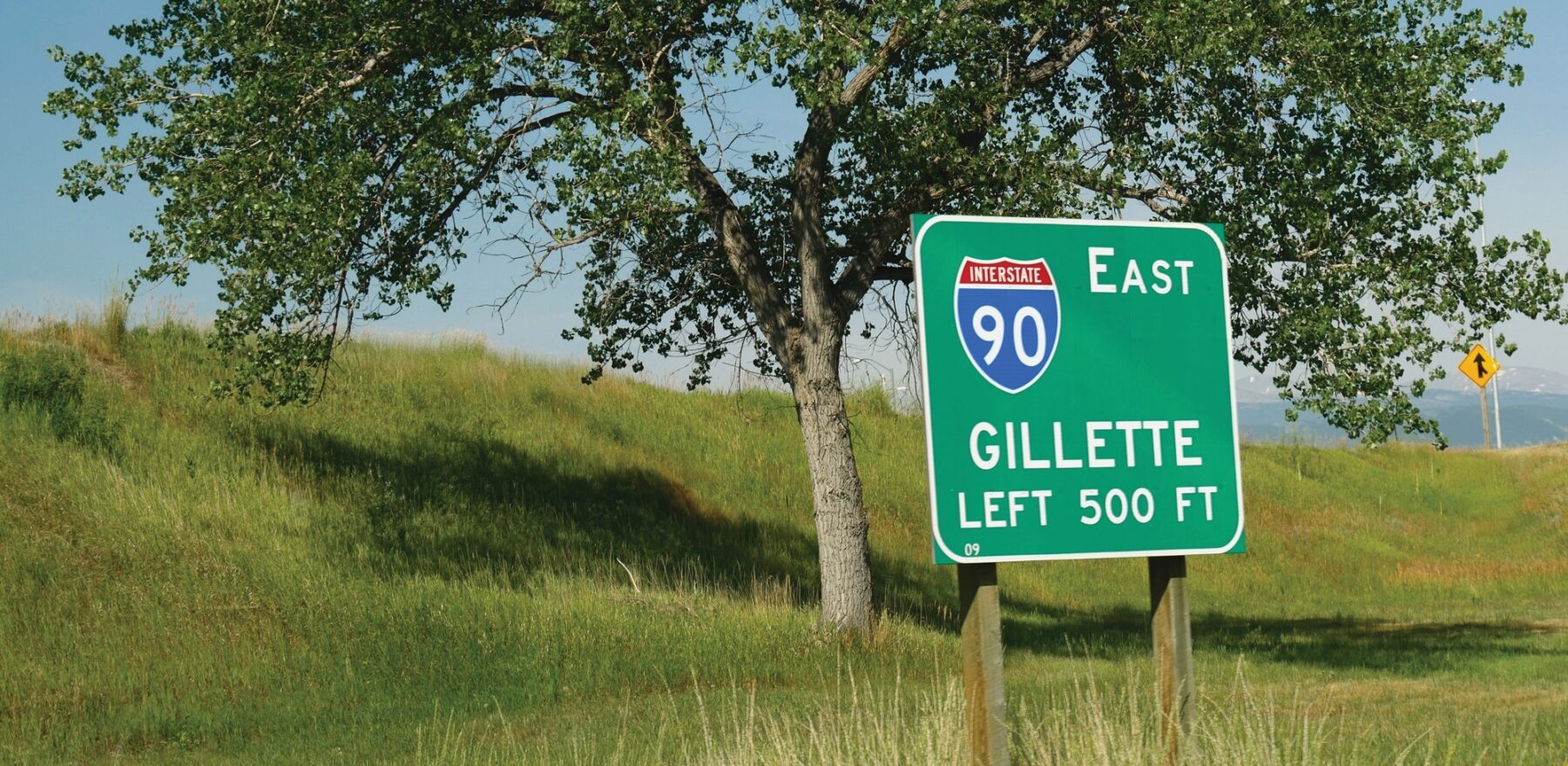
Rusty Bell is the Director of Gillette College’s Office of Economic Transformation, and Justin Loyka is the Wyoming Energy Program Director at the Nature Conservancy. Rusty and Justin are working together to find sustainable, economically viable solutions to the energy transition that is currently taking place in and around Gillette, Wyoming. Gillette and Campbell County, Wyoming have long been leaders in the United States’ coal production business and have been a foundation of West’s economy for decades. But over the past 15 years or so, coal production has decreased by approximately half, which will have far-reaching consequences for Gillette, the state of Wyoming, and the West.
But as coal mining scales back, Gillette is uniquely positioned to capitalize on the rise of renewable energy and the many positive economic and environmental ripple effects that it creates. Campbell County’s landscape, workforce, infrastructure, transmission capabilities, and wildlife migration patterns offer huge opportunities to be a future hotbed of renewable energy. By transitioning reclaimed coal mines into renewable energy sites, Campbell County will not only be able to fill in the economic gap created by the contraction of the coal business, but will be able to allow Gillette to continue its culture of innovation, hard work, and community pride for decades to come.
Rusty was born and raised in Gillette, and Justin’s been living and working in Wyoming for almost 15 years. As you’ll hear, they’ve formed a partnership based on optimism, creativity, respect, and pragmatism, and they are making great strides to bolster the economic and environmental future of northeastern Wyoming. We talked about a lot in this conversation, including: A history of Wyoming’s coal mining business; the culture and community pride of Gillette; why Gillette is a perfect place for renewables; cultural and political views on renewables; wildlife considerations; details around coal mine reclamation, ways to build trust and lasting relationships; and more. Justin and Rusty also share ideas about why they work so well together, and they both offer some great book recommendations and wise parting words.
I loved this conversation and learned so much about not just energy production, but also community pride, pragmatism, problem-solving, and respectful, productive relationships. A huge thanks to Rusty and Justin for joining me, and thank you for listening.
Header photo courtesy of TNC, others courtesy of Rusty and Justin
LISTEN & DOWNLOAD:
Apple Podcasts
Spotify
…or wherever you get your podcasts!
EPISODE PARTNER:
This episode is brought to you in partnership with the Colorado chapter of The Nature Conservancy and TNC chapters throughout the Western United States. Guided by science and grounded by decades of collaborative partnerships, The Nature Conservancy has a long-standing legacy of achieving lasting results to create a world where nature and people thrive.
On the last Tuesday of every month throughout 2024, Mountain & Prairie will be delving into conversations with a wide range of The Nature Conservancy’s leaders, partners, collaborators, and stakeholders, highlighting the myriad of conservation challenges, opportunities, and solutions here in the American West and beyond. You can access all of the episodes here.
To learn more about The Nature Conservancy’s impactful work in the West and around the world, visit www.nature.org
RESOURCES:
Topics Discussed:
- 3:30 – A brief history of the coal business in Wyoming
- 10:00 – The unique culture and economy of Gillette, Wyoming
- 16:30 – Some background on coal mine reclamation
- 22:30 – Why Gillette is such a prime location for renewable energy
- 26:00 – Wildlife considerations
- 29:45 – Transmission capacity considerations
- 31:30 – What is a megawatt?
- 34:00 – The cultural and political acceptance of renewables
- 38:30 – Justin’s approach to building trust in Wyoming communities
- 43:30 – The positive ripple effects of a renewable economy
- 48:30 – What Justin admires about Rusty
- 51:30 – What Rusty admires about Justin
- 53:45 – TNC’s role in this energy and economic transition
- 57:30 – How the new Presidential administration will affect this work
- 1:03:30 – Favorite books
- 1:07:15 – Parting words
Information Referenced:
- Rusty Bell
- Justin Loyka
- A great overview of Rusty and Justin’s partnership
- Gillette, Wyoming
- Campbell County, Wyoming
- Mike Enzi, famed Mayor of Gillette
- Gillette Recreation Center
- Gillette Economic Development
- Coal mine reclamation
- Sagebrush Sea
- Matt Cahill episode
- Powder River Basin
- Peter Gower episode
- Wyoming ungulate migration information
- Wyoming’s Energy Transition Plan
- Wyoming: The Paradox of Plenty by David D Freudenthal
- You Can’t Send a Duck to Eagle School: And Other Simple Truths of Leadership by Mac Anderson and Derek Shetterly
- Blood Meridian: Or the Evening Redness in the West by Cormac McCarthy
- The Once and Future World: Nature As It Was, As It Is, As It Could Be by J.B. MacKinnon
- Ed’s book recs
- Ed’s Good News email
Enjoy this episode? Then you might like these too:
- Dr. Katharine Hayhoe – Effecting Change Through Authentic Conversation
- Mark Easter – Food, Soil, and Our Planet’s Future
- Curt Meine – Aldo Leopold’s Life, Work, and Enduring Legacy
- Mike DeHoff – Exploring the Colorado River’s Reemerging Rapids
- Dr. Sara Dant Returns – “Losing Eden: An Environmental History of the American West”
- SHED SESSION: Everything I Know About Landing a Job in the Conservation World
Visit the podcast page for a full list of episodes where you can filter episodes by topic and guests’ vocations.
Joe Whitworth – On Unrelenting Effort, Blazing Your Own Trail, and Taking Action
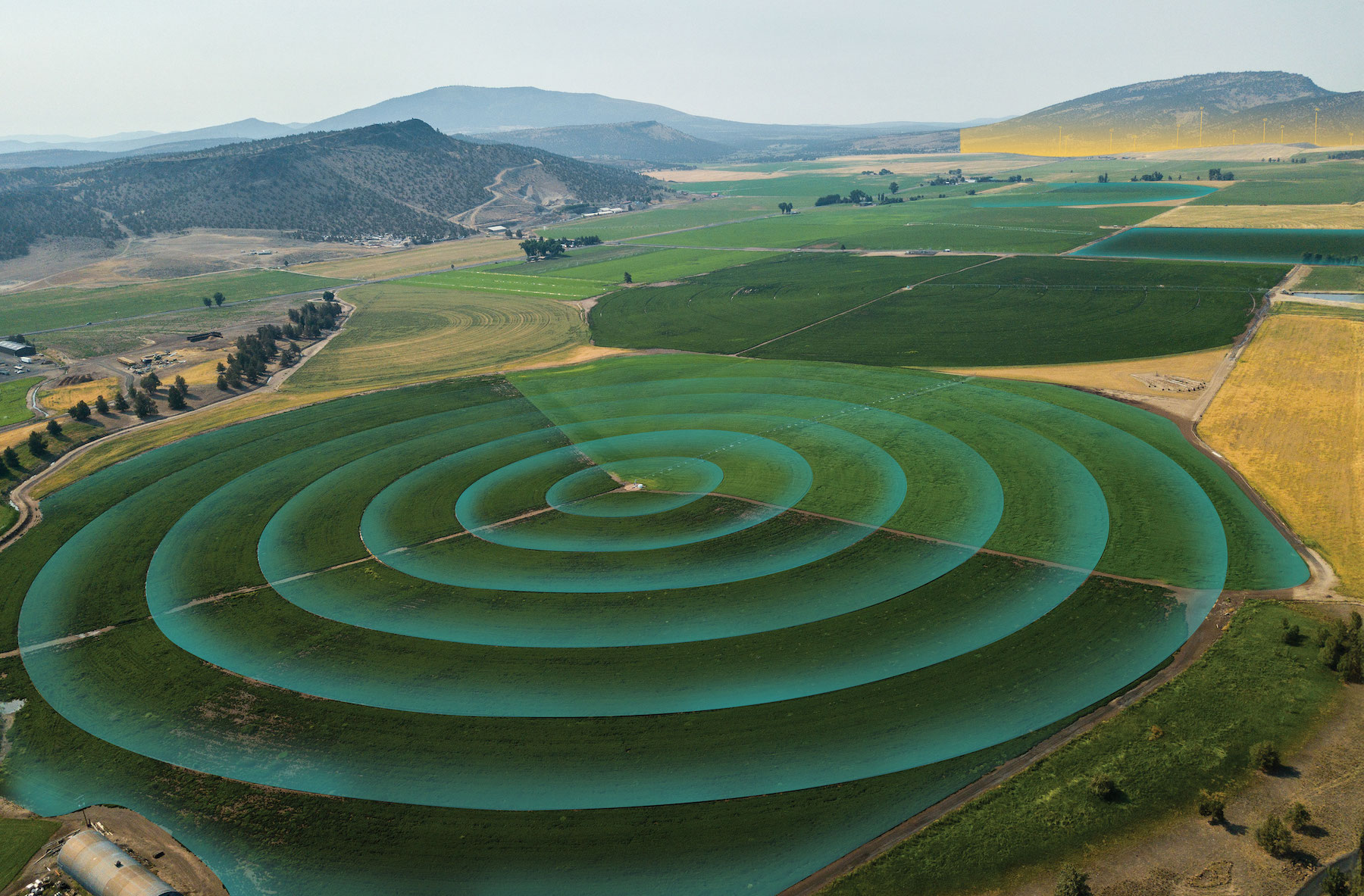
Joe Whitworth is the President and CEO of The Freshwater Trust (“TFT”), an innovative and action-oriented conservation organization whose mission is to preserve and restore freshwater ecosystems. With a focus on technology and an all-star staff made up of scientists, attorneys, GIS experts, systems analysts, and more, TFT is pioneering the next generation of conservation by focusing on quantifiable results. Back when I was a Conservation Director here in Colorado, I had the great pleasure of partnering with TFT on a project involving water rights and irrigated farmland, and I was blown away by the organization’s ability to quickly put complex ideas into action for the benefit of land, water, and communities.
Joe was born into a large Midwestern family, and from an early age, his grandfather, who was a farmer, played a foundational role in his understanding of land, water, and conservation. After high school, Joe moved east to attend Dartmouth, where he played football, and then he eventually moved West to attend law school. Along the way, he began to focus his professional efforts on doing work that made the world a better place. After several stints at several different organizations, he took the reins of the organization that would eventually become The Freshwater Trust. Joe has now been at the helm of TFT for more than two decades and has grown the organization’s budget tenfold during his tenure. He’s focused, action-oriented, innovative, and very serious about solving big, complex conservation problems in the West and beyond.
As you’ll hear, Joe and I share many common interests in everything from history to reading to conservation to rivers, and, perhaps more importantly, I connect deeply with many of Joe’s core values around hard work, following your own path, and taking action. So, it’s no surprise that we had such a fun conversation. We start out talking about Joe’s grandfather, Joe’s journey from the Midwest to the Ivy League, and how he adjusted to life at Dartmouth. We talk about his early years working as a non-profit consultant and the series of events that led him to The Freshwater Trust. We discuss the ultimatum that led to TFT’s impressive growth, the type of people who thrive as staff members, and he gives an overview of their BasinScout technology. We discuss the future of environmentalism, technology’s role in solving environmental challenges, favorite books, and much more.
As I said, I’ve been a fan of TFT for many years, so I was so glad to finally have this opportunity to chat with Joe about his personal and professional operating systems. I hope you enjoy.
—
Photos courtesy of The Freshwater Trust
LISTEN & DOWNLOAD:
Apple Podcasts
Spotify
… or wherever you get your podcasts!
—
RESOURCES:
Topics Discussed:
- 3:00 – Joe’s grandfather and his lasting influence
- 9:00 – Unexpected blessings from a broken femur
- 13:00 – Adjusting to the Ivy League culture
- 16:15 – Next moves after Dartmouth
- 21:30 – Living like a monk and figuring out next steps
- 25:30 – “The world is designed to make you shut up and get in line.”
- 28:45 – Law school and beginnings at the Freshwater Trust
- 29:00 – Revamping The Freshwater Trust
- 34:00 – The board’s reaction to Joe’s plans for the future
- 39:00 – The importance of making hard decisions
- 43:45 – The magic of The Freshwater Trust team
- 47:45 – An overview of BasinScout
- 51:15 – A foundational BasinScout case study
- 58:30 – Ideas and areas of focus on the horizon
- 1:01:00 – The importance of taking action
- 1:03:30 – Next phase of environmentalism
- 1:06:00 – How TFT’s values meld with Joe’s personal values
- 1:09:00 – Expectations of new team members
- 1:12:00 – The TFT model of handing off new ideas and innovation to partners
- 1:16:00 – Favorite books
Information Referenced:
- Joe Whitworth
- The Freshwater Trust
- Clean Water Act
- Buddy Teevans
- Dartmouth
- Harry Denton’s
- Bobby Clark
- CCS
- Outward Bound
- Lewis and Clark College
- Paul Fortino
- No Child Left Inside
- The TFT team
- BasinScout and other tools
- Rogue River Case Study
- TFT Core Values
- Beyond the Hundredth Meridian: John Wesley Powell and the Second Opening of the West by Wallace Stegner
- The Dreamt Land: Chasing Water and Dust Across California by Mark Arax
- Good to Great: Why Some Companies Make the Leap…And Others Don’t by Jim Collins
- Yvon’s 5-15 Report
- Growing a Business by Paul Hawken
- The Obstacle is the Way Expanded 10th Anniversary Edition: The Timeless Art of Turning Trials into Triumph by Ryan Holiday
- The Accidental Connoisseur: An Irreverent Journey Through the Wine World by Lawrence Osborne
- American Nations: A History of the Eleven Rival Regional Cultures of North America by Colin Woodard
Enjoy this episode? Then you might like these too:
- Kristine Tompkins – Nothing to Lose
- Nick Offerman – Empathy, Nuance, & Good Hard Work
- Mike DeHoff – Exploring the Colorado River’s Reemerging Rapids
- Sandy Colhoun – Building Leaders Through Outdoor Education
- Douglas Brinkley – Exploring the Past to Find Inspiration for the Future
- Frances Ashforth – Art, Water, and Wide-Open Spaces
- Pete McBride Returns – Exploring & Documenting His Backyard River
- Curt Meine – Aldo Leopold’s Life, Work, and Enduring Legacy
Visit the podcast page for a full, searchable list of episodes
Jesse Smith – A Regenerative Approach to Land and Life
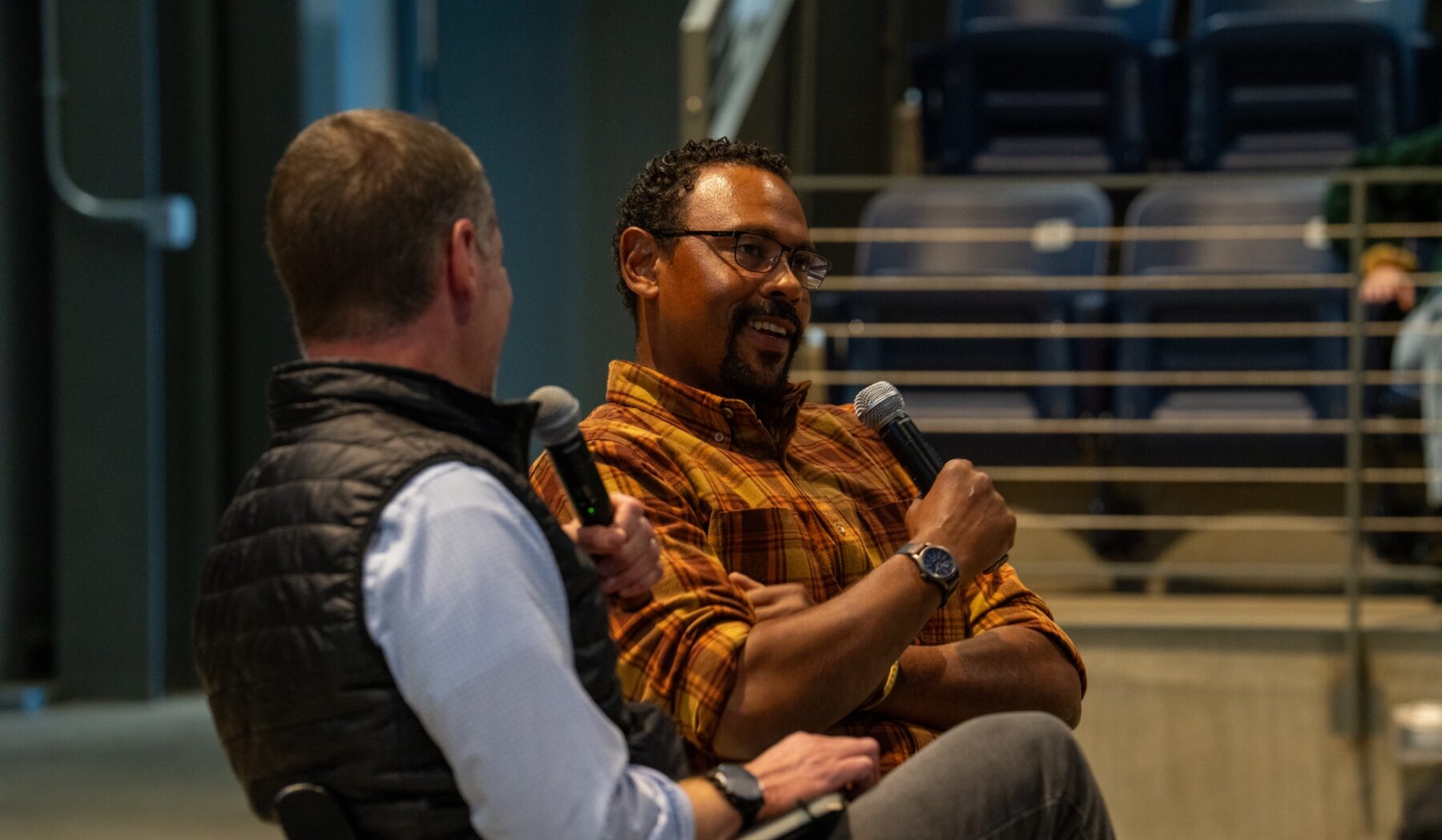
Jesse Smith is the Director of Land Stewardship at the White Buffalo Land Trust, which is a global hub for regenerative land stewardship, ecological monitoring and research, education, and more. Jesse brings a unique perspective and a diverse set of experiences to his work in regenerative agriculture– his early interest in architecture led him to pursue an education in design, which then led to a career in product design and visual communication. But over time, he became interested in combining his artistic sensibilities with his love of the land, science, and permaculture, and soon thereafter began his journey in the world of family farming, food production, and education. Jesse is now a leader in the world of regenerative ag, and, as you’ll hear, he has a real gift for communicating the art and science of land stewardship.
This conversation was recorded in November of 2024 on stage at the REGENERATE conference– one of the country’s foremost gatherings of regenerative agriculture practitioners and thought leaders. REGENERATE is a collaboration between the Quivira Coalition, Holistic Management International, and the American Grassfed Association, and the conference attracts fascinating people from all over the world to share knowledge, build community, and create a culture of resilience and regeneration.
Despite sitting on stage in front of an auditorium full of people, this conversation felt much more like a fun one-on-one discussion between two friends. We covered everything from Jesse’s winding path into the world of agriculture to some of the more technical details around land monitoring and certifications. We discussed the natural disasters in Jesse’s community that highlighted huge problems in the local food systems, which eventually led to the creation of the White Buffalo Land Trust. We discussed how Jesse prioritizes his work when there are so many urgent challenges to address, and he shares his experiences with big business’s growing interest in regenerative ag. We talk about the Japanese concept of Ikigai, transforming inspiration into action, advice for building a career in regenerative ag, favorite books, and much more. We also allowed ample time for Q&A from the audience, which I know you’ll enjoy.
Jesse mentions tons of useful resources so be sure to visit the episode notes for a full list of topics we discussed and links to everything. A huge thanks to the team at REGENERATE for inviting me to the conference, thank you to Jesse for chatting with me and offering so much wisdom, and thanks to you for listening.
The episode starts out with an introduction from Sarah Wentzel-Fisher, who is the Executive Director of the Quivira Coalition and a past Mountain & Prairie podcast guest. Hope you enjoy!
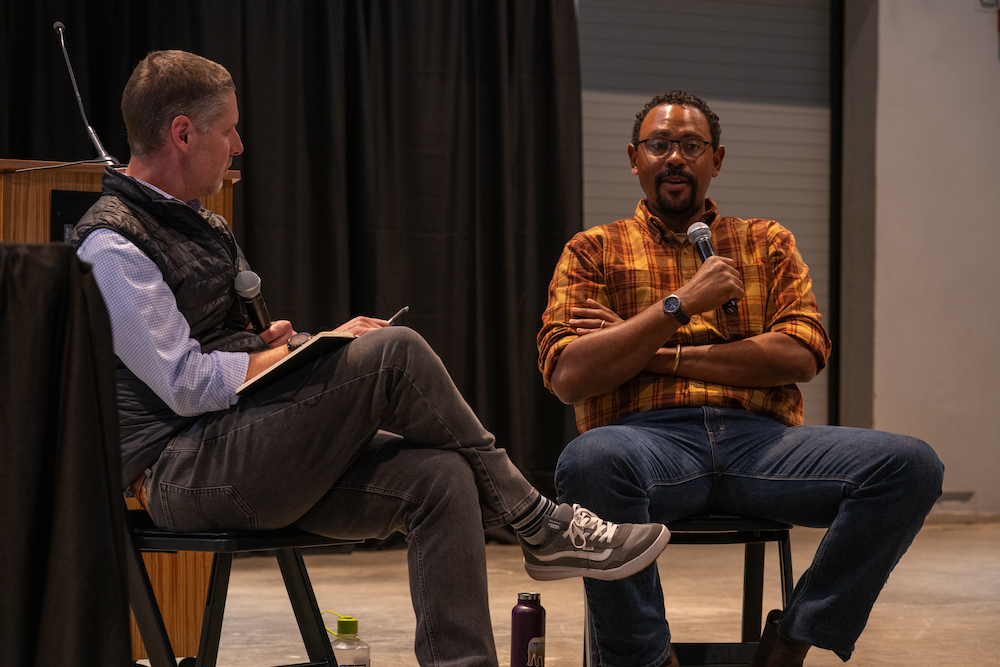
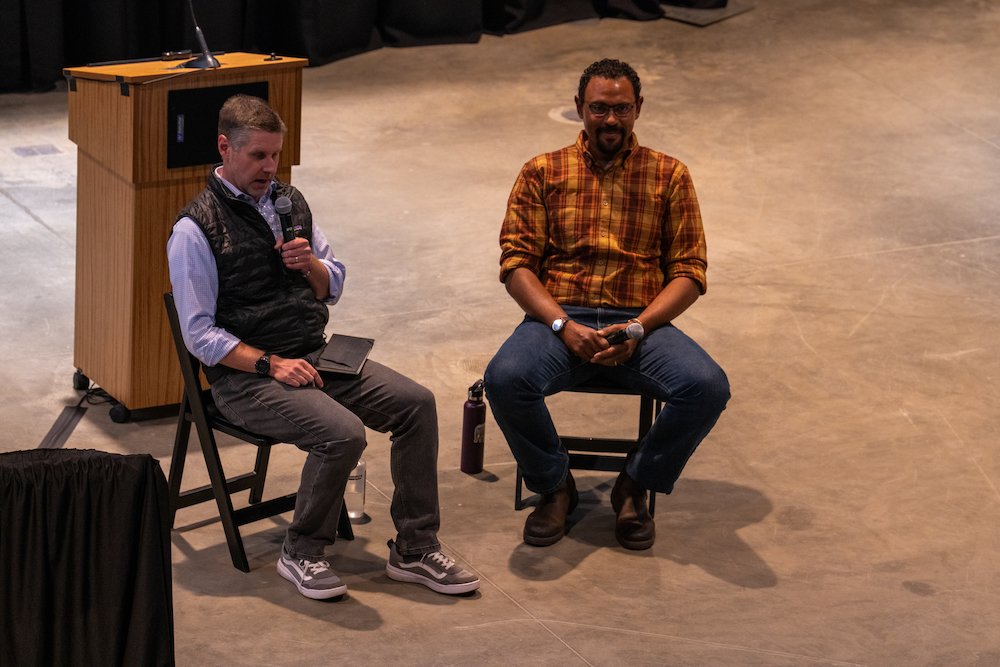
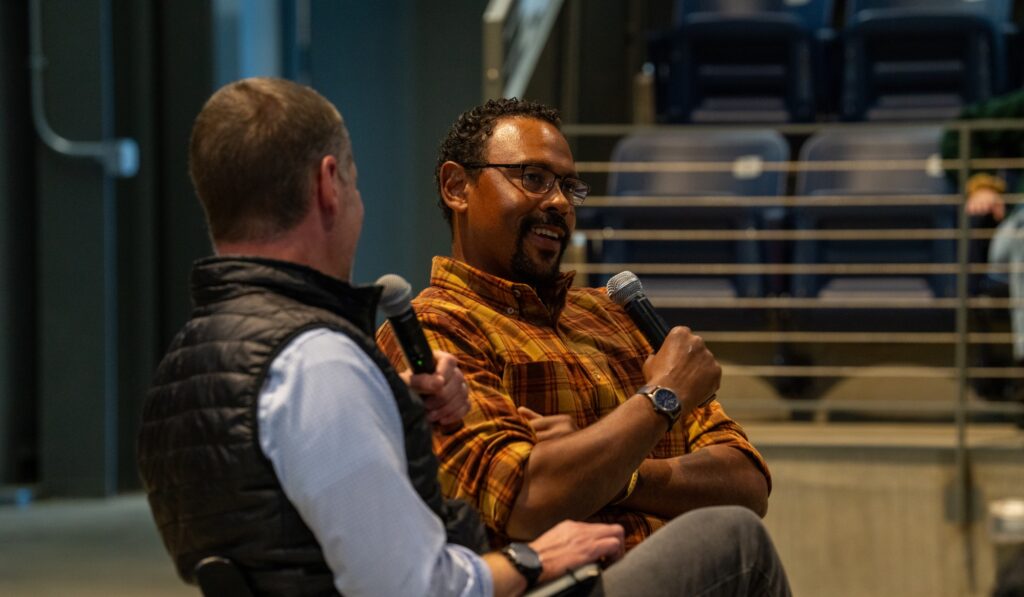
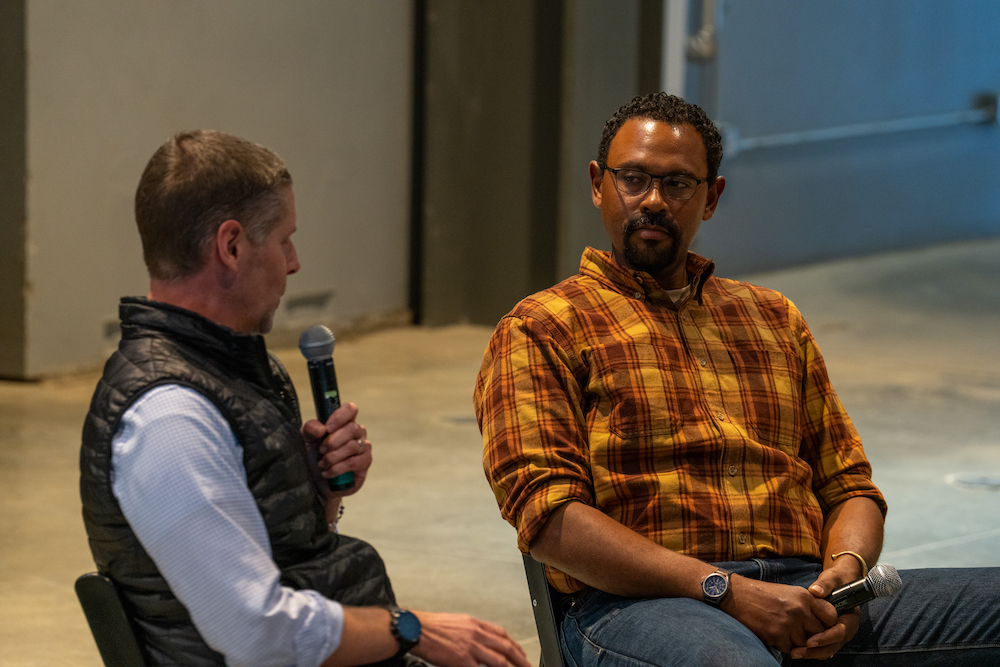
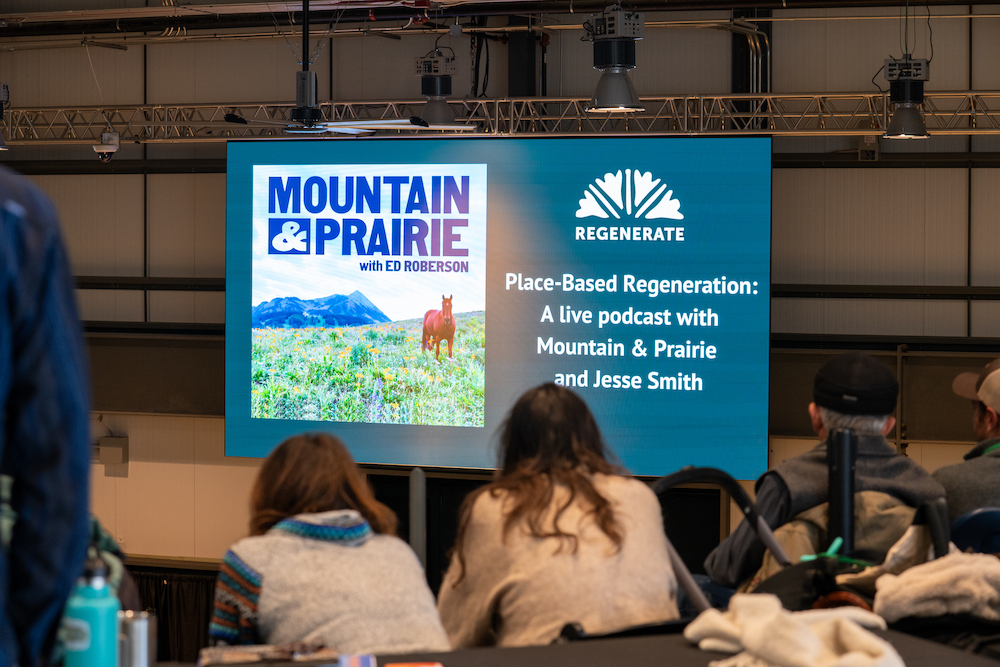
—
Photos courtesy of the Quivira Coalition and REGENERATE, headshot courtesy of Jesse Smith
LISTEN & DOWNLOAD:
Apple Podcasts
Spotify
… or wherever you get your podcasts!
You can also watch it on YouTube:
RESOURCES:
Topics Discussed:
- 3:00 – An introduction from Quivira’s Executive Director, Sarah Wentzel-Fisher
- 4:45 – Ed’s introduction
- 8:00 – Jesse’s early years and path into conservation
- 12:15 – Recognizing the community need that led to the creation of the White Buffalo Land Trust
- 16:00 – How Jesse prioritizes his work at the White Buffalo Land Trust
- 21:45 – Thoughts on big business’s interest in regenerative agriculture
- 27:05 – The complexity of regenerative certifications
- 32:45 – Predictions about the future of regenerative certifications
- 35:30 – Advice for people who want to work in regenerative ag
- 41:00 – Translating inspiration into action
- 45:30 – Audience Q&A: How do stories and on-the-ground experiences help to change people’s minds?
- 50:43 – Audience Q&A: Why is the burden on regenerative producers to get certifications to prove that they are doing it correctly?
- 54:15 – Audience Q&A: Thoughts on the new administration bringing regenerative practitioners into the FDA?
- 59:20 – Audience Q&A: How do we create more accessibility around regenerative ag?
- 1:03:10 – Audience Q&A: How does regenerative ag play a role in procurement by institutional buyers?
- 1:05:00 – Audience Q&A: What is the source of people’s disconnect with food and what is one step to bridge that gap?
- 1:08:20 – Audience Q&A: What are some planning strategies to help balance stewardship and profitability
- 1:12:05 – Audience Q&A: What is the lay of the land when it comes to certifications across a broad range of markets?
- 1:16:15 – Jesse’s book recommendations
Information Referenced:
- REGENERATE conference
- Sarah Wentzel-Fisher
- Quivira Coalition
- Holistic Management International
- American Grassfed Association
- Jesse Smith
- White Buffalo Land Trust
- Figure Ate Foods
- 2015 California Wildfires
- Thomas Fire
- Steve Finkle
- Jamala Canyon Ranch
- Regenerative Agriculture
- Biodynamic Ag
- Greenwashing
- Greenhushing
- ExpoWest
- Patagonia
- Dr. Bronners
- Regenerative Organic Certified
- Savory’s EOV Protocol
- Green America
- Audubon Conservation Ranching
- Ikigai
- Will Harris
- Joel Salatin
- Farmprenuers
- Common Ground
- Richard’s Regenerative
- Bionutrient Food Association
- Nutrient Density Alliance
- Dune by Frank Herbert
- The Third Plate by Dan Barber
- Basque Country: A Culinary Journey Through a Food Lover’s Paradise by Marti Buckley
Enjoy this episode? Then you might like these too:
- Kristine Tompkins – Nothing to Lose
- Curt Meine – Aldo Leopold’s Life, Work, and Enduring Legacy
- Celene Hawkins & Izabella Ruffino – Tribal Partnerships, Indigenous Voices, Cutting-Edge Conservation
- Jenna Pollard – Timber Framing, Organic Farming, Community, and Purpose
- Nick Offerman – Empathy, Nuance, & Good Hard Work
- Rebuilding a Resilient, Regional Meat Supply Chain – LIVE at the Old Salt Festival
- Kate Mannix – A Legacy of Land Stewardship
- Daniela Ibarra-Howell – Healing the Land Holistically
Visit the podcast page for a full, searchable list of episodes
Nichole Barger – Science as a Catalyst for Human Connection
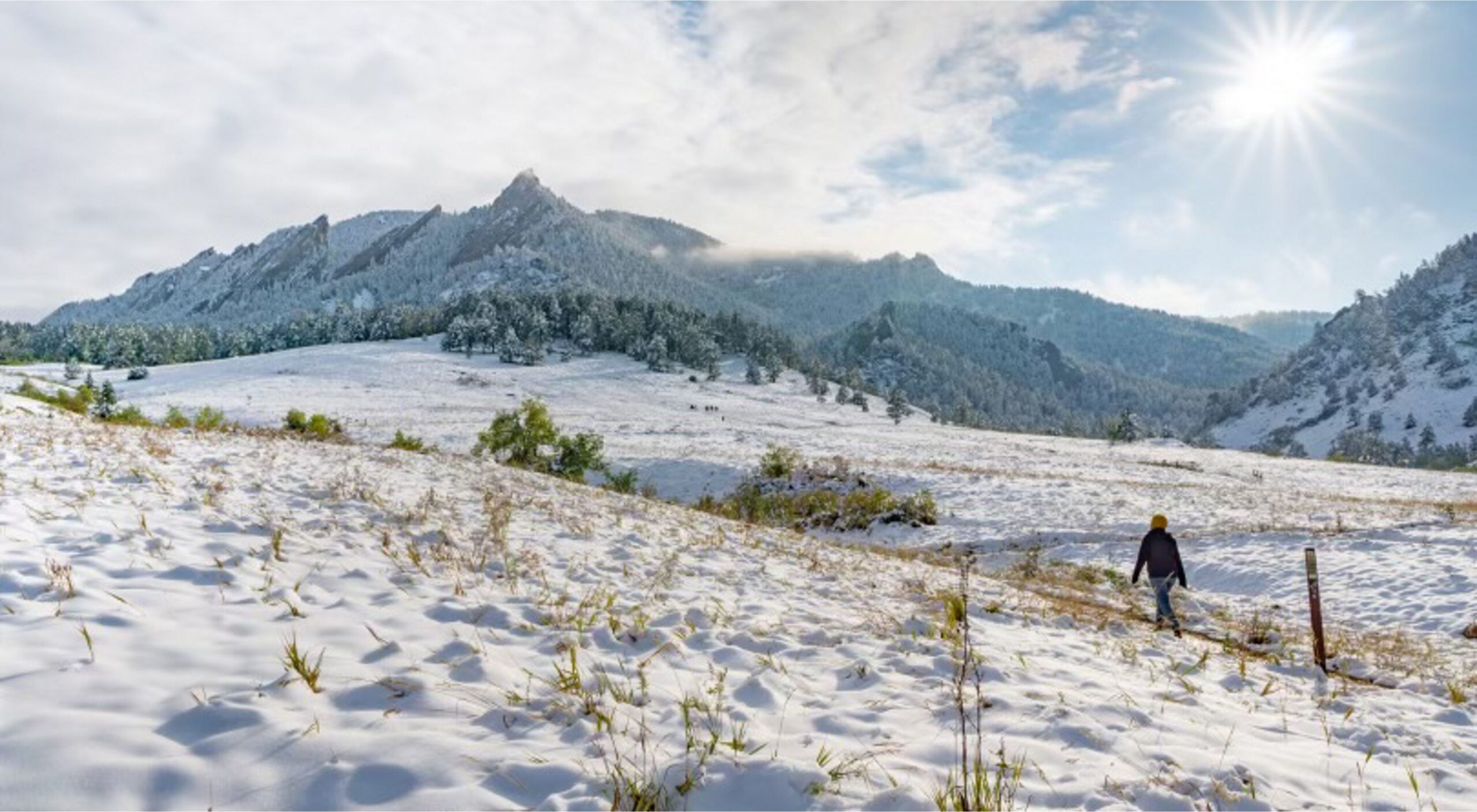
Nichole Barger is an ecologist, former university professor, and the current deputy chief scientist and lead global scientist for The Nature Conservancy. She earned her master’s degree from the University of California at Berkeley and her PhD from Colorado State University, and her career has included extensive time researching, teaching, and practicing on-the-ground, frontline conservation on issues including land degradation, restoration, and more. Prior to assuming her current position at TNC, she was the research director of the Canyonlands Research Center located at the Dugout Ranch, which you may remember as the subject of a Mountain & Prairie episode back in August of 2024.
Given her distinguished career as a scientist, you might be surprised to learn that Nichole never considered pursuing science as a vocation until the second half of her time in college. She grew up in small-town Indiana, and, although she was extremely curious, a great student, and a voracious reader, she was not particularly enamored with science and didn’t know anyone who worked as a scientist. But during college, a supportive-yet-casual comment from one of her professors planted the seed that science could be an option. Fast forward to today, she has published more than 70 peer-reviewed papers, she co-chairs the Science Policy Interface group of the UN Convention to Combat Desertification, and she leads many of TNC’s cutting-edge science initiatives.
As you’ll hear, Nichole brings a deep level of empathy, curiosity, and open-mindedness to all of her work as a scientist. Whether she’s teaching, researching, or working with conservation stakeholders, she never loses sight of the importance of human connection. We spent the first half of the conversation discussing lessons learned from her nontraditional path into the world of science, including a two-year stint where she left college to travel and explore the United States. We discussed her renewed focus on academics when she returned to school, and the moment that professor planted the seed that eventually grew into her career in science. We discuss teaching versus research, how she evolved as an educator and mentor to college students, and when she decided to apply her talents to TNC’s mission. We discuss TNC’s incorporation of Indigenous wisdom and science into its work, human health as a conservation initiative, and the importance of face-to-face human interactions. She also offers some excellent book recommendations and ideas for remaining optimistic and action-oriented during challenging times.
There’s so much wisdom packed into this episode, so be sure to check out the episode notes for a complete list of topics and links to everything. A huge thanks to Nichole for the great conversation and thank you for listening.
Photos courtesy of TNC: Header © Dave Hebert, headshot © Garrett Herndon
LISTEN & DOWNLOAD:
Apple Podcasts
Spotify
…or wherever you get your podcasts!
EPISODE PARTNER:
This episode is brought to you in partnership with the Colorado chapter of The Nature Conservancy and TNC chapters throughout the Western United States. Guided by science and grounded by decades of collaborative partnerships, The Nature Conservancy has a long-standing legacy of achieving lasting results to create a world where nature and people thrive.
On the last Tuesday of every month throughout 2024, Mountain & Prairie will be delving into conversations with a wide range of The Nature Conservancy’s leaders, partners, collaborators, and stakeholders, highlighting the myriad of conservation challenges, opportunities, and solutions here in the American West and beyond. You can access all of the episodes here.
To learn more about The Nature Conservancy’s impactful work in the West and around the world, visit www.nature.org
RESOURCES:
Topics Discussed:
- 4:00 – Nichole’s upbringing and early years
- 7:45 – Taking a non-traditional path and her parents’ reaction
- 9:30 – Lessons learned from her two-year break
- 11:00 – Books read in high school that gave Nichole confidence to follow her own path
- 12:30 – Returning to school with a renewed focus
- 15:30 – Advice to college students who are trying to find their way in the world
- 18:15 – Her journey to becoming a successful scientist
- 20:30 – Research versus teaching
- 22:45 – Lessons learned from years of teaching
- 26:30 – When and how TNC became a professional focus
- 29:30 – Nichole describes her current job at TNC
- 31:15 – Incorporating Indigenous knowledge into TNC’s science work
- 40:00 – The importance and power of weaving in Indigenous knowledge
- 43:00 – Human health as a conservation initiative
- 47:00 – “Doom and Gloom” is not a motivating strategy
- 50:00 – Online resources for news and science (that won’t make you crazy)
- 52:00 – The importance of being with people
- 53:15 – The most exciting project Nichole is working on
- 55:00 – What can the average person do to take action and make a difference
- 59:00 – Book recommendations
- 1:03:00 – Parting words of wisdom
Information Referenced:
- Nichole Barger
- Science programs at TNC
- Wheatfield, Indiana
- Evergreen State College
- UC Berkeley
- Colorado State University
- University of Colorado at Boulder
- Flipped classroom
- BLM
- Colorado Plateau
- Canyonlands Research Center
- United Nations – UNCCD Science-Policy Interface
- Dugout Ranch
- Heidi Redd and Sue Bellagamba podcast
- Celene Hawkins and Izabella Ruffino
- Leave It As It Is by David Gessner
- The Gifts of Imperfection by Brene Brown
- Thinking, Fast and Slow by Daniel Kahneman
Enjoy this episode? Then you might like these too:
- Dr. Katharine Hayhoe – Effecting Change Through Authentic Conversation
- Mark Easter – Food, Soil, and Our Planet’s Future
- Kristine Tompkins – Nothing to Lose
- Dr. Emily Howe – The Interconnectedness of Mountains, Forests, Rivers, and Estuaries
- Dr. Sara Dant Returns – “Losing Eden: An Environmental History of the American West”
- Curt Meine – Aldo Leopold’s Life, Work, and Enduring Legacy
Visit the podcast page for a full list of episodes where you can filter episodes by topic and guests’ vocations.
Mark Easter – Food, Soil, and Our Planet’s Future
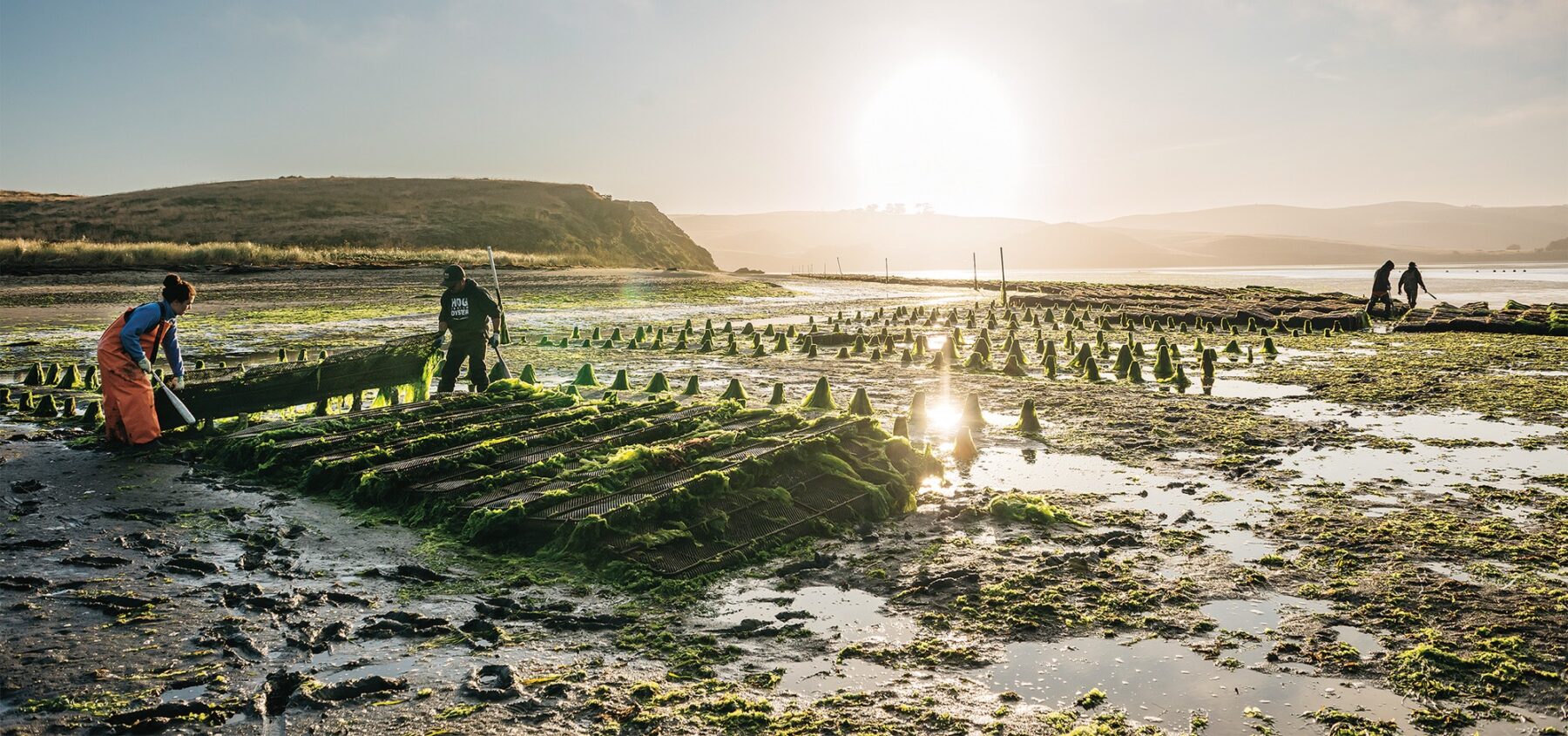
Mark Easter is a Colorado-based ecologist and author whose new book is titled The Blue Plate: A Food Lover’s Guide to Climate Chaos. If you care about food and you care about Planet Earth, The Blue Plate is a must-read. It explores the production, consumption, and disposal of many of our favorite foods– seafood, salad, bread, chicken, steak, potatoes, ice cream, and more– and offers a thoughtful and nuanced analysis of these foods’ impacts on the environment. This is not a gloom-and-doom climate change book, nor does it have the condescending tone that sometimes accompanies many climate-related readings. While Mark is crystal clear about the massive threats facing our planet, this is a book built on the ideals of optimism, ingenuity, and taking action. I loved it.
Mark lives and works in Fort Collins and has conducted research in academia and private industry since 1988. He has enjoyed a very successful and impactful career at Colorado State University, and he has authored and co-authored more than 50 scientific papers and reports related to carbon cycling and the carbon footprint of agriculture, forestry, and other land uses. But Mark also has a real gift for storytelling and for breaking down enormously complex topics into understandable and enjoyable writing. His writing is personal, educational, and fun to read, and I credit Mark and The Blue Plate with helping me to finally fully understand issues around greenhouse gas emissions and carbon sequestration.
Mark and I met up a few weeks ago at CSU and had a fun and nuanced conversation about food, agriculture, and the climate. We started by discussing why he refers to himself as a “greenhouse gas accountant,” and he offers an excellent explanation of soil’s all-important role in balancing the release and capture of carbon on Planet Earth. We talk about how grasslands, jungles, and mangroves sequester carbon, and how and why the destruction of any of these ecosystems negatively affects the planet. We discuss Mark’s ten-year process of writing this book and how Patagonia Books helped him bring his vision to life. We discuss how methane is produced by everything from reservoirs to ruminants, and why that particular greenhouse gas is more harmful than the others. We discuss regenerative agriculture, meat production, composting, and personal diet choices, and Mark offers a long list of excellent book recommendations.
We barely scratched the surface of all of the fascinating topics in The Blue Plate, so if you enjoy this conversation, I’d encourage you to pick up a copy of the book and dig in. I know you’ll enjoy it and learn a lot.
—
Photos courtesy of Patagonia, Header © Remy Anthes,
LISTEN & DOWNLOAD:
Apple Podcasts
Spotify
… or wherever you get your podcasts!
—
RESOURCES:
Topics Discussed:
- 3:00 – Intro and how Mark describes his work
- 7:15 – Parallels between carbon accounting and business accounting
- 13:45 – An overview of soil and carbon
- 21:30 – Carbon in grasslands vs jungles vs mangroves
- 25:00 – How and why Mark decided to write this book
- 33:00 – The ten-year process of writing the book
- 37:00 – Greenhouse gases explained
- 40:00 – Methane feedback loop explained
- 43:30 – A fascinating story about methane in Lake Powell
- 46:15 – Reservoirs and evaporation
- 47:00 – The most difficult chapter to write: Ruminants and meat
- 55:30 – The increasing global demand for meat
- 58:00 – Taking action and personal responsibility
- 1:01:30 – Personal responsibility versus regulation
- 1:04:00 – A helpful way to understand carbon quantities
- 1:06:00 – Carbon consequences of transforming forests to grasslands
- 1:09:00 – All about composting
- 1:13:00 – Business opportunities in regenerative agriculture
- 1:16:30 – Favorite books
- 1:22:15 – Parting words
Information Referenced:
- Mark Easter
- The Blue Plate: A Food Lover’s Guide to Climate Chaos
- Keith Paustian
- Intergovernmental Panel on Climate Change
- Marlen Eve
- Stephen Ogle
- Bill Parton
- Excited Skin of the Planet
- Video: Soil Organic Matter: Humanity’s True Capital by Francesca Cotrufo, PhD
- Melannie Hartman
- SueEllen Campbell
- The Soil Will Save Us: How Scientists, Farmers, and Foodies Are Healing the Soil to Save the Planet by Kristin Ohlson
- Kiss the Ground
- John Calderazzo
- Rachel Carson
- Doug Brinkley interview
- Aldo Leopold
- EO Wilson
- Barbara Kingsolver
- Greenhouse gases
- Methane feedback loop
- Into the Clear Blue Sky: The Path to Restoring Our Atmosphere by Rob Jackson
- Cod: A Biography of the Fish that Changed the World by Mark Kurlansky
- Prairyerth: A Deep Map by William Least Heat-Moon
- Animal, Vegetable, Miracle: A Year of Food Life by Barbara Kingsolver
- A Sand County Almanac: And Sketches Here and There by Aldo Leopold
- Coming Home to Eat: The Pleasures and Politics of Local Foods by Gary Paul Nabhan
- Silent Spring by Rachel Carson
- Laura Pritchett
Enjoy this episode? Then you might like these too:
- Dr. Katharine Hayhoe – Effecting Change Through Authentic Conversation
- Mike DeHoff – Exploring the Colorado River’s Reemerging Rapids
- Pete McBride Returns – Exploring & Documenting His Backyard River
- Kristine Tompkins – Nothing to Lose
- Dr. Emily Howe – The Interconnectedness of Mountains, Forests, Rivers, and Estuaries
- Matt Cahill – A Deep Dive into the Sagebrush Sea
- Lorelei Cloud – Solving Modern-Day Challenges with Ancient Tribal Wisdom
- Rick Ridgeway – Purpose-Driven Adventurer
Visit the podcast page for a full, searchable list of episodes
Kelsey Molloy & Angel DeVries – Fortifying Grasslands and Communities on the Northern Great Plains
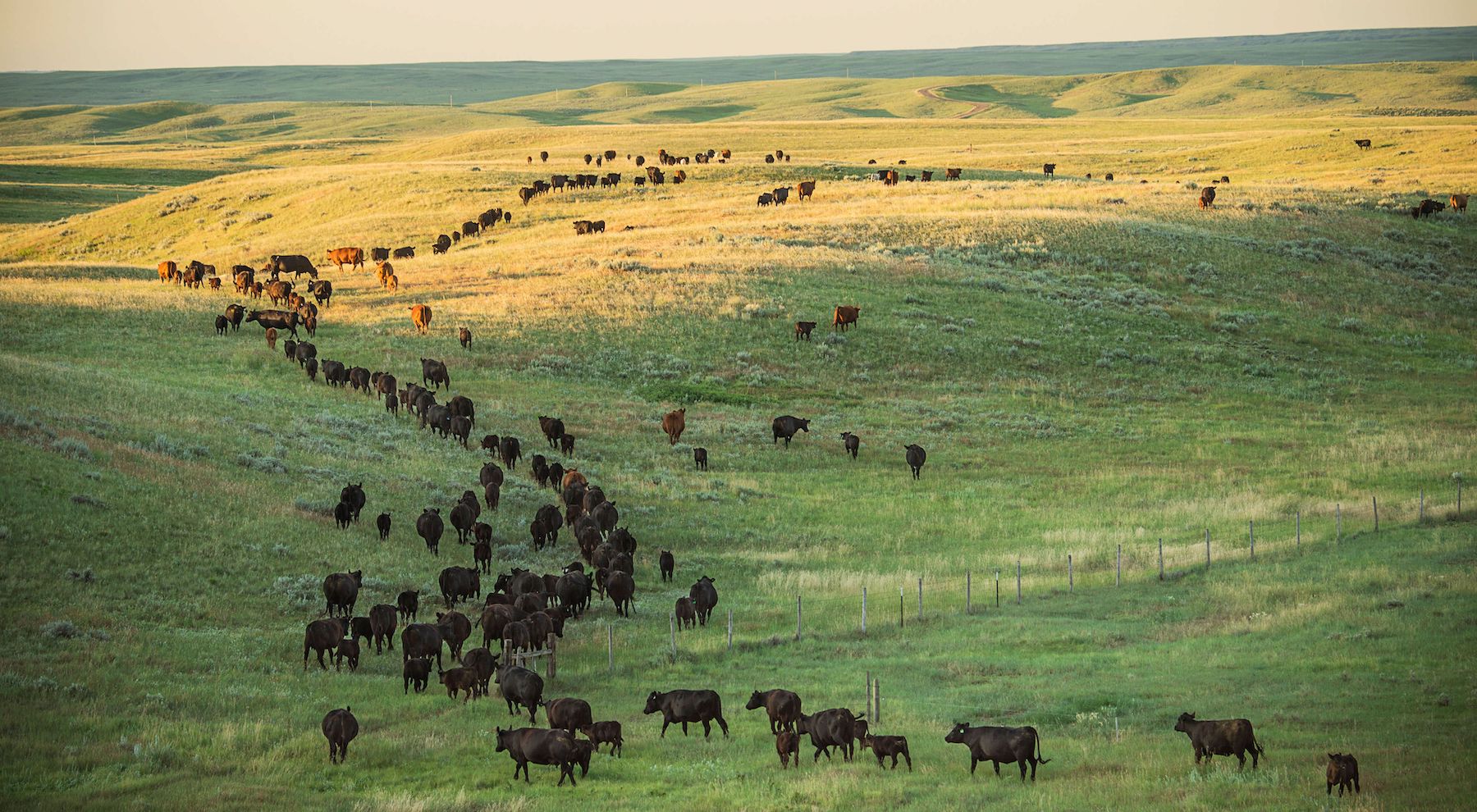
Kelsey Molloy is the Northern Great Plains Director at The Nature Conservancy and Angel DeVries is the Executive Director of the Ranchers Stewardship Alliance (RSA), and they both live and work on the Northern Great Plains in Malta, Montana. While they work for different organizations, Kelsey and Angel collaborate on a long list of critical projects, most of which are focused on grassland conservation, ranching, and community partnerships.
One of their most notable collaborations involves the Matador Ranch, a 60,000-acre TNC-owned property near Dodson, Montana. The Matador Ranch is home to an outside-the-box conservation initiative known as a grassbank, which is a partnership opportunity that offers ranchers grazing access to rich grasses in exchange for adopting sustainable practices on their own property.
This grassbank was introduced during the historic drought of the early 2000s, and it offered much needed grazing opportunities for ranching families whose homeplaces had been hit hard by the dry conditions. Since then, for the past 20+ years, the grassbank has continued to provide win-win solutions for ranchers and conservation-focused non-profit organizations, as well as helping to bolster trust, goodwill, and community cohesiveness.
As you’ll hear in this conversation, the grassbank has been such a success, the TNC is currently searching for another ranch to acquire and eventually transform into a community led and owned grassbank. This “grassbank 2.0” will not only provide a grazing safety net during times of drought, but will also further the work of providing opportunities for new or young ranchers who are just entering the business but do not yet have the capital to purchase their own land.
We connected via the magic of the internet, and had a wide-ranging conversation about their productive collaboration, grassbanks, challenges and opportunities in the Northern Great Plains, and more. We discussed the work of the Ranchers Stewardship Alliance, the history of the Matador Ranch, and the ins and outs of the Matador Ranch grassbank. We discussed how skyrocketing land values are making it nearly impossible for new ranchers to enter the business, and also how succession planning is becoming an important, but often underappreciated, issue for ranching families. We also talked a lot about the need for optimism and curiosity, the importance of building community, and how TNC and RSA are working to bridge cultural and geographic divides. We also learn about RSA’s book club, which will likely be of great interest to many of you.
I learned so much from this conversation and appreciate Kelsey and Angel taking time out of their busy schedules to chat with me. Hope you enjoy!
Header photo © Ami Vitale/TNC, headshots courtesy of Kelsey and Angel
LISTEN & DOWNLOAD:
Apple Podcasts
Spotify
…or wherever you get your podcasts!
EPISODE PARTNER:
This episode is brought to you in partnership with the Colorado chapter of The Nature Conservancy and TNC chapters throughout the Western United States. Guided by science and grounded by decades of collaborative partnerships, The Nature Conservancy has a long-standing legacy of achieving lasting results to create a world where nature and people thrive.
On the last Tuesday of every month throughout 2024, Mountain & Prairie will be delving into conversations with a wide range of The Nature Conservancy’s leaders, partners, collaborators, and stakeholders, highlighting the myriad of conservation challenges, opportunities, and solutions here in the American West and beyond. You can access all of the episodes here.
To learn more about The Nature Conservancy’s impactful work in the West and around the world, visit www.nature.org
RESOURCES:
Topics Discussed:
- 4:00 – Kelsey and Angel introduce themselves
- 8:10 – Background on the Ranchers Stewardship Alliance (RSA)
- 10:00 – A few of the biggest challenges facing Great Plains ranchers
- 15:30 – The history of the Matador Ranch and the grassbank
- 22:00 – Lessons learned from the grassbank
- 24:15 – A local’s perspective on the grassbank
- 25:30 – Wildlife-friendly fencing explained
- 26:30 – Other examples of grassbanks
- 30:15 – Emerging plans for a new grassbank
- 33:45 – Steps involved in finding a new property
- 36:00 – Success stories from the Matador Ranch
- 41:00 – Easements as a tool for grasslands restoration
- 43:45 – Importance of positivity and optimism
- 48:45 – Importance of optimism
- 52:00 – Important books
- 56:15 – RSA book club
- 59:45 – Words of wisdom
Information Referenced:
- Kelsey Molloy
- Angel DeVries
- TNC Montana
- Ranchers Stewardship Alliance
- Matador Ranch
- Malta, MT
- AUM
- Matt Morehead
- Amber Smith
- Winnett ACES
- Bowdoin National Wildlife Refuge
- Plowprint report from World Wildlife Fund
- Pioneer Cattleman in Montana: The Story of the Circle C Ranch by Walt Coburn
- Dirt: The Erosion of Civilizations by David R. Montgomery
- Nature’s Best Hope: A New Approach to Conservation That Starts in Your Yard by Douglas W. Tallamy
- The Unabomber Manifesto: Industrial Society and Its Future
- Brené Brown
- Atomic Habits: An Easy & Proven Way to Build Good Habits & Break Bad Ones by James Clear
- Start with Why: How Great Leaders Inspire Everyone to Take Action by Simon Sinek
- Otters Dance: A Rancher’s Journey to Enlightenment and Stewardship by Bob Budd
- RSA Book Club and other events
- Elaine Froese
Enjoy this episode? Then you might like these too:
- Kate Mannix – A Legacy of Land Stewardship
- Amber Smith – Creating Connection & Community
- Anna Borgman – Obsession, Curiosity, and Purpose-Driven Work
- Celene Hawkins & Izabella Ruffino – Tribal Partnerships, Indigenous Voices, Cutting-Edge Conservation
- Heidi Redd & Sue Bellagamba – Tales from the Dugout Ranch
- Lorelei Cloud – Solving Modern-Day Challenges with Ancient Tribal Wisdom
Visit the podcast page for a full list of episodes where you can filter episodes by topic and guests’ vocations.
The Partnership of Rangeland Trusts – 20 Years of Cooperation, Collaboration, and Conservation
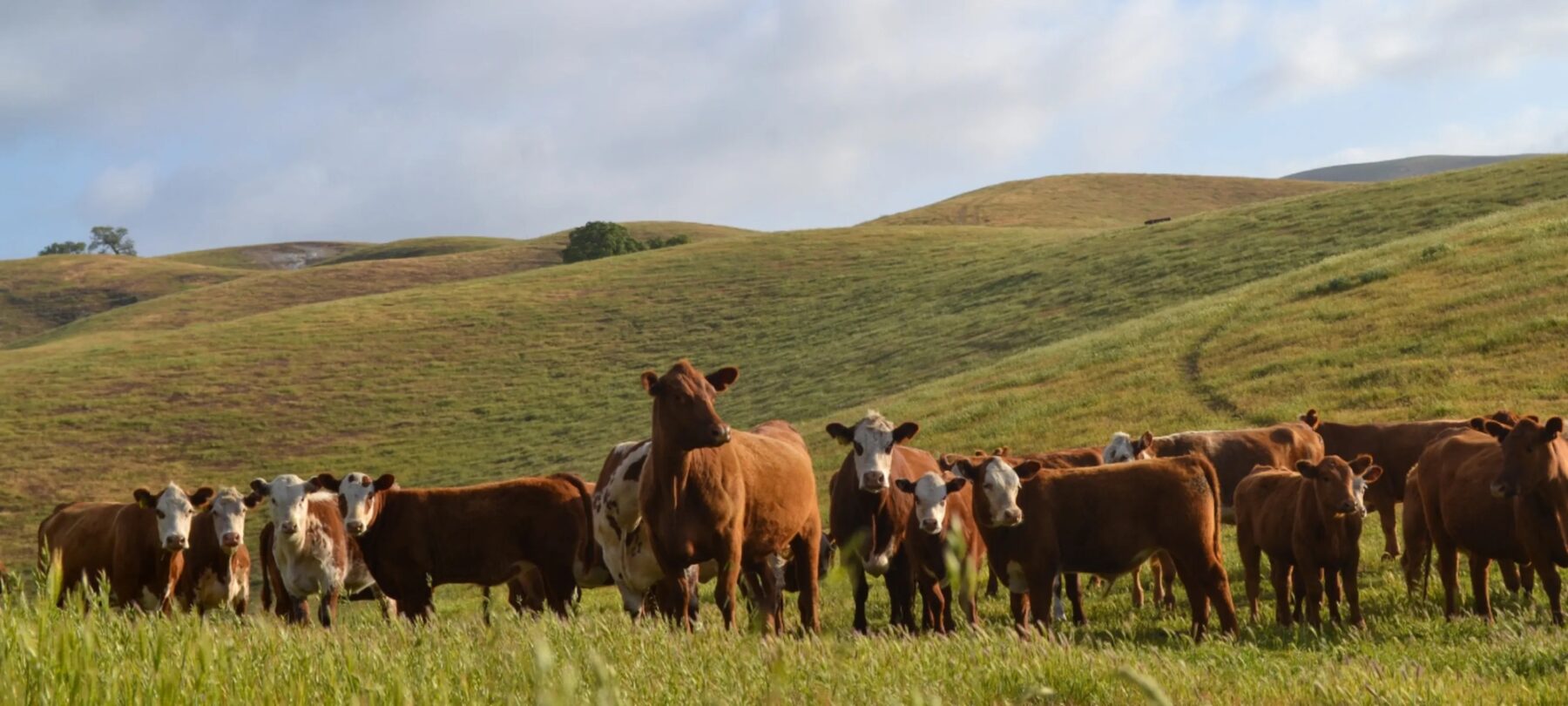
If you’re a longtime Mountain & Prairie listener, then you’re already familiar with the Partnership of Rangeland Trusts, also known as PORT. But for any new listeners, PORT is an alliance of agriculture-focused conservation organizations dedicated to preserving working farms and ranches and conserving productive agricultural lands. PORT is currently celebrating its 20th anniversary, and in those two decades (and as of this recording), PORT organizations have helped more than 2,000 families conserve almost 3.2 million acres of productive working lands across the West.
In this episode, I chat with three executive directors of PORT-affiliated organizations, two of which have been on the podcast before. You’ll recognize Chad Ellis of the Texas Agricultural Land Trust (TALT), and Erik Glenn of the Colorado Cattlemen’s Agricultural Land Trust. And new to the podcast is Michael Delbar, who leads the California Rangeland Trust. I’ve known all three of these guys for many years now, and I have long admired the ways that they lead their respective organizations. But perhaps even more impressive to me is how they have worked as a team with all nine PORT organizations to increase the scale, influence, and effectiveness of large-scale, working lands conservation.
I don’t think I’ve ever recorded an episode this early in the morning– we squeezed it in between an early morning breakfast and PORT’s board meeting. Just the day before, we had all been at TALT’s Working Lands Innovation Summit on the Birdwell-Clark Ranch in Henrietta, Texas, which was a huge success. So this was a great time to reflect on the importance of working lands, and we covered a lot: The Working Lands Innovation Summit and the importance of spending time out on the land; the history and purpose of PORT, the growth of additive conservation projects; private lands conservation as an economic driver; hard work; innovation; the importance of advocating for conservation in Washington DC; future plans for PORT, and much more. As you’ll hear, I start out chatting with Chad and Erik, and then Michael steps in for Erik about halfway through and shares his valuable perspective.
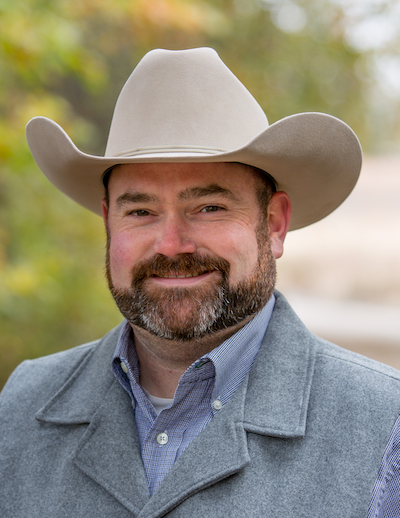

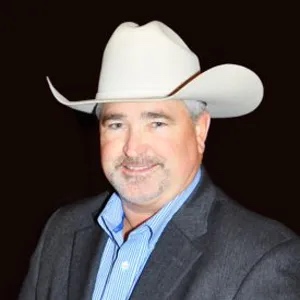
A huge thanks to TALT for inviting me to Texas and another huge thanks to all the PORT organizations and landowner partners who have had such a positive and significant impact on the landscapes of the West.
—–
Header photo courtesy of the California Rangeland Trust
LISTEN & DOWNLOAD:
Apple Podcasts
Spotify
… or wherever you get your podcasts!
—
RESOURCES:
Topics Discussed:
- 4:00 – The event that brought us all to Texas
- 7:00 – Importance of being on the land for the conference
- 8:45 – Introduction to the Partnership of Rangelands Trust (PORT)
- 12:30 – How and why PORT was created
- 15:30 – Additive conservation and the future
- 18:45 – Examples of additive conservation projects
- 25:30 – Private lands conservation as an economic driver
- 29:15 – Intro to Michael Delbar
- 31:00 – How the perception of conservation easements has changed in California
- 32:00 – Once again, the importance of relationships
- 34:15 – Hard work and innovation
- 39:45 – Advocating in DC
- 42:00 – How PORT’s scale translates into results
- 43:30 – Future plans for PORT
- 47:00 – Funding needs and parting words
Information Referenced:
- Partnership of Rangeland Trusts (PORT)
- All PORT members
- Texas Agricultural Land Trust (TALT)
- Colorado Cattlemen’s Agricultural Land Trust
- California Rangeland Trust
- Chad Ellis
- Erik Glenn
- Michael Delbar
- Aldo Leopold
- “Conservation will ultimately boil down to rewarding the private landowner who conserves the public interest.” – Aldo Leopold
- Conservation easements
- CSU Economic Study on Private Lands Conservation
- Dr. Roel Lopez
- NRCS
- California Rangeland Trust Presents: From the Ground Up: Healing Our Planet, Healing Ourselves
- California Rangeland Trust Podcast: Tuned Into The Land
- Land Trust Alliance
Enjoy this episode? Then you might like these too:
- Heidi Redd & Sue Bellagamba – Tales from the Dugout Ranch
- Curt Meine – Aldo Leopold’s Life, Work, and Enduring Legacy
- Celene Hawkins & Izabella Ruffino – Tribal Partnerships, Indigenous Voices, Cutting-Edge Conservation
- Rebuilding a Resilient, Regional Meat Supply Chain – LIVE at the Old Salt Festival
- Landscape-Scale Management in a Private Land State
- Dr. Katharine Hayhoe – Effecting Change Through Authentic Conversation
- Carlos Fernández, Part 2 – Creating Conservation Opportunities During Uncertain Times
Visit the podcast page for a full, searchable list of episodes
Kevin Grange – The Secret Lives of Grizzlies
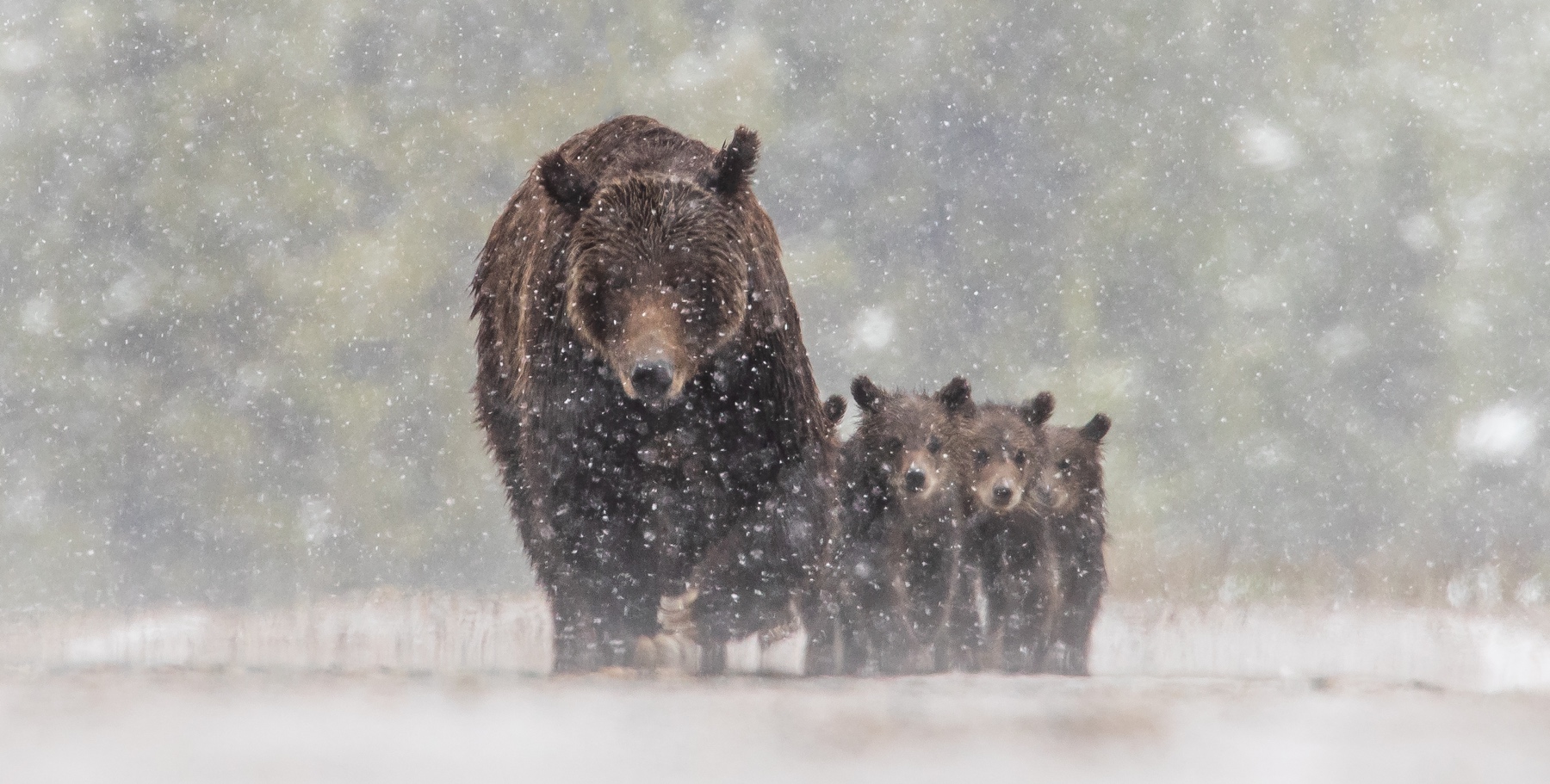
Kevin Grange is a Wyoming-based author, paramedic, and firefighter. His most recent book is titled Grizzly Confidential: An Astounding Journey Into the Secret Life of North America’s Most Fearsome Predator, which is a must-read for anyone interested in the evolving relationship between humans and bears. The book follows Kevin’s journey throughout the American West and Alaska as he seeks to better understand grizzly bears, debunk many deeply engrained myths, explore case studies of successful coexistence, and more. The book is part travelogue, part adventure story, and part science– making for a fun and educational read that I highly recommend.
Kevin was born and raised in New Hampshire, where he grew up obsessed with the outdoors and, like many of us, obsessed with kids’ outdoor books such as Old Yeller, Sounder, and Where the Red Fern Grows. He attended paramedic school in California and began his career in downtown LA before landing a job as a National Park paramedic in Yellowstone. As you’ll hear in our conversation, Kevin has managed to successfully merge his love of medicine and adventure with his talent for writing, and with a lot of hard work, he’s enjoyed two successful, simultaneous careers– one in medicine and the other in writing.
Kevin and I connected just a few weeks after the publication of Grizzly Confidential and had a fascinating conversation about his career, his writing process, and his journey to better understand the legendary grizzly bear. We discussed his career path that led him to the West and his first experiences working in Yellowstone. We talk about balancing his paramedic work with his writing work, and how having a full-time job allows him to be more selective with his writing projects. We obviously talk a lot about grizzly bears– grizzly research, poaching, backcountry bear safety, his travels to Alaska, success stories of coexistence, false grizzly myths, overcoming his fear of grizzlies, and much more. Kevin is also a voracious reader, so he offers up plenty of excellent book recommendations.
A huge thanks to Kevin for writing such a fun and educational book, and a huge thanks to you for listening. Enjoy!
—
Photos courtesy of Kevin Grange
LISTEN & DOWNLOAD:
Apple Podcasts
Spotify
… or wherever you get your podcasts!
—
RESOURCES:
Topics Discussed:
- 4:00 – Intro and Kevin’s upbringing
- 5:45 – Favorite books as a kid
- 8:15 – First memories of grizzlies
- 9:15 – First encounter with a grizzly
- 11:30 – Becoming a National Park paramedic
- 13:45 – Types of emergencies in National Parks
- 15:00 – Idiotic tourist mistakes
- 16:45 – Balancing paramedic work with writing
- 19:30 – Why Grizzlies?
- 22:15 – How this book’s angle is different from other Grizzly books
- 26:20 – What’s the difference between a “Grizzly bear” and a “Brown bear”?
- 27:45 – Washington State University’s Bear Center
- 32:45 – Grizzly poaching
- 37:15 – Learning bear defense methods, including bear spray
- 41:15 – Basic backcountry safety in bear country
- 44:15 – Examples of good and bad coexistence strategies
- 48:15 – Debunking certain grizzly myths
- 52:45 – Continued learning about grizzlies
- 55:45 – How writing this book compares to the others
- 57:15 0 Favorite writers and books
- 59:30 – How has Kevin changed because of this project?
- 1:05:30 – Learning to switch gears after an intense paramedic experience
- 1:07:30 – Parting words of wisdom
Information Referenced:
- Kevin Grange
- Grizzly Confidential by Kevin Grange
- All of Kevin’s Books
- Old Yeller by Fred Gipson
- Sounder by William Armstrong
- Where the Red Fern Grows by Wilson Rawls
- Thomas Mangelsen
- Morning Glory hotspring
- Grizzly 399
- Washington State University Bear Center
- Brooks Falls
- Nick Mott episode
- Todd Orr
- Surviving the Griz course
- McNeil Bear Sanctuary
- Fat Bear Week
- National Parks Magazine
- Eager by Ben Goldfarb
- The Devils Teeth by Susan Casey
- Peter Matthiessen
- Antoine de Saint-Exupéry
- Kevin Fedarko
- Pete McBride
- Kate Siber
- Stephanie Pearson
- On Writing by Stephen King
- The Soul of an Octopus by Sy Montgomery
- What a Fish Knows by Jonathan Balcombe
Enjoy this episode? Then you might like these too:
- Doug Peacock – 50 Years of Fighting for the Grizzlies
- Nick Mott – A Masterclass in Nuanced Storytelling
- 50 Years of the Endangered Species Act – Live in Austin
- Corissa Busse – Tribal-Led Buffalo Restoration in the American West and Beyond
- Dr. Sara Dant Returns – “Losing Eden: An Environmental History of the American West”
- Pete McBride Returns – Exploring & Documenting His Backyard River
Visit the podcast page for a full, searchable list of episodes
Nick Mott – A Masterclass in Nuanced Storytelling
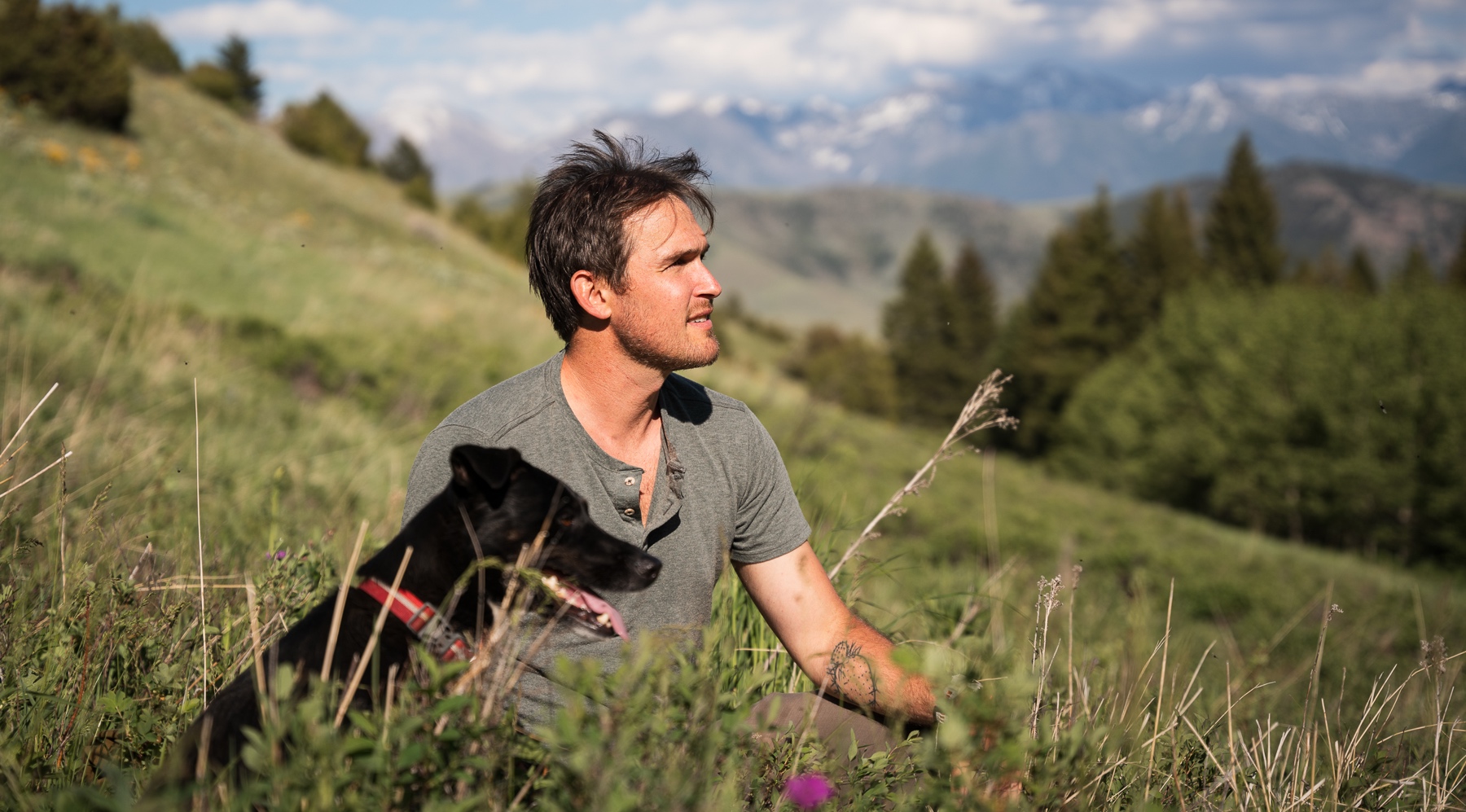
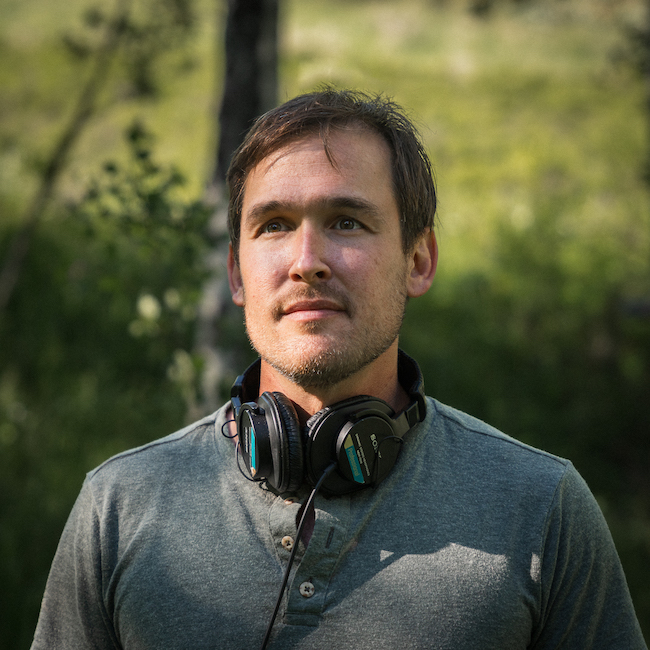
(Photo: Zach Altman)
Nick Mott is an award-winning multimedia journalist who lives in Livingston, Montana. His latest project is a wonderful new podcast called The Wide Open, which he produced in collaboration with Montana Public Radio and the Montana Media Lab. The podcast offers a fresh look into our ever-changing relationship with the Endangered Species Act (ESA), and it digs into the history, nuance, and modern-day controversies surrounding what has been called “the most powerful environmental legislation in the world.” Nick explores this divisive topic with deep curiosity and journalistic integrity, and I found the podcast to be amazingly educational and entertaining– which is a rare combo when discussing such a complex piece of legislation.
If you’re a longtime Mountain & Prairie listener, then many of the topics Nick explores in The Wide Open will be of great interest– grizzly bears, wolves, the environmental history of the West, and more. You’ll also hear a few familiar voices, including past podcast guest and living legend Doug Peacock. But what I most appreciated about The Wide Open is how Nick was able to humanize the stories surrounding such a divisive part of Western culture– he features people who love the ESA and people who hate it, but all of them are given the opportunity to share their stories and unique outlooks. In this current cultural moment of hot takes, outrage, and misinformation, The Wide Open is a much-needed return to nuance, curiosity, and civility.
As you’d expect from an award-winning podcaster, Nick knows how to tell a great story, so I know you’ll enjoy this episode. We start out discussing the history of the ESA and Nick’s fresh approach to exploring such a well-known environmental story. We discuss how the ESA is used as a tool to achieve goals other than species protection, how Nick balances the need to make his podcasts both informative and fun to listen to, how he accounts for his own personal biases when telling stories, and how he goes about choosing people to interview. About halfway through the episode, Nick recounts a horrifying recent run-in he had with a grizzly bear, and he discusses how that close call affected his thinking on some of these complex wildlife issues. We also discuss his favorite books, plans for future seasons of The Wide Open, how he deals with negative feedback, wolf reintroduction in Colorado, his professional heroes, and much more.
Be sure to check out the episode notes for links to everything, including Nick’s other podcasts and his book This is Wildfire, which he co-authored with Justin Angle.
A big thanks to Nick for taking the time, thank you for listening, and please subscribe to The Wide Open– I know you’ll really enjoy it!
—
Photos by Zach Altman
LISTEN & DOWNLOAD:
Apple Podcasts
Spotify
… or wherever you get your podcasts!
—
RESOURCES:
Topics Discussed:
- 3:50 – What attracts Nick to specific stories or topics?
- 6:30 – Nick describes his new approach to examining the ESA.
- 8:30 – A brief history of the ESA
- 11:35 – Using the ESA as a tool to save species OR achieve other goals
- 16:00 – How Nick chooses people to interview and include on the podcast
- 19:15 – Balancing telling stories that are both entertaining and substantive
- 22:50 – Accounting for bias in journalism
- 24:45 – Why Nick includes his own story in the podcast narrative
- 27:30 – Introvert or extrovert?
- 28:50 – Did Nick change his mind on anything related to the ESA?
- 31:30 – How the internet has inflamed the divisiveness of the ESA
- 33:00 – Nick’s recent terrifying encounter with a grizzly
- 39:00 – The psychological aftermath of the grizzly scare
- 44:45 – Providing a framework for thinking about wolf reintroduction in Colorado
- 49:00 – People Nick admires
- 53:00 – What type of journalism does Nick like the best?
- 55:00 – Future seasons of The Wide Open?
- 56:45 – People Nick admires
- 1:00:00 – Favorite books
- 1:02:00 – Dealing with negative feedback
- 1:04:00 – Parting words of wisdom
Information Referenced:
- Nick Mott
- The Wide Open
- Fireline podcast
- This is Wildfire by Nick Mott and Justin Angle
- Endangered Species Act
- Doug Brinkley
- Rachel Carson
- Tennessee Valley Authority
- Snail darter
- NOLS
- The Final Forest by William Dietrich
- Doug Peacock
- Daniel Anderson
- Amy Martin
- Threshold
- This American Life
- RadioLab
- Jon Ronson books
- Wild Ones by Jon Mooallem
- The Sixth Extinction by Elizabeth Kolbert
Enjoy this episode? Then you might like these too:
- 50 Years of the Endangered Species Act – Live in Austin
- Kristine Tompkins – Nothing to Lose
- Doug Peacock – 50 Years of Fighting for the Grizzlies
- Corissa Busse – Tribal-Led Buffalo Restoration in the American West and Beyond
- Douglas Brinkley – Exploring the Past to Find Inspiration for the Future
- Dr. Sara Dant Returns – “Losing Eden: An Environmental History of the American West”
- “Good Fire, Bad Fire” – A Film and Discussion about Forest Health
- Pete McBride Returns – Exploring & Documenting His Backyard River
Visit the podcast page for a full, searchable list of episodes
Mauricia Baca – An Empathetic Approach to Nevada’s Conservation Challenges


Mauricia Baca is the State Director of the Nevada Chapter of The Nature Conservancy. In this role, she leads TNC’s efforts in Nevada across a wide range of conservation issues that are familiar to Mountain & Prairie listeners– the Colorado River, the Sagebrush Sea, and renewable energy. But Nevada is also home to some very unique conservation challenges related to biodiversity, mining for rare earth metals, groundwater for agriculture, and more. So I was excited to have this opportunity to learn from Mauricia about some of the specific challenges facing Nevada, TNC’s solutions to these challenges, and how the lessons learned can be applied in other regions of the West.
Mauricia was born in Mexico, grew up in New York City, and credits much of her love of nature and the environment to her childhood experiences exploring Central Park. After college, she served in the Peace Corps, worked as a community organizer in New York, and eventually attended law school. After four years of working as a prosecutor for the United States Department of Justice’s Environment and Natural Resources Division, she moved to Nevada and began her first position with The Nature Conservancy, leading conservation work on the Truckee River. She has served as the State Director since November 2020, and, as you’ll hear, all of her efforts are infused with a deep level of compassion, empathy, and gratitude.
Mauricia has such a fascinating personal and professional trajectory, and there are many lessons to be learned from both her approach to her life and career, and the specifics of TNC’s critical work in Nevada. We talked about her youth in Mexico and New York City, and how she has been committed to environmental work since she was a very young girl. We discuss her stint in the Peace Corps and how those experiences laid the groundwork for her current work with TNC. She shares some insights from switching from the litigation world to the conservation world, and she offers some wisdom for folks looking to make a similar transition. We discuss lithium mining, groundwater conservation, and climate change, and how TNC is making strides to protect biodiversity while balancing society’s growing need for rare earth metals, water, and development. She also shares some wisdom gleaned from her recent battle with breast cancer, and discusses how her approach to work has changed since that life-altering health scare.
A big thanks to Mauricia for being so open and thoughtful, and for sharing so many wonderful insights from her inspiring career. Be sure to check out the episode notes below for links to everything we discussed and to watch Mauricia’s recent TEDx talk, which serves as a great companion to this interview. Enjoy!
Header photo © Chip Carroon/TNC, headshot © The Nature Conservancy
LISTEN & DOWNLOAD:
Apple Podcasts
Spotify
…or wherever you get your podcasts!
EPISODE PARTNER:
This episode is brought to you in partnership with the Colorado chapter of The Nature Conservancy and TNC chapters throughout the Western United States. Guided by science and grounded by decades of collaborative partnerships, The Nature Conservancy has a long-standing legacy of achieving lasting results to create a world where nature and people thrive.
On the last Tuesday of every month throughout 2024, Mountain & Prairie will be delving into conversations with a wide range of The Nature Conservancy’s leaders, partners, collaborators, and stakeholders, highlighting the myriad of conservation challenges, opportunities, and solutions here in the American West and beyond. You can access all of the episodes here.
To learn more about The Nature Conservancy’s impactful work in the West and around the world, visit www.nature.org
RESOURCES:
Topics Discussed:
- 4:00 – Mauricia’s upbringing and early years in Mexico and New York City
- 7:00 – When she knew she wanted to devote her career to environmental work
- 9:15 – Legal training as thought training
- 11:45 – How the Peace Corps and other experiences helped her learn to build trust and relationships
- 16:45 – When TNC entered Mauricia’s life as a next career step
- 19:45 – More details on how she was able to land her first job with TNC
- 24:00 – Career evolution within TNC
- 26:00 – Starting as TNC State Director at the beginning of the pandemic
- 28:45 – Tackling climate-related challenges in Nevada and beyond
- 34:00 – The Atwood Preserve and the quiet beauty of the Mojave Desert
- 39:00 – TNC’s work to preserve biodiversity in the face of lithium mining
- 43:45 – The importance of groundwater for Nevada’s ag sector
- 49:00 – Working in partnership with Tribal communities
- 54:00 – Thinking locally and acting globally
- 56:00 – Lessons learned from Mauricia’s recent cancer scare
- 1:03:30 – Favorite books
- 1:06:00 – Parting words of wisdom
Information Referenced:
- Mauricia Baca
- The Nature Conservancy in Nevada
- TNC Nevada’s 40th Anniversary
- Mauricia’s TEDx talk
- The Sagebrush Sea
- The Colorado River
- Secrets of the Mojave
- TNC’s work on groundwater
- TNC’s lithium report
- Power of Place-West
- Mining the Sun
- Peace Corps
- Department of Justice’s Environment and Natural Resources Division
- Truckee River
- Get Outdoors Nevada
- Atwood Preserve
- Amargosa River
- Ash Meadows
- How the nation’s driest state is using cash to free up water The Washington Post
- Celene and Izabella episode
- Silent Spring by Rachel Carson
- Dumping in Dixie by Robert Bullard
- Gabriel García Márquez
- Isabel Allende
- The House of the Spirits by Isabel Allende
- Cloud Cuckoo Land by Anthony Doerr
Enjoy this episode? Then you might like these too:
- Pete McBride Returns – Exploring & Documenting His Backyard River
- Dan Stellar – Bolstering Biodiversity in Arizona and Beyond
- Kate Mannix – A Legacy of Land Stewardship
- Matt Pierson – Finding New Solutions for Food Insecurity
- Douglas Brinkley – Exploring the Past to Find Inspiration for the Future
- Dr. Sara Dant Returns – “Losing Eden: An Environmental History of the American West”
Visit the podcast page for a full list of episodes where you can filter episodes by topic and guests’ vocations.
